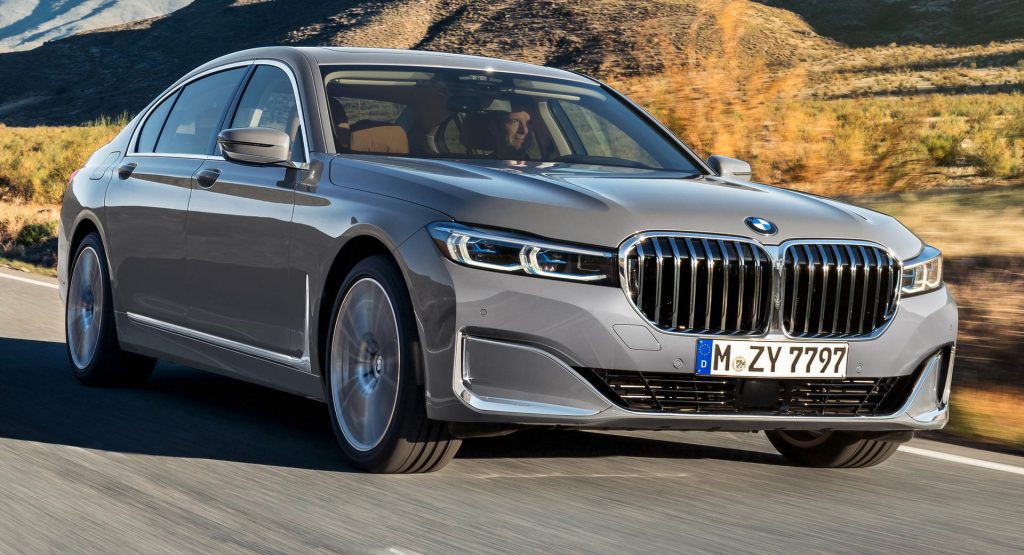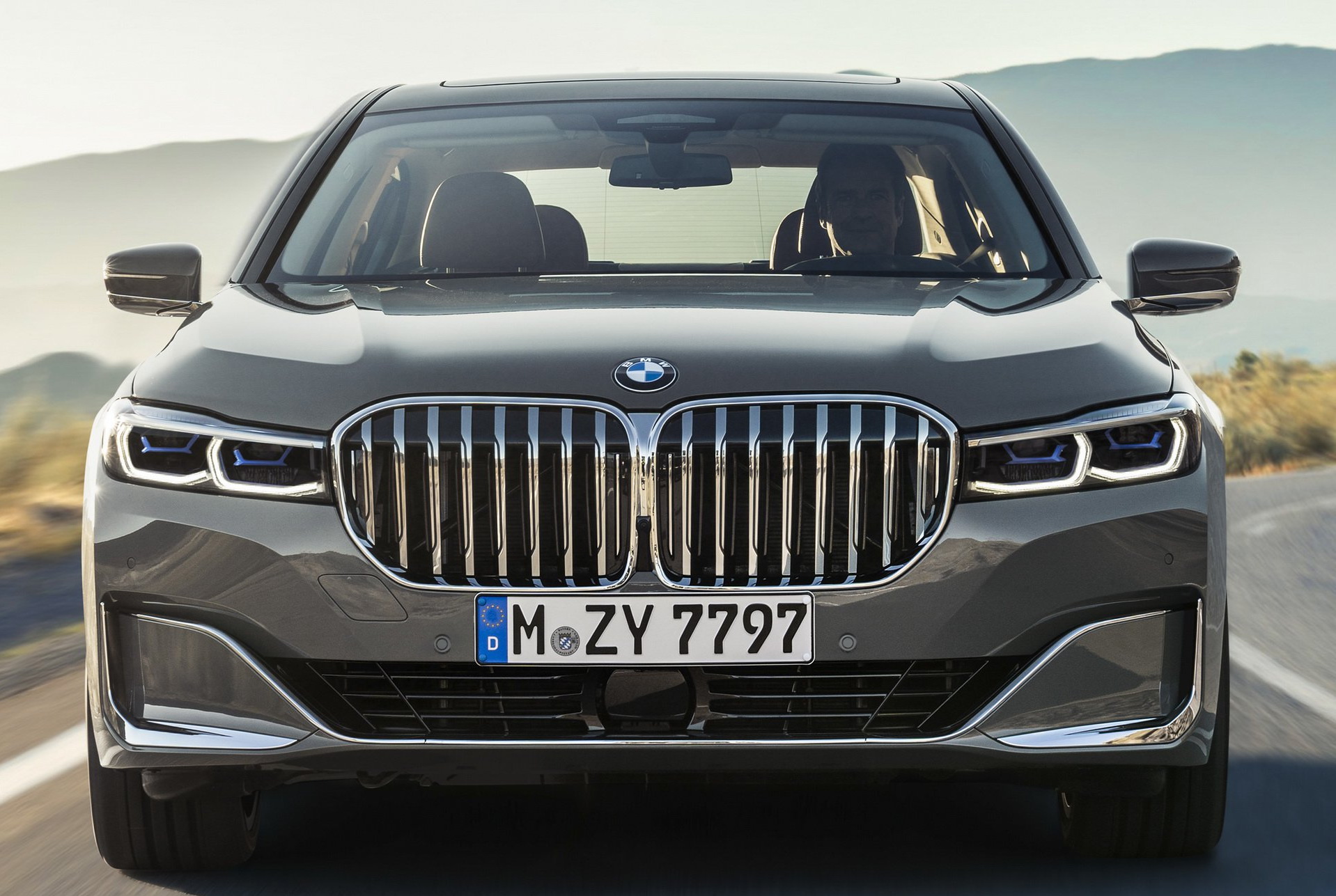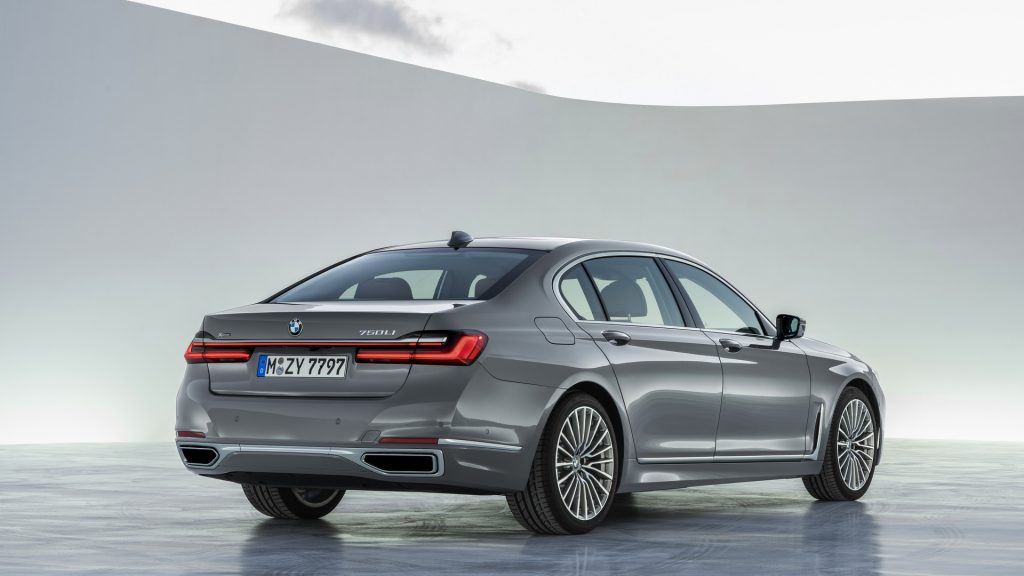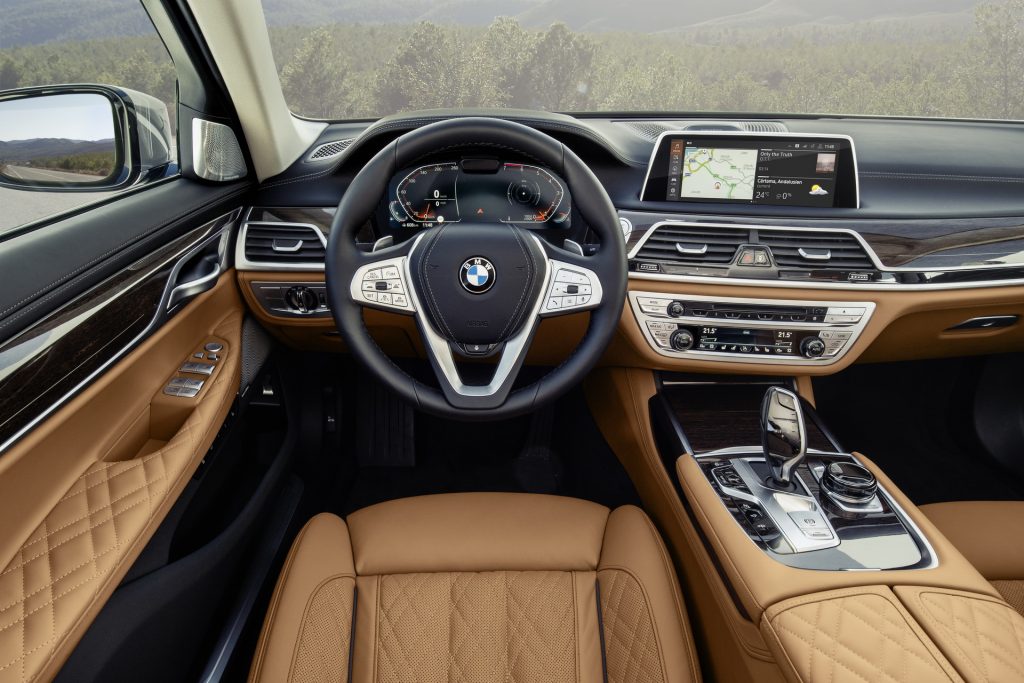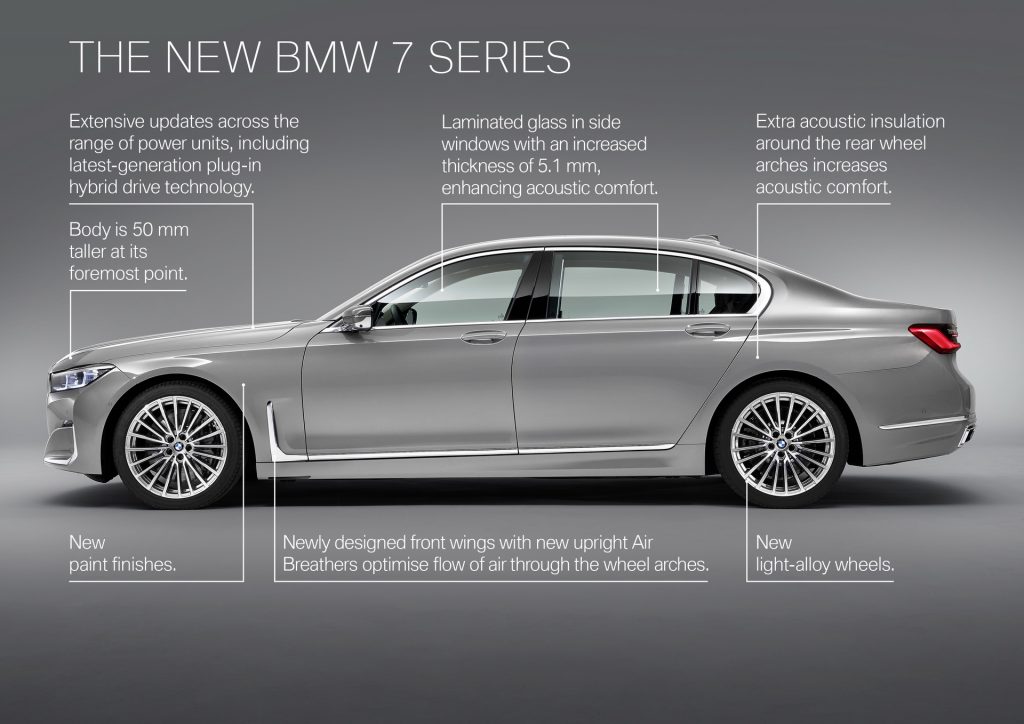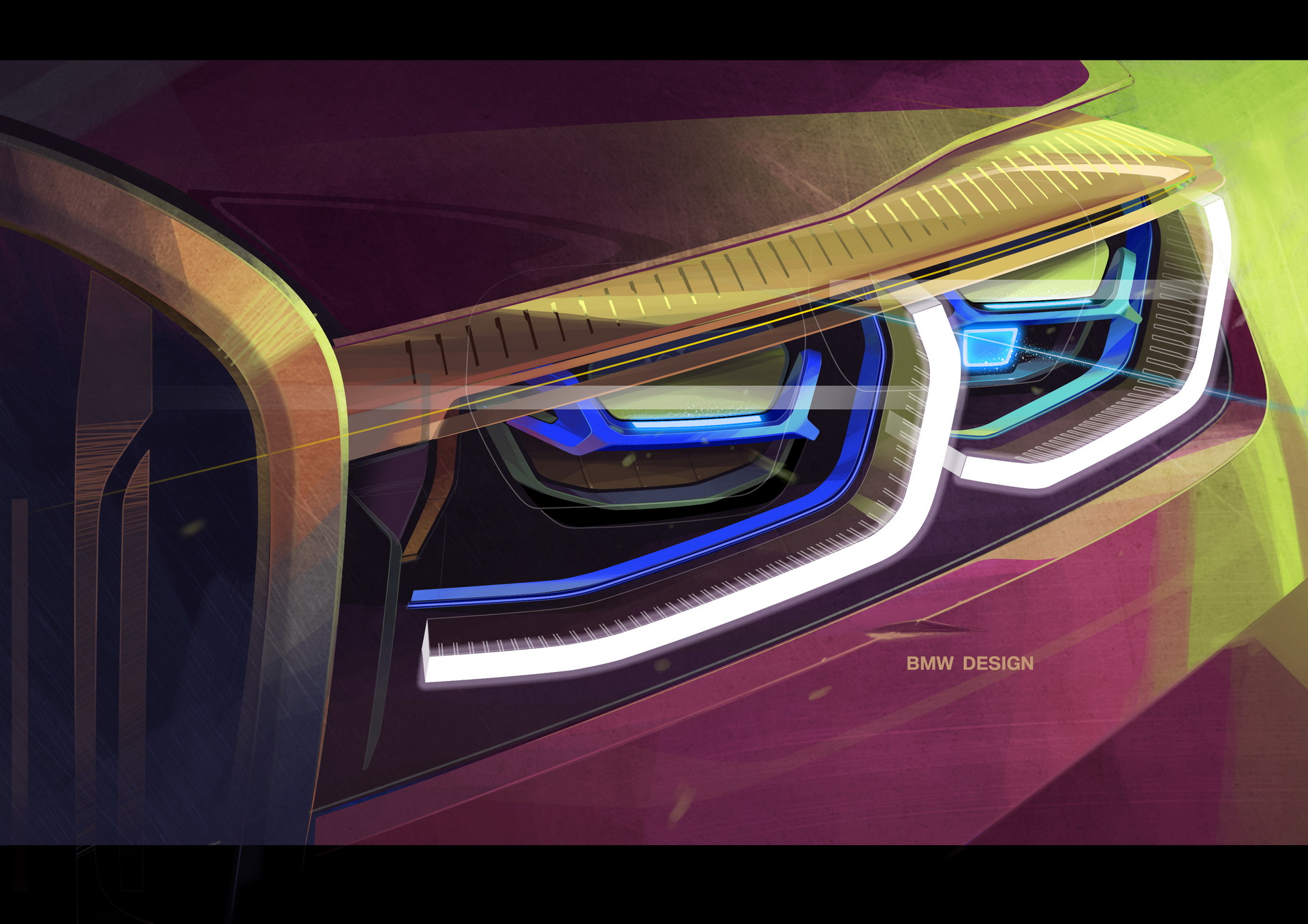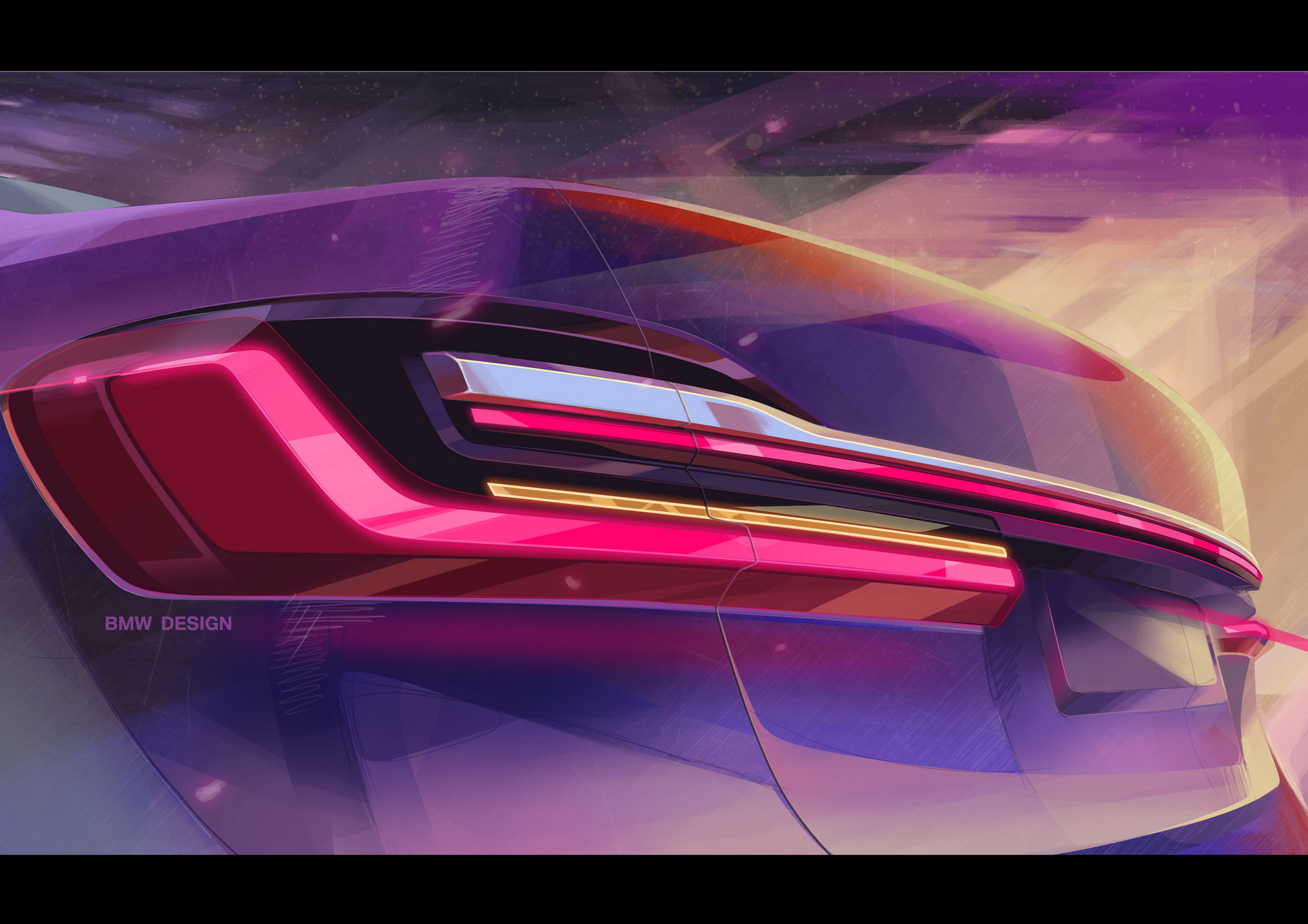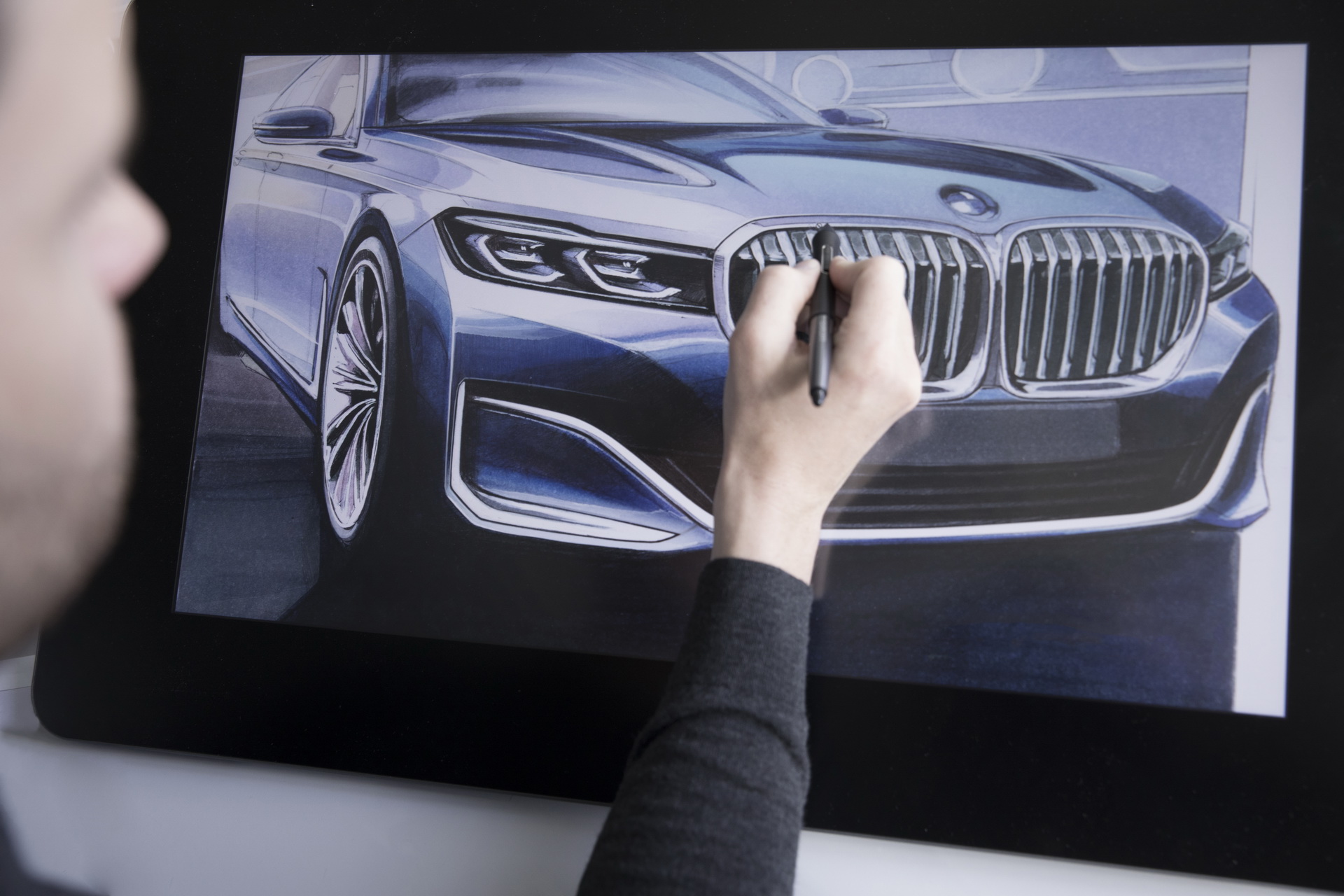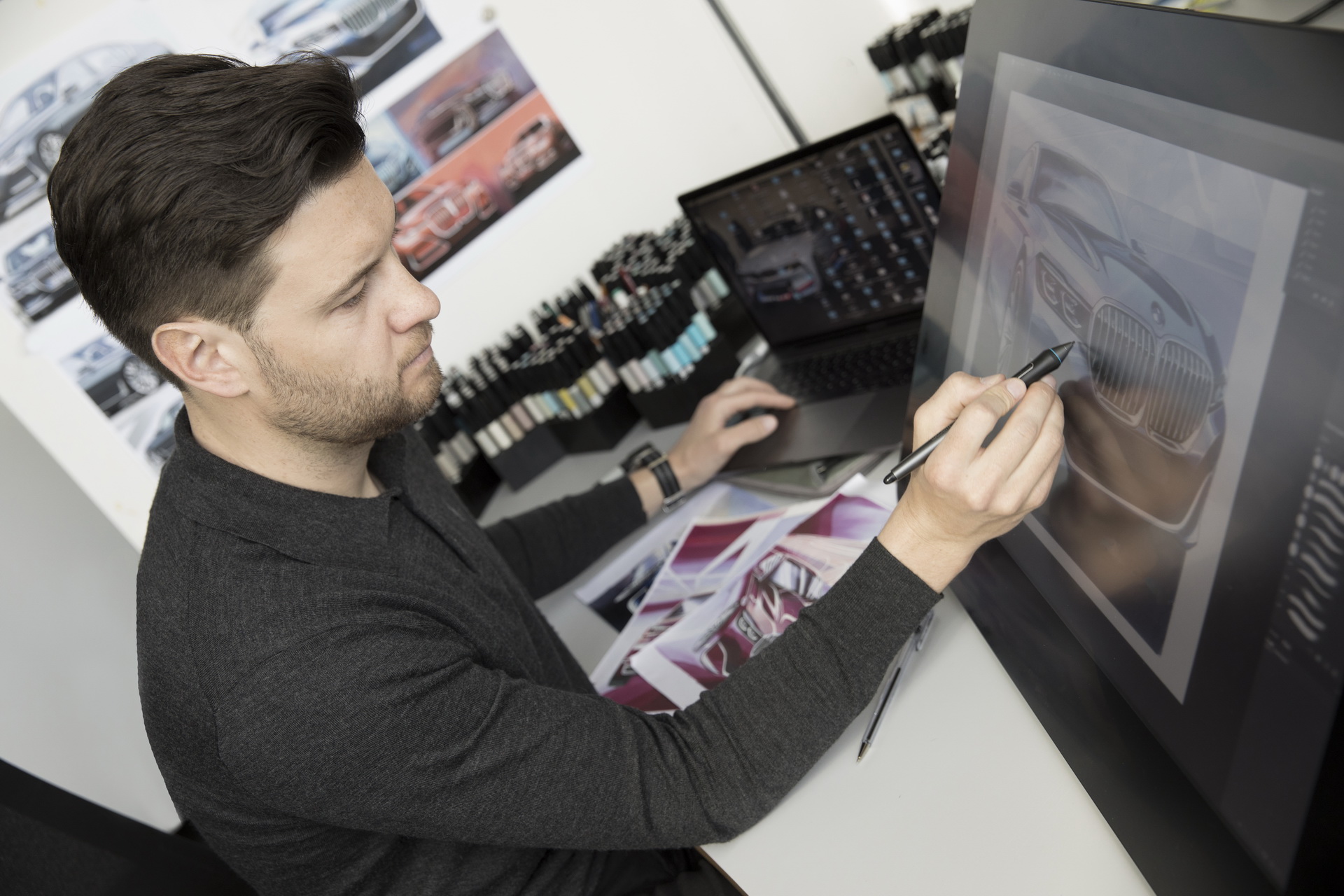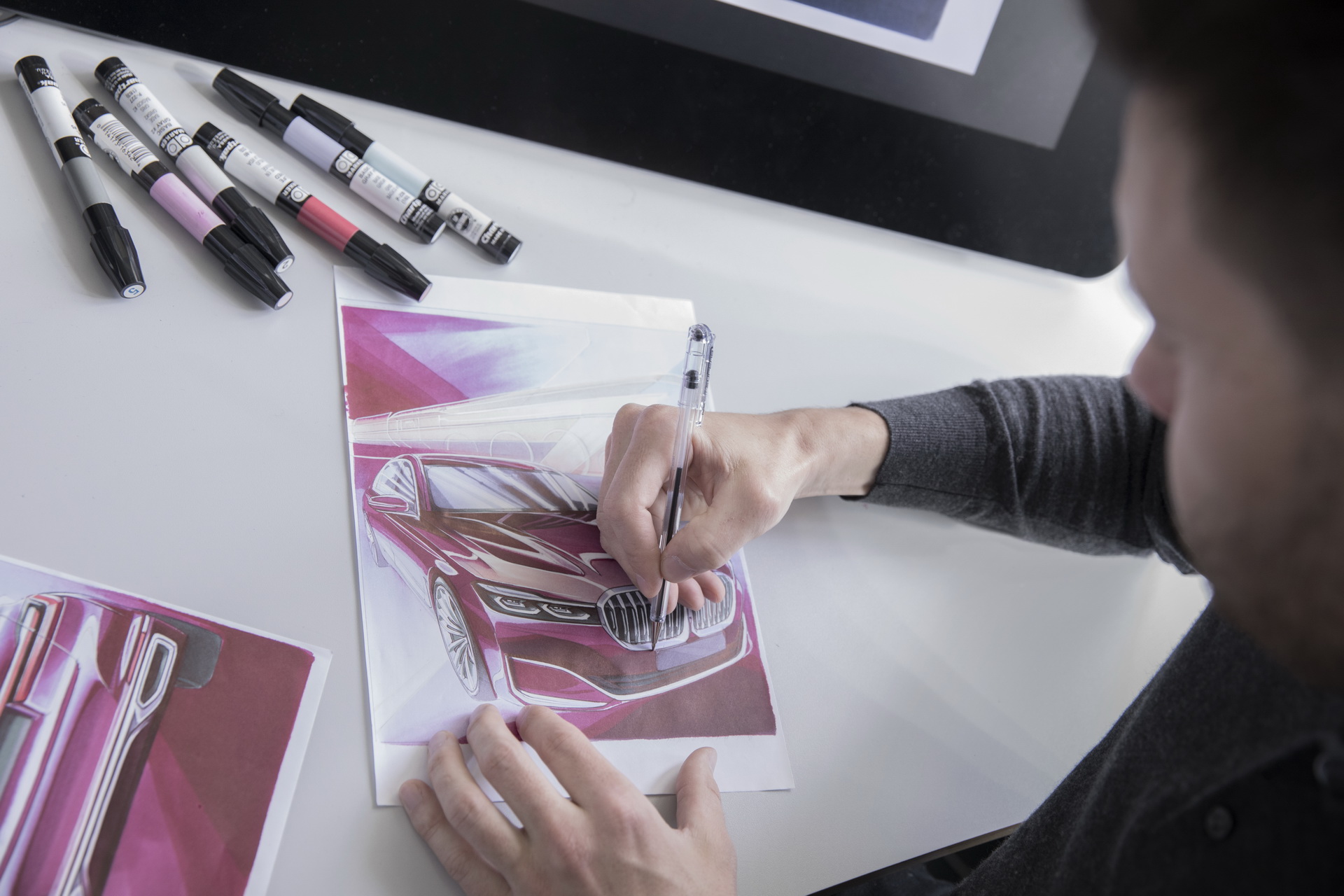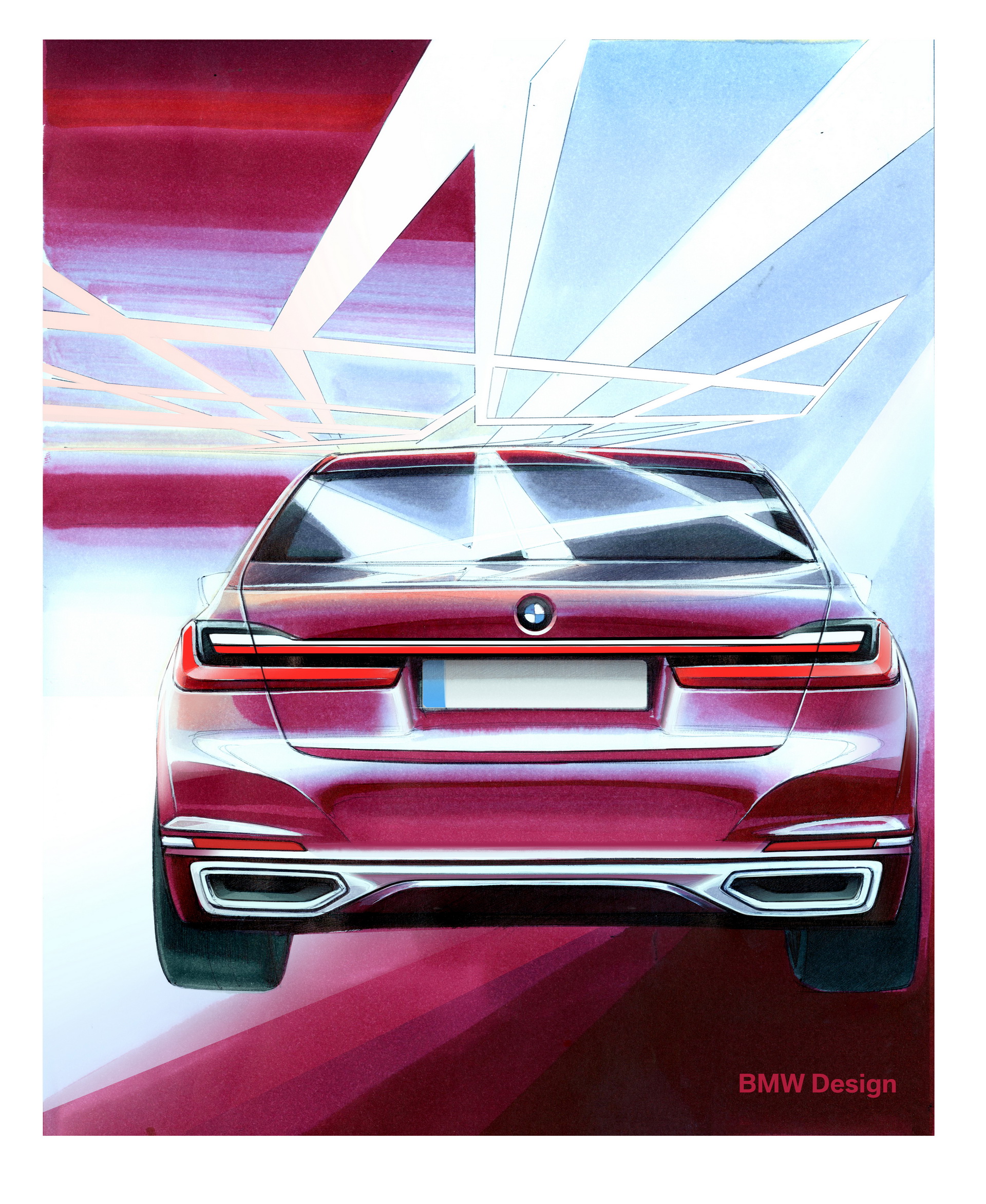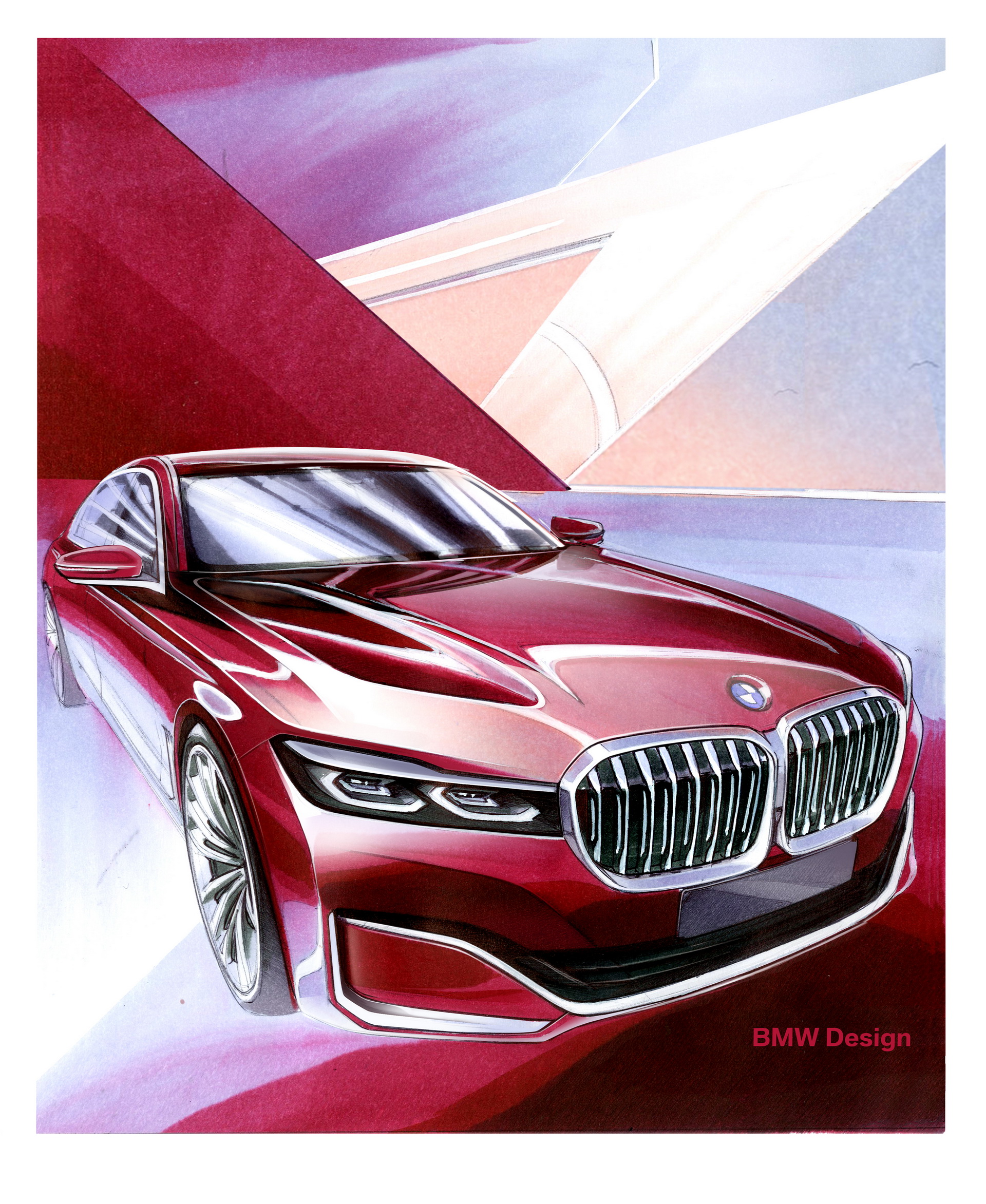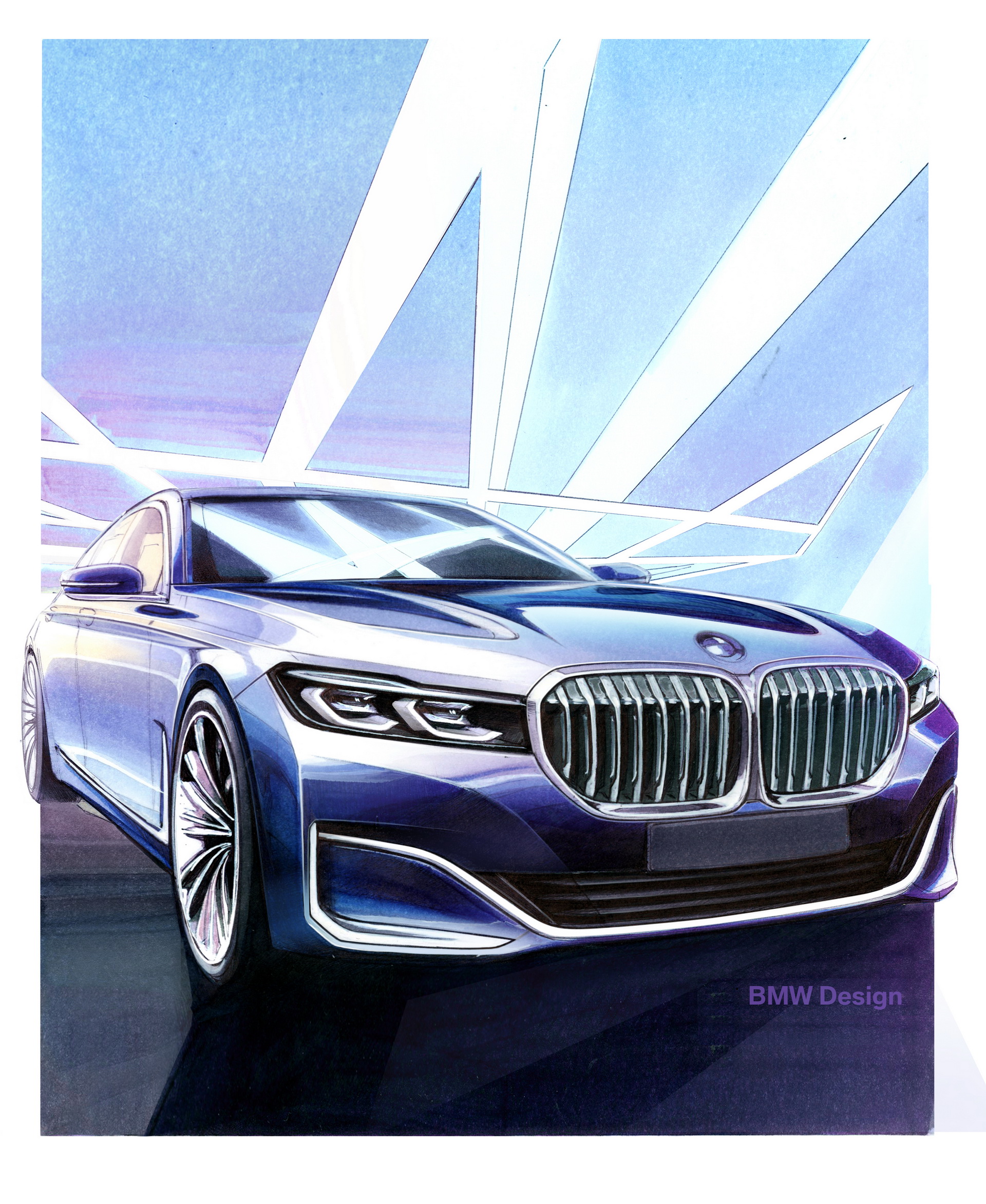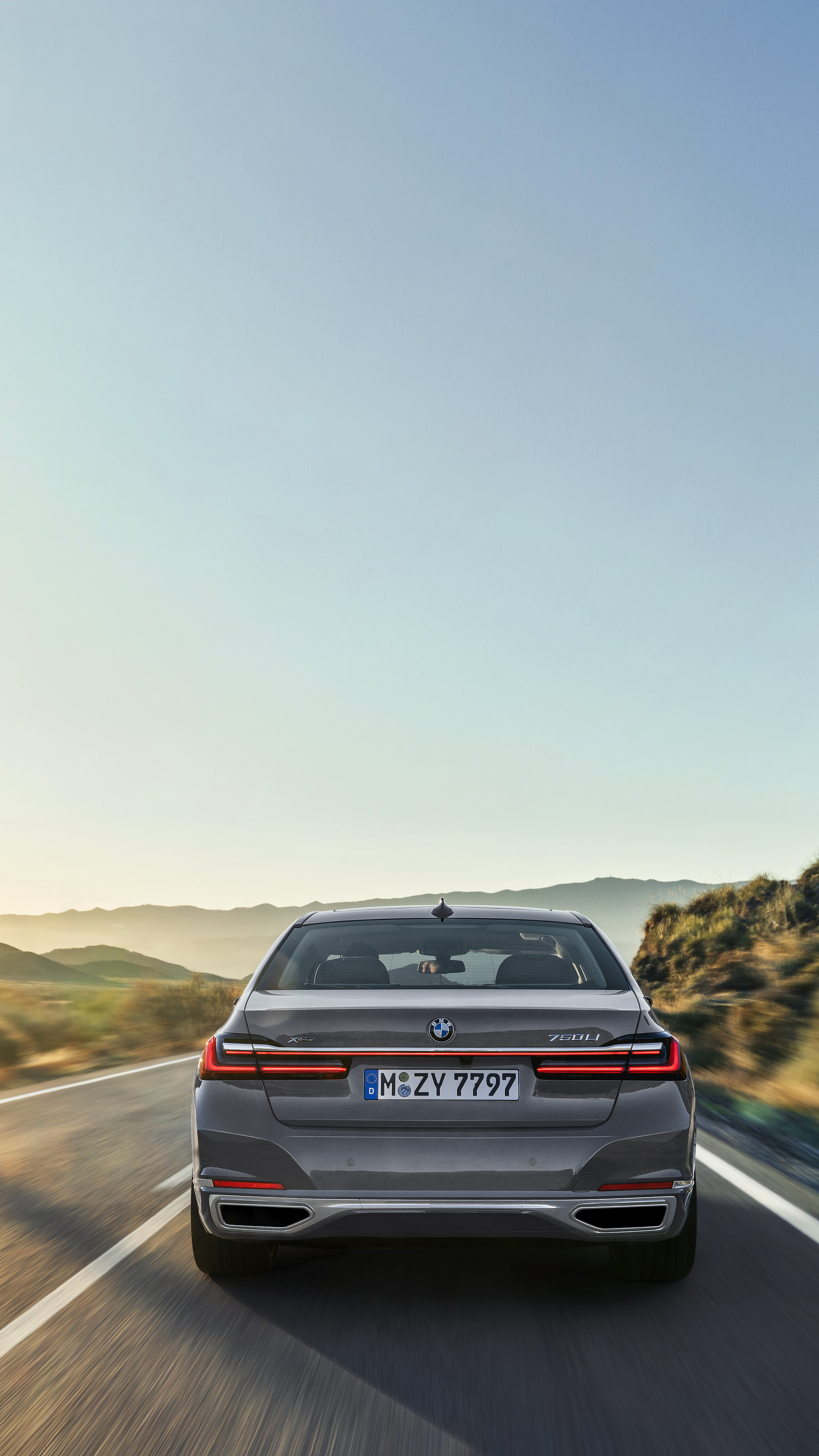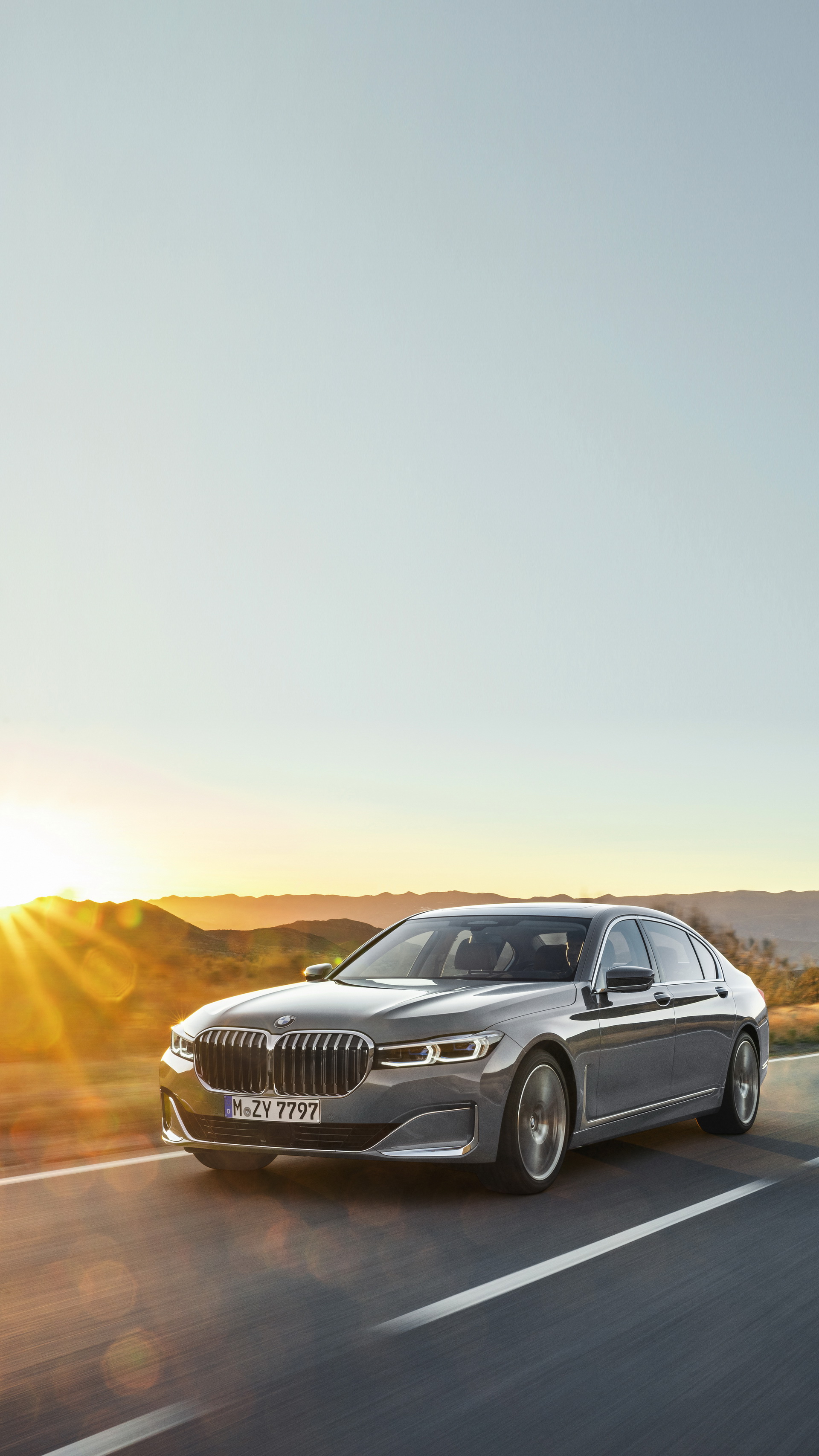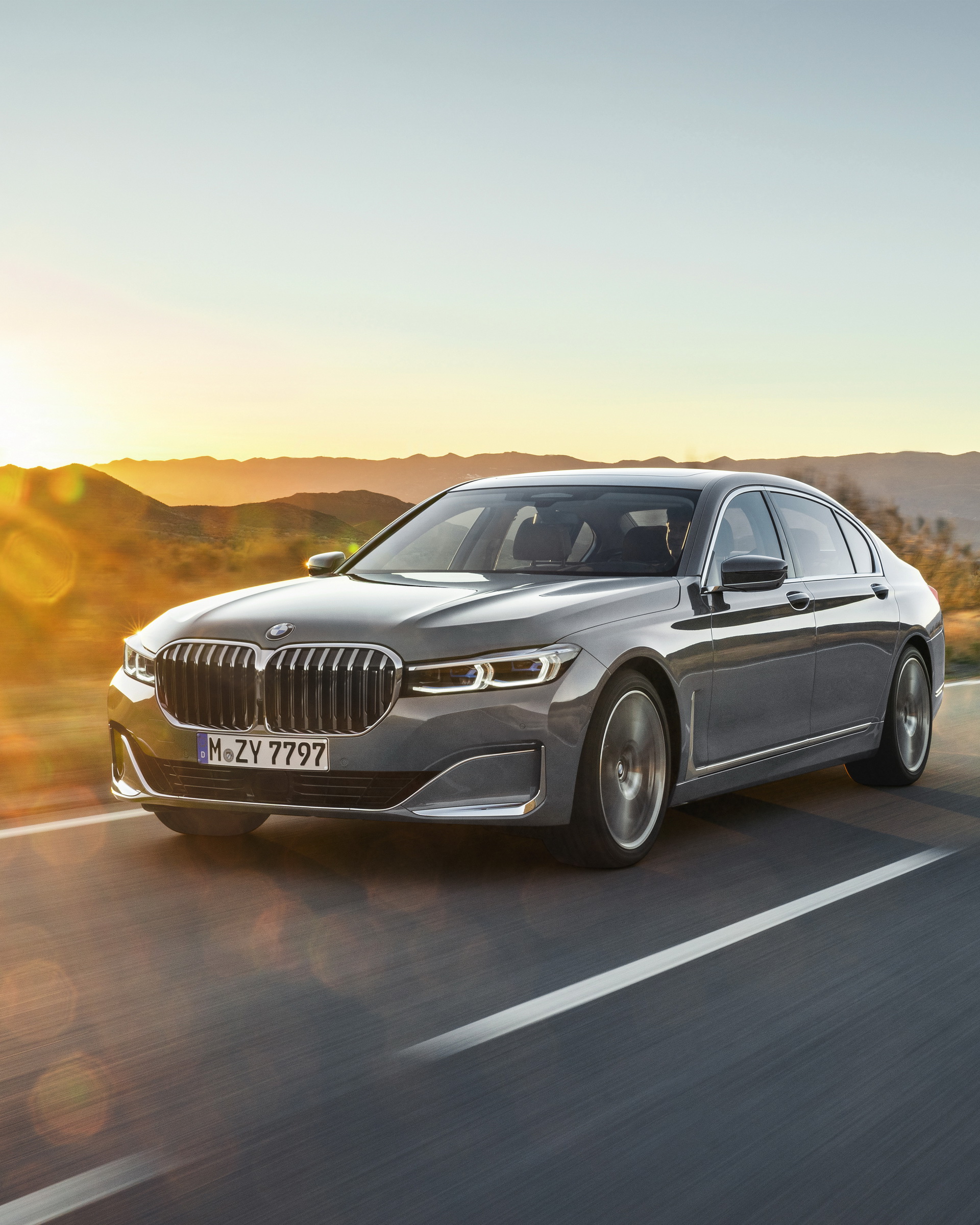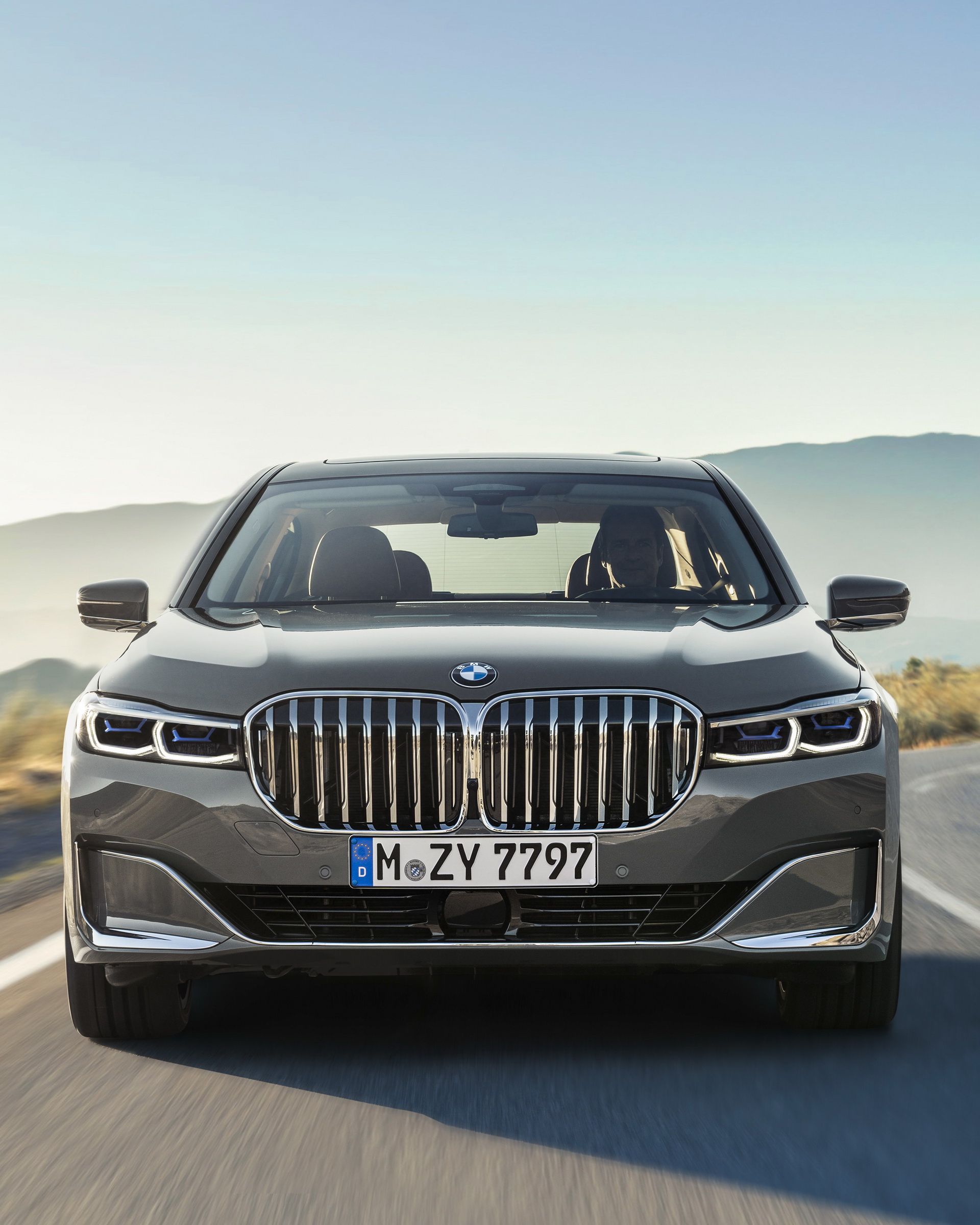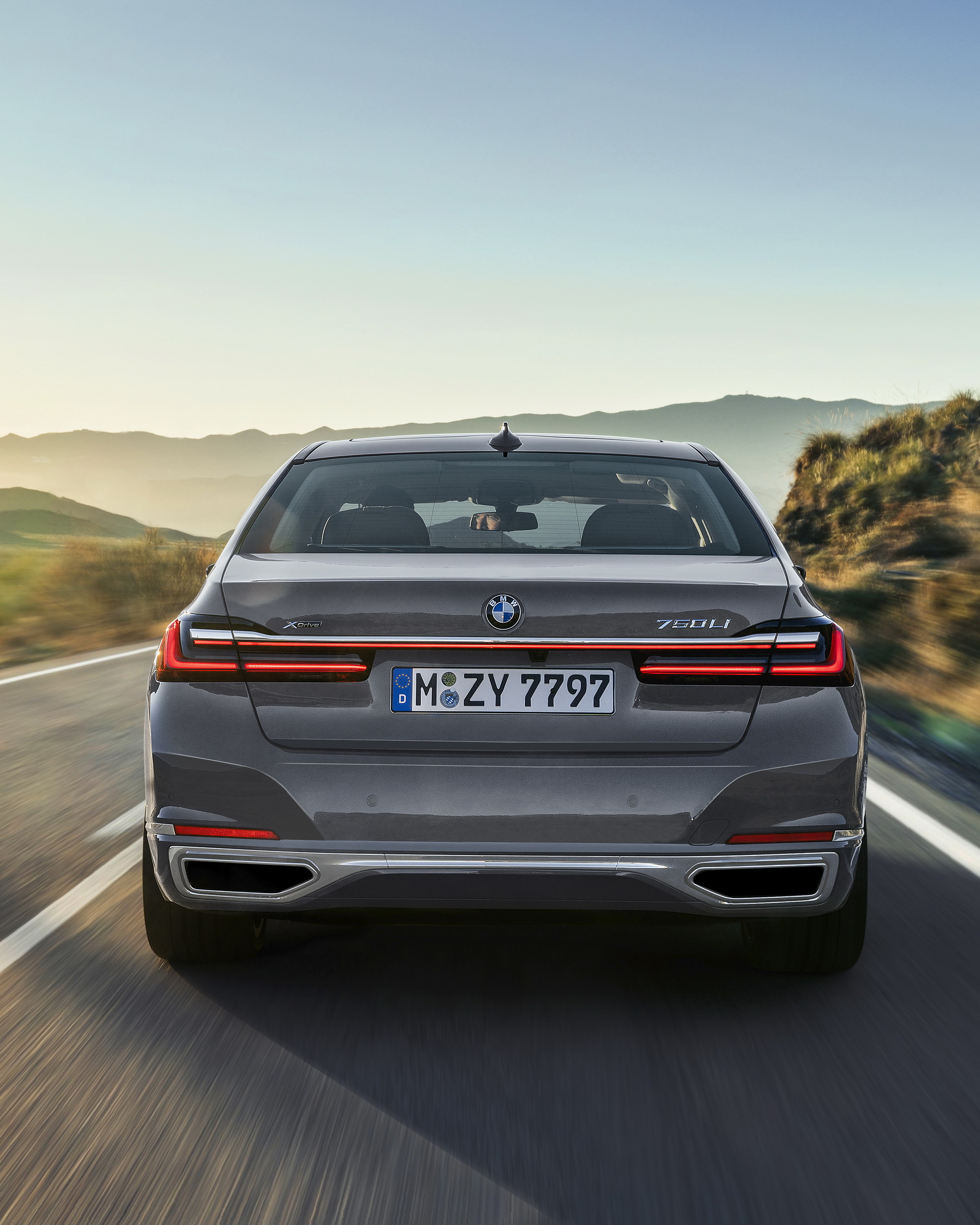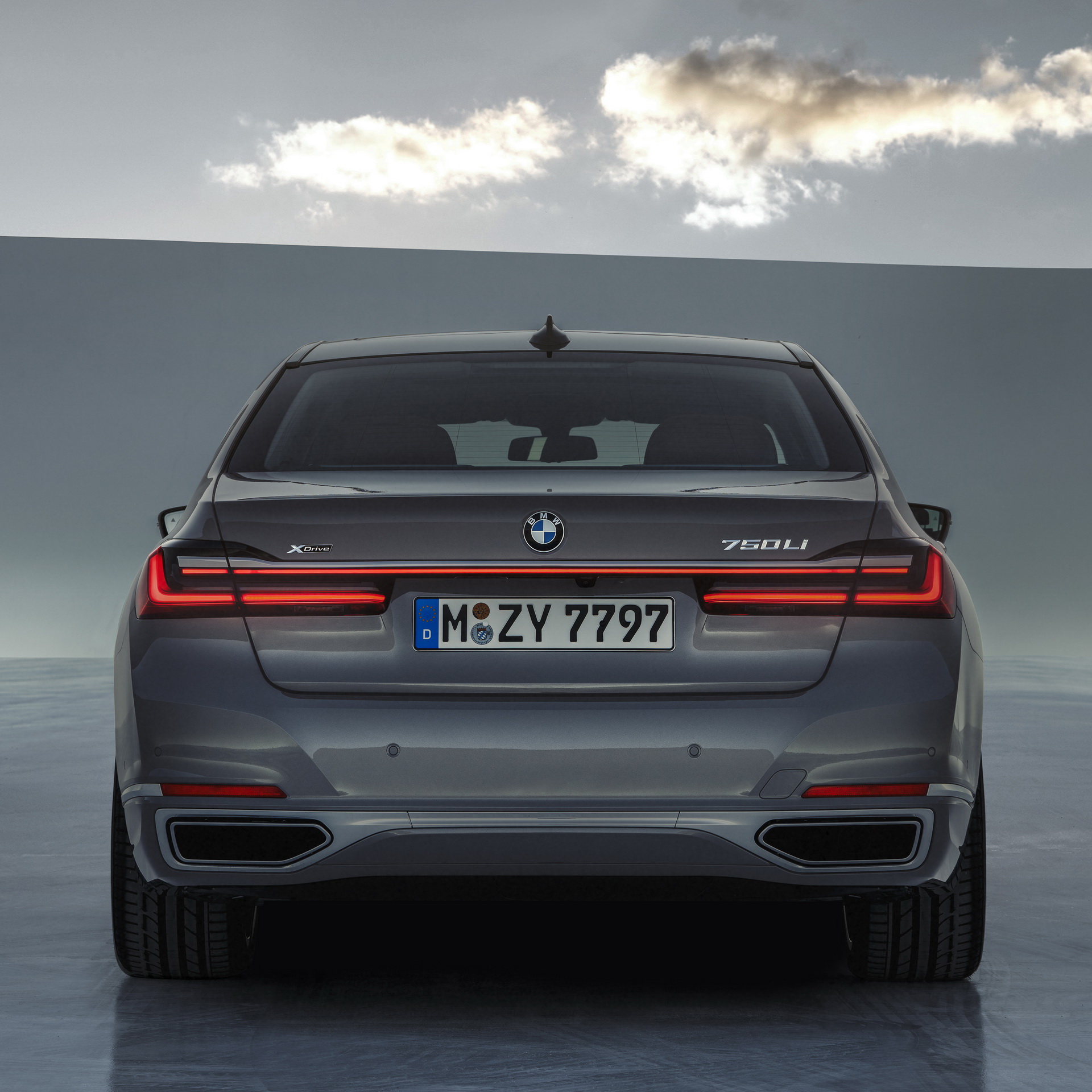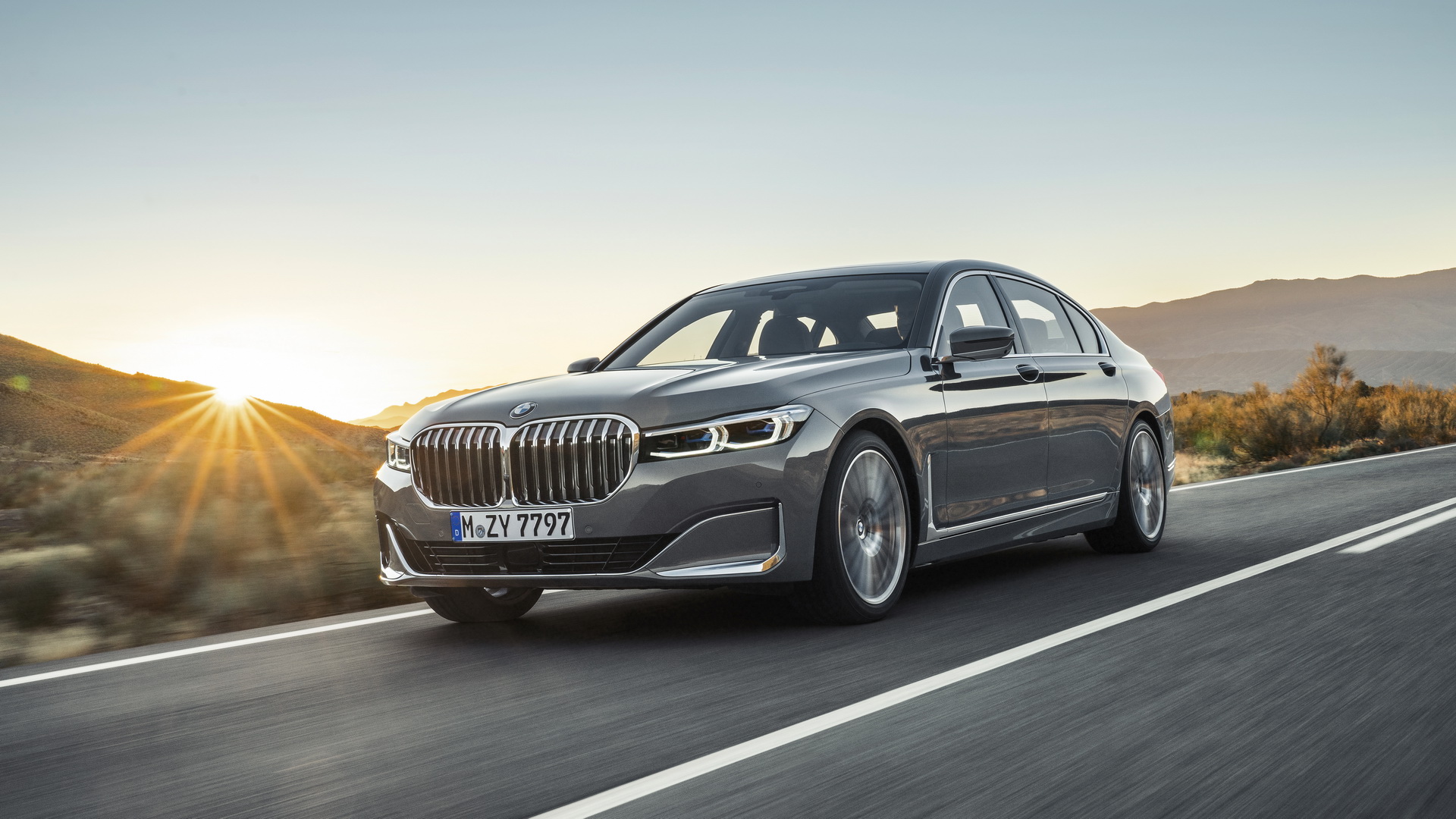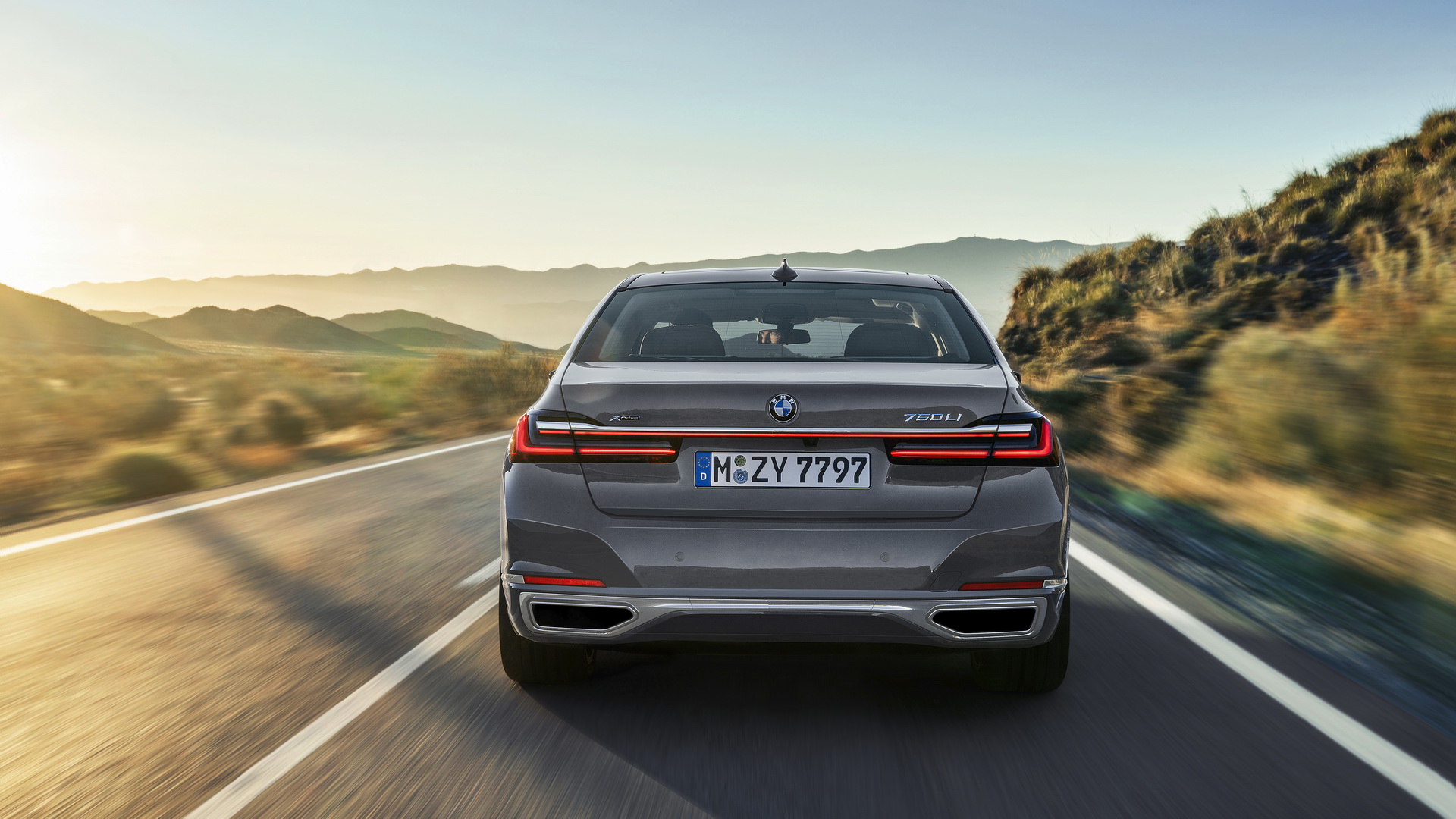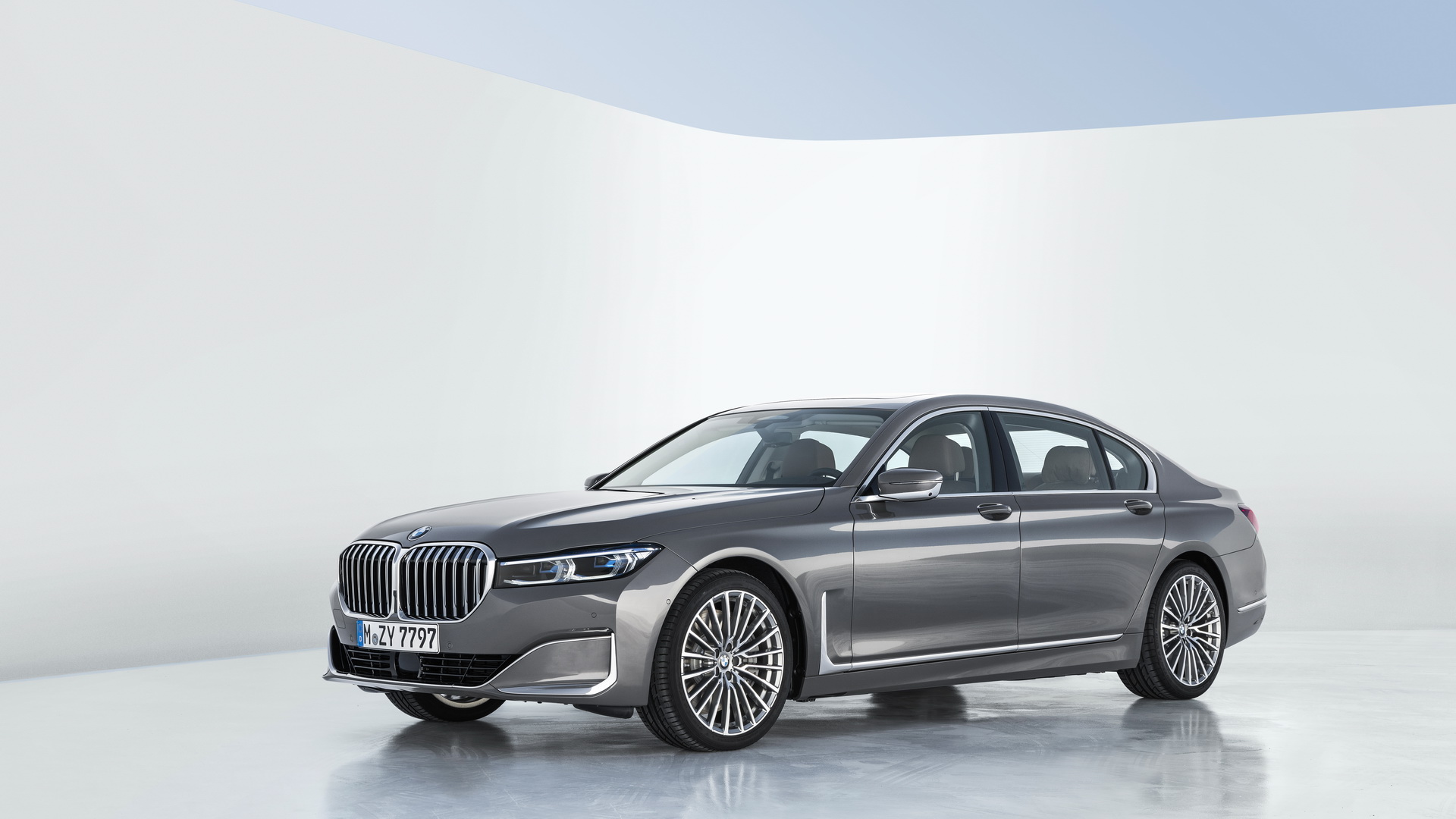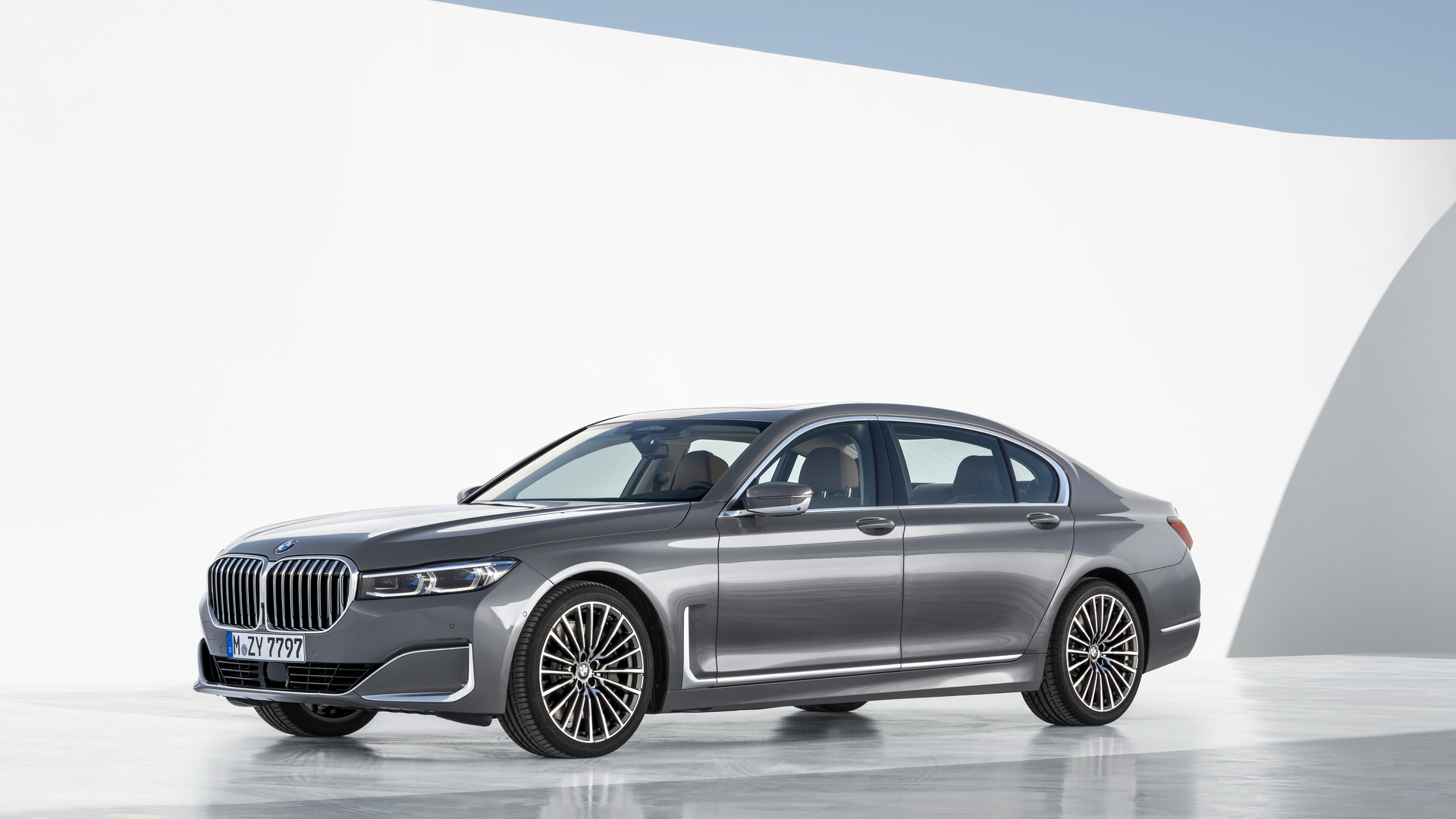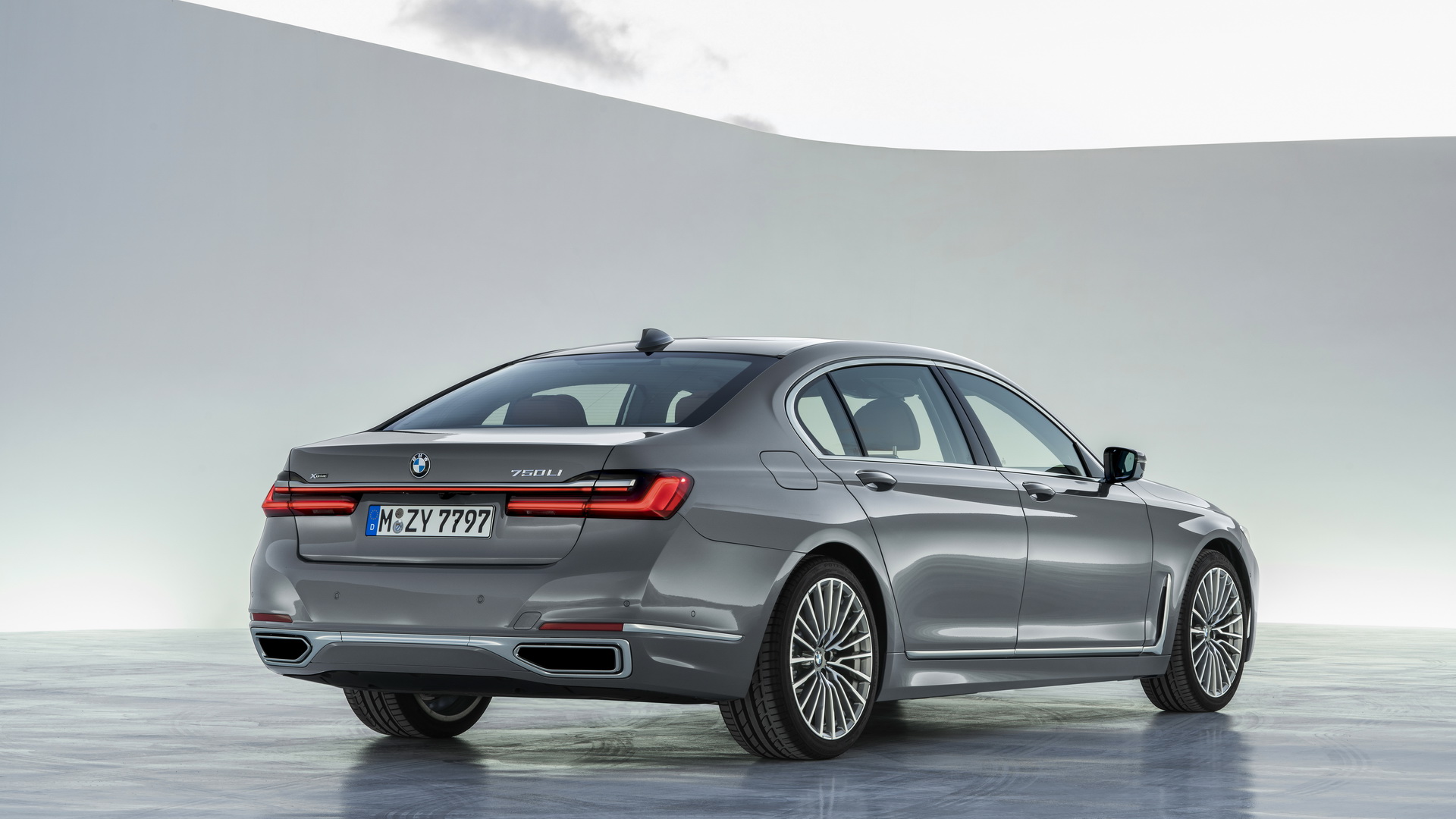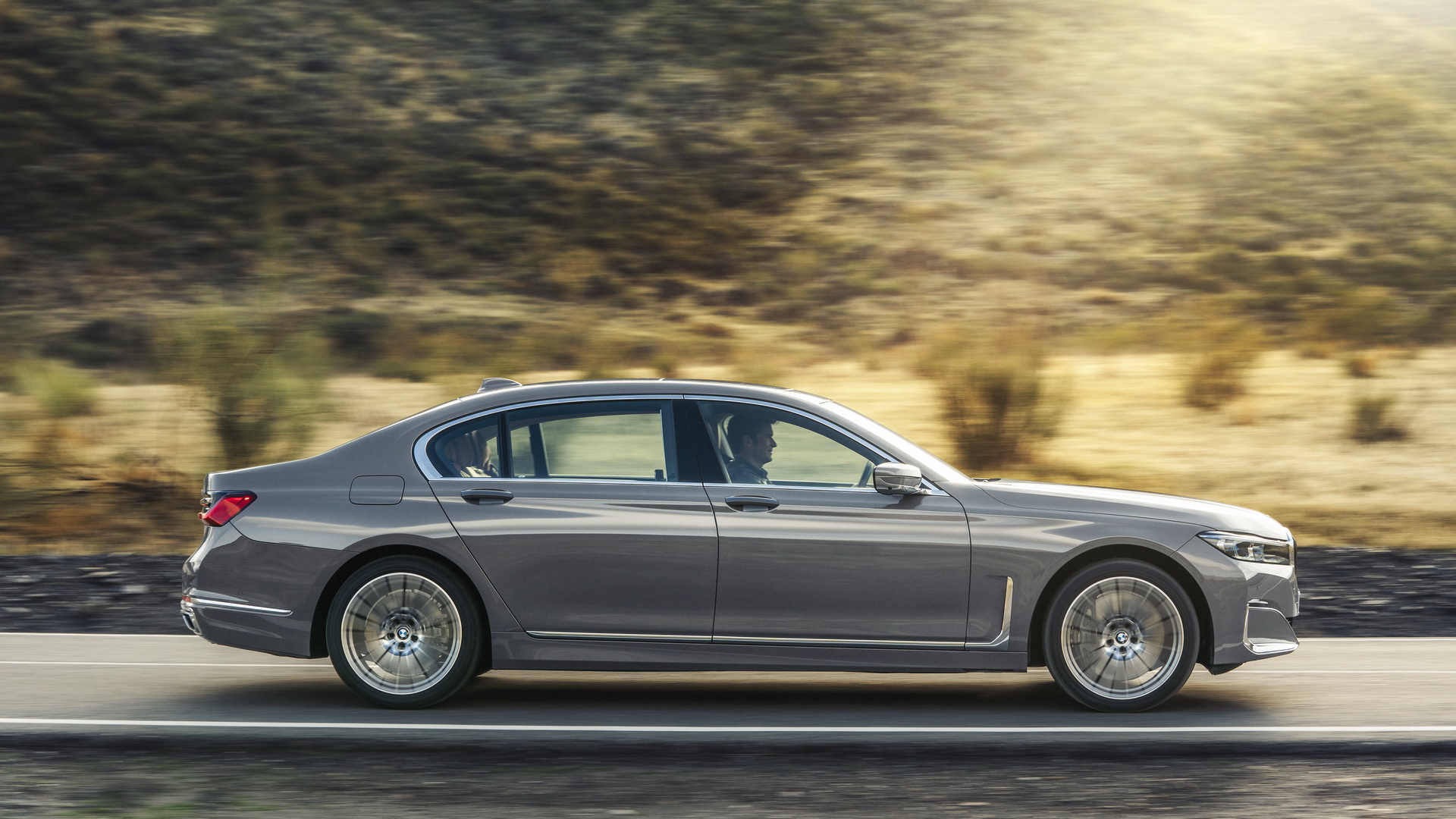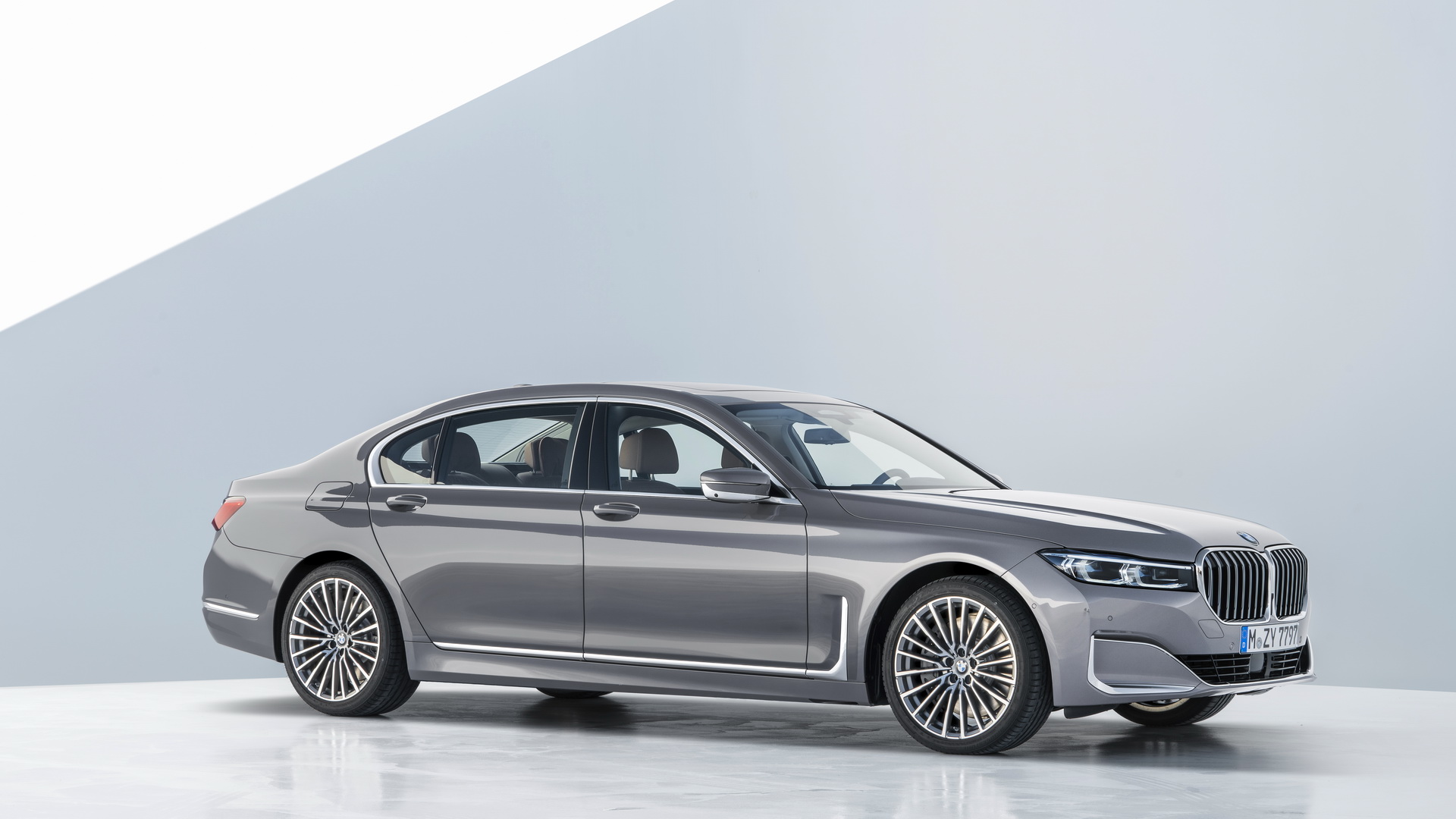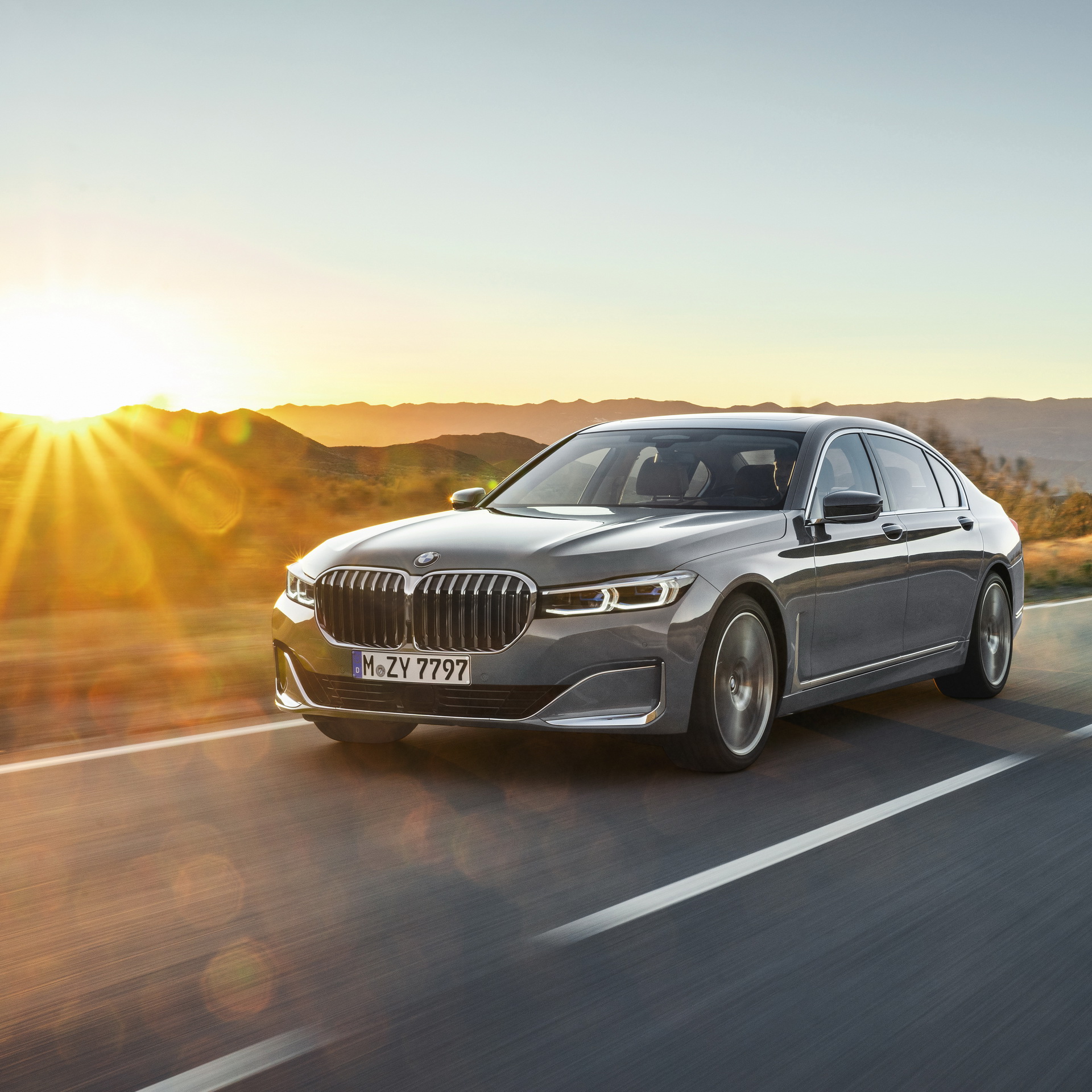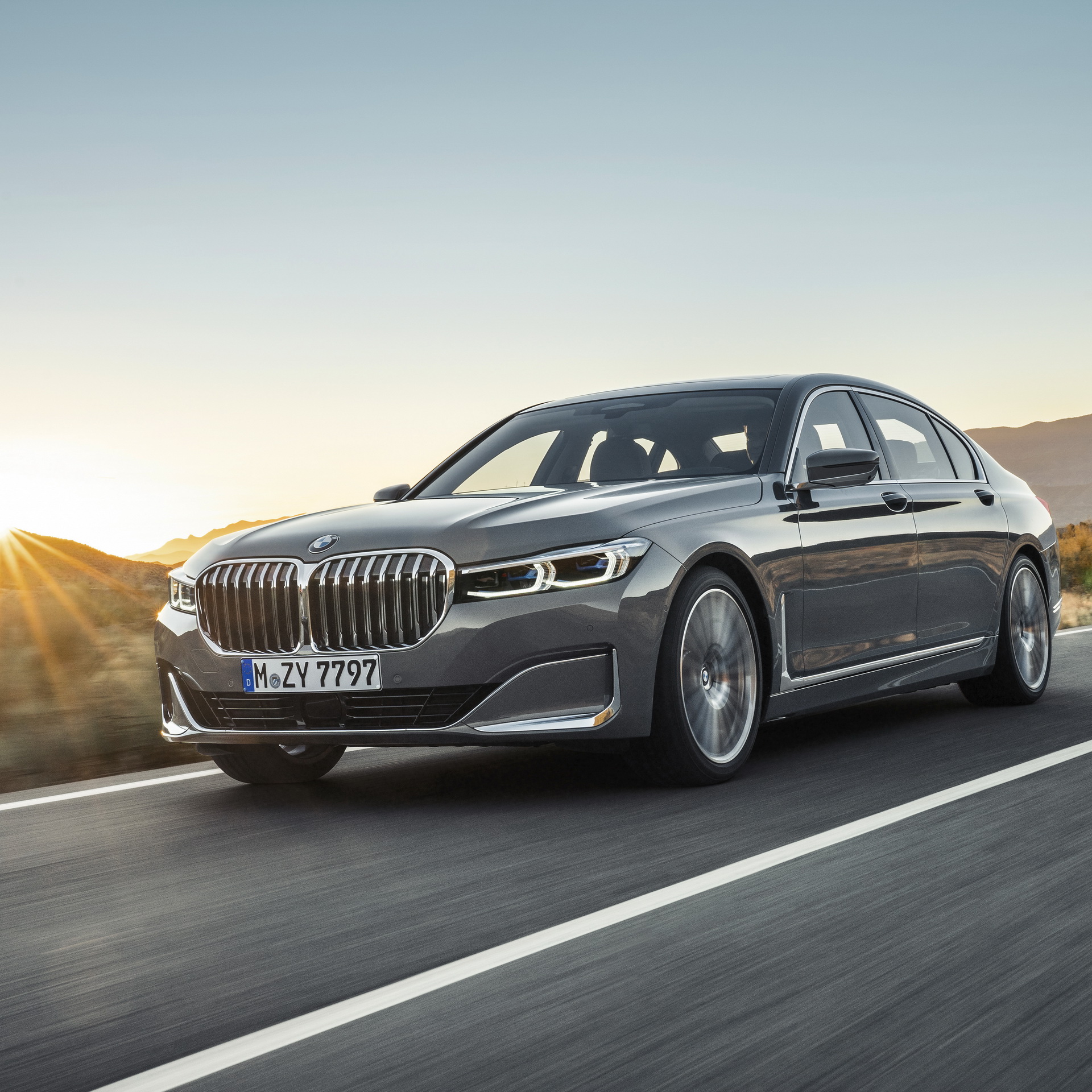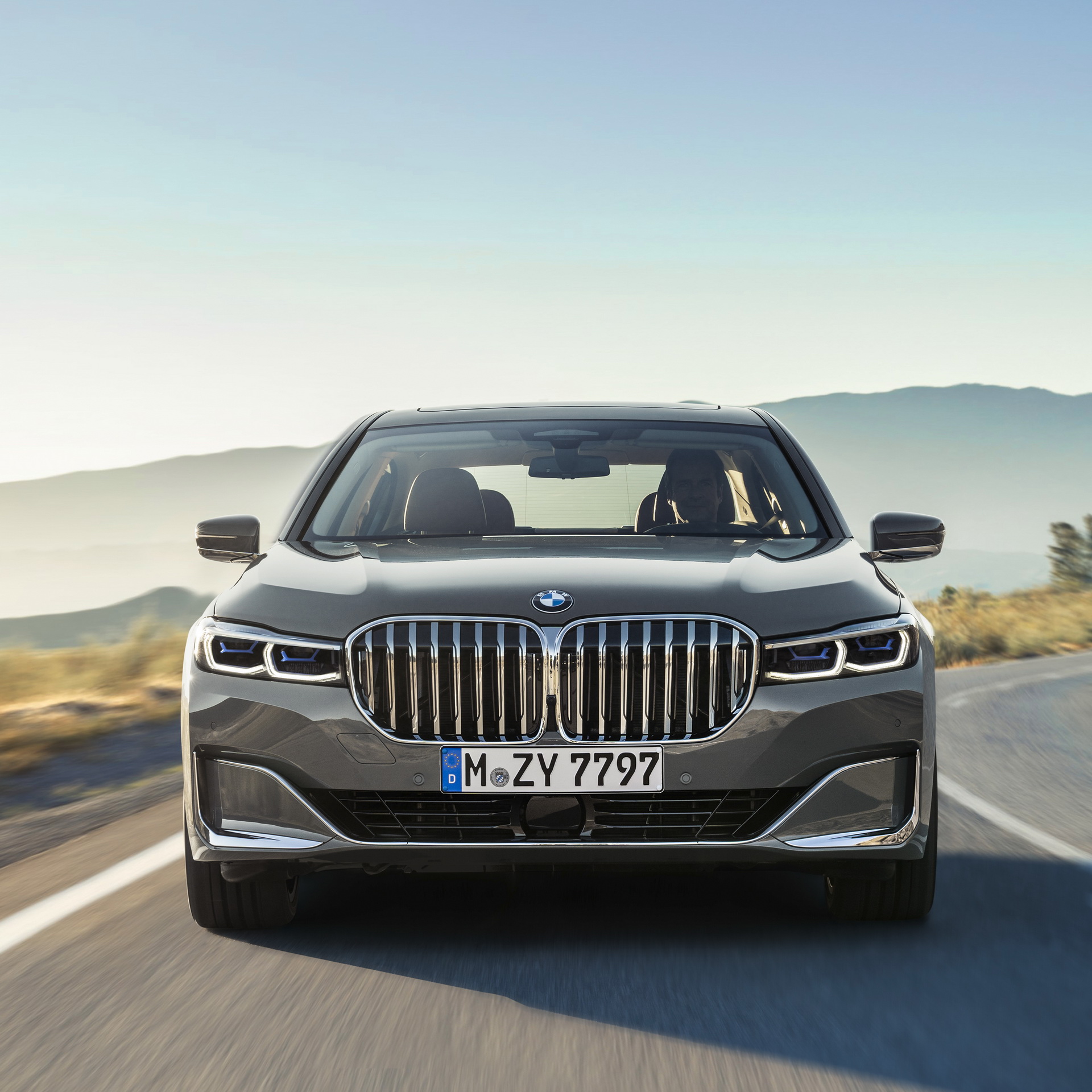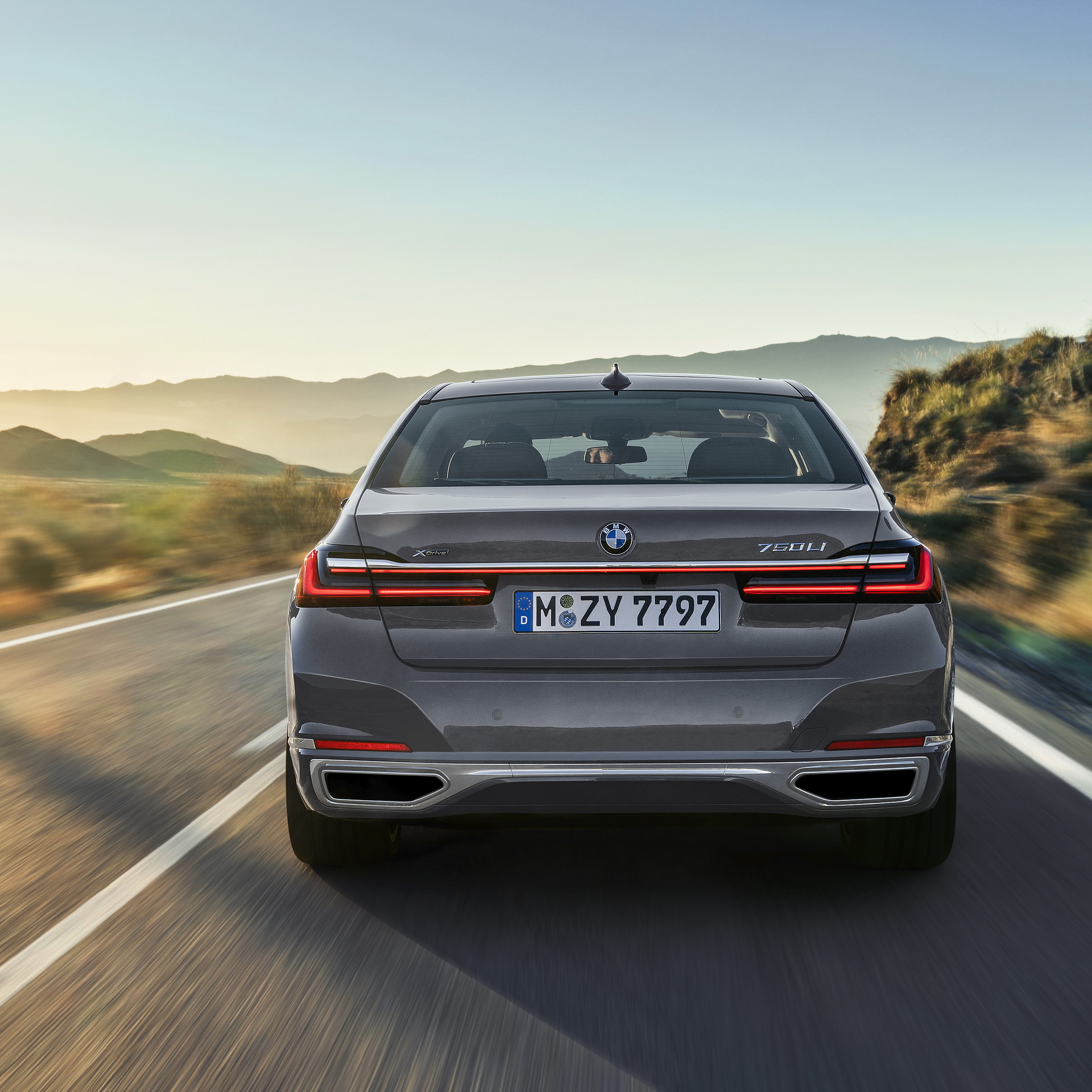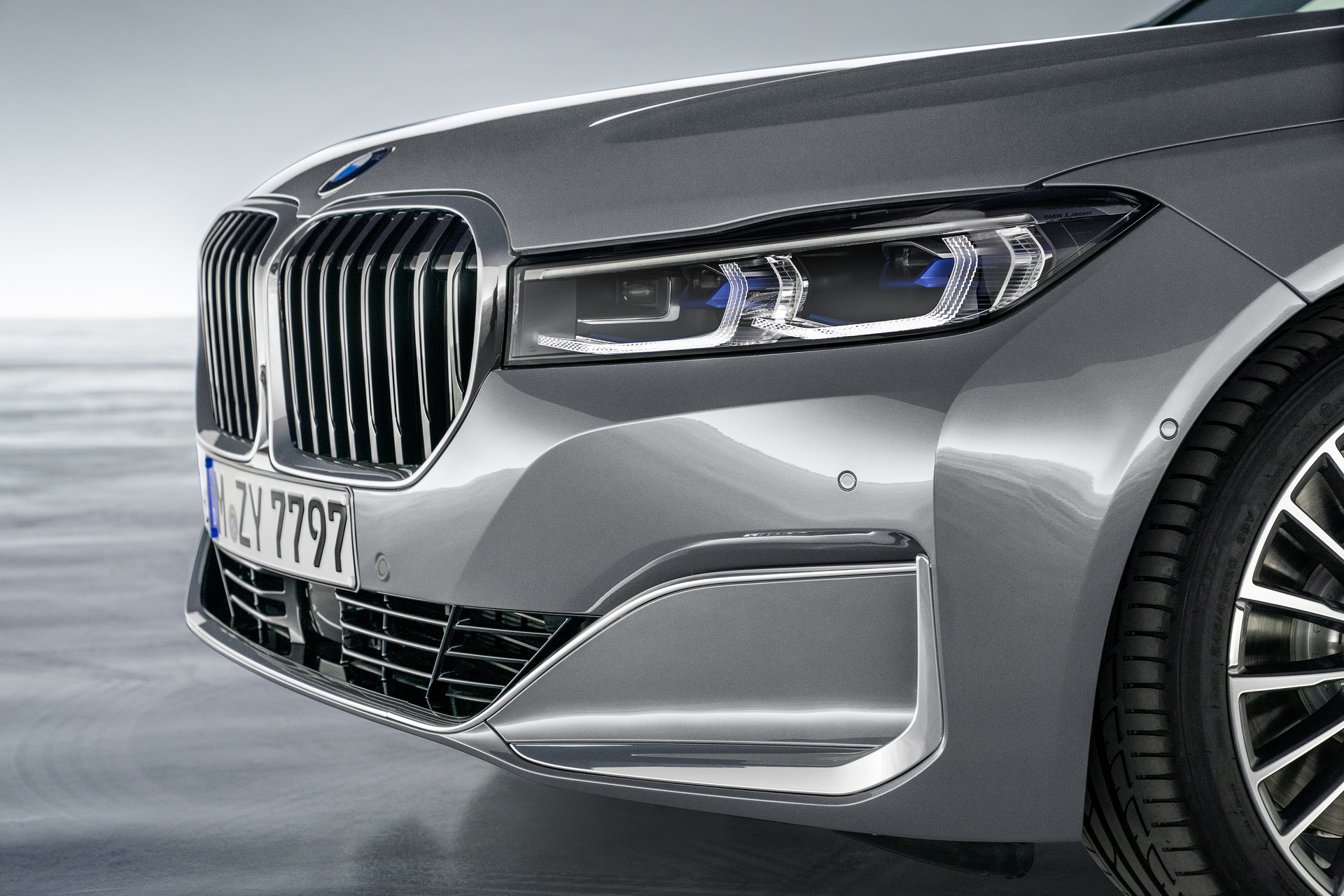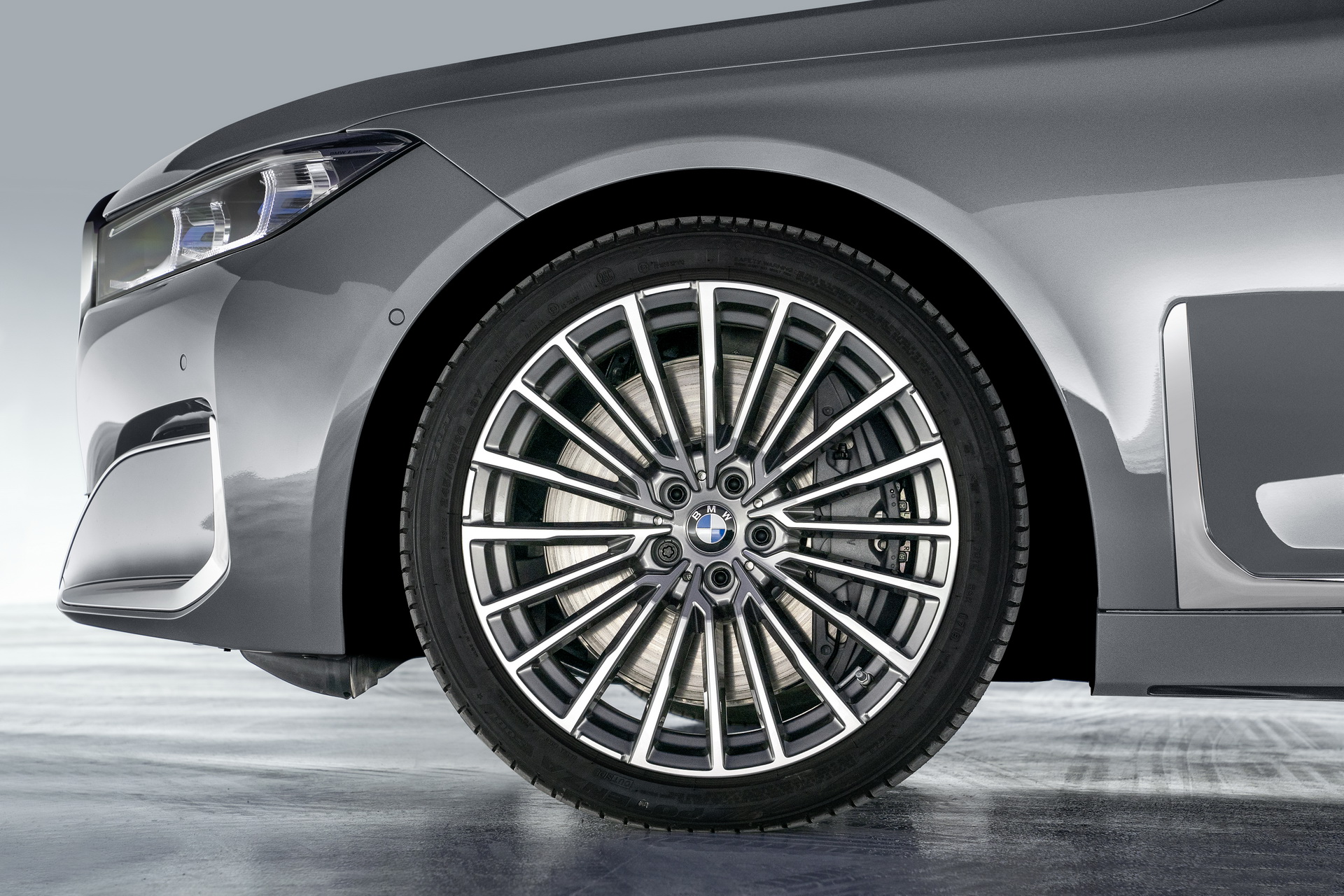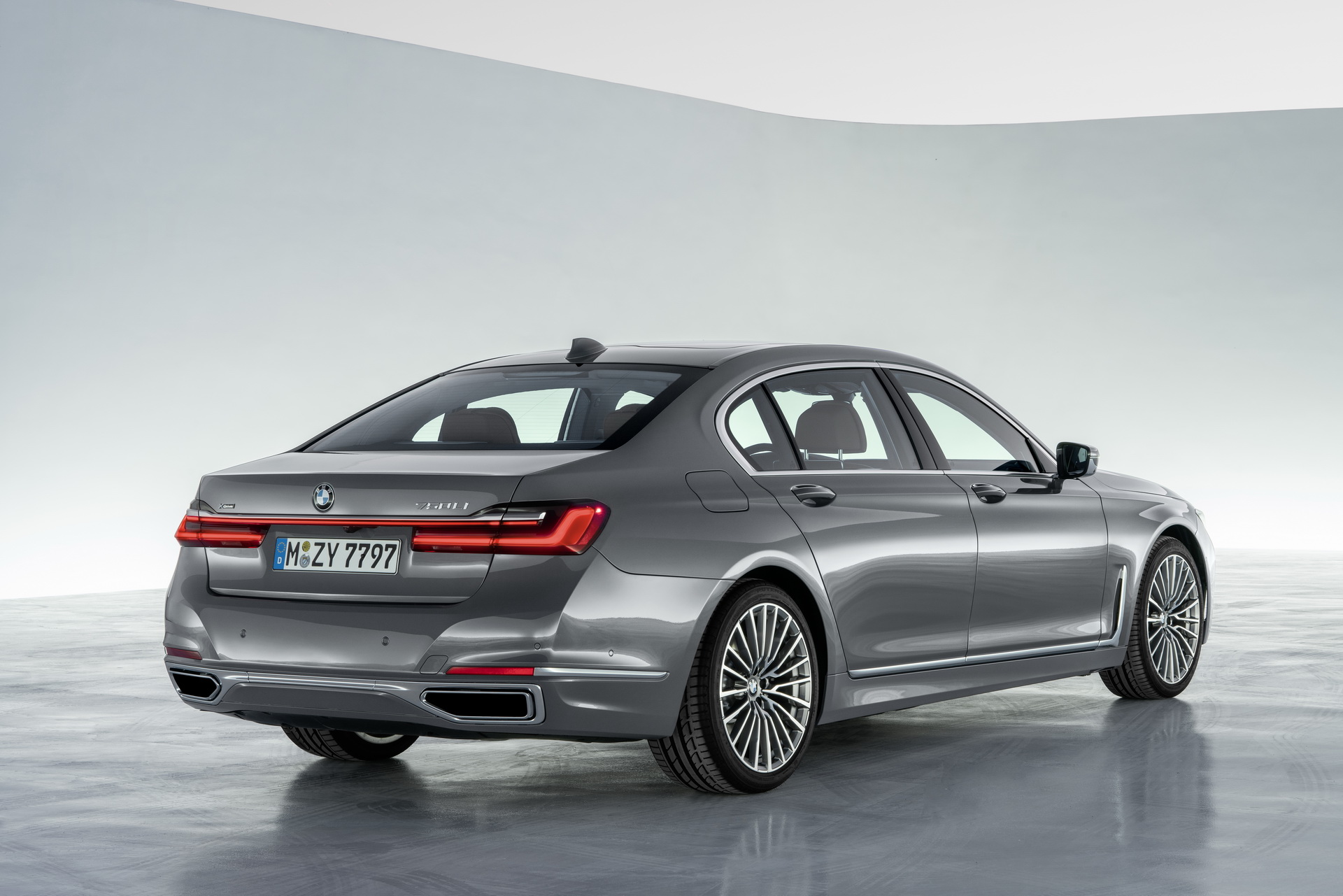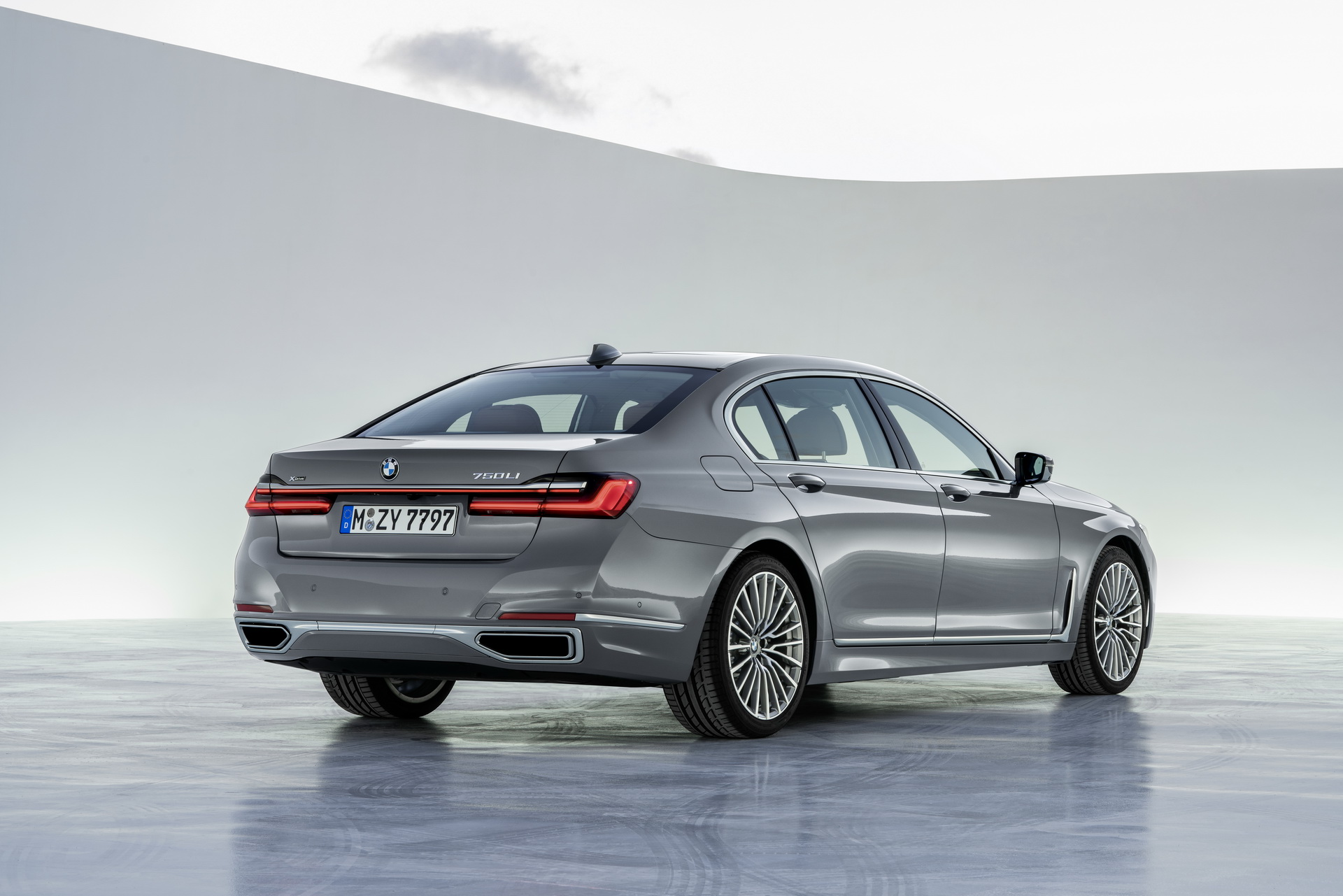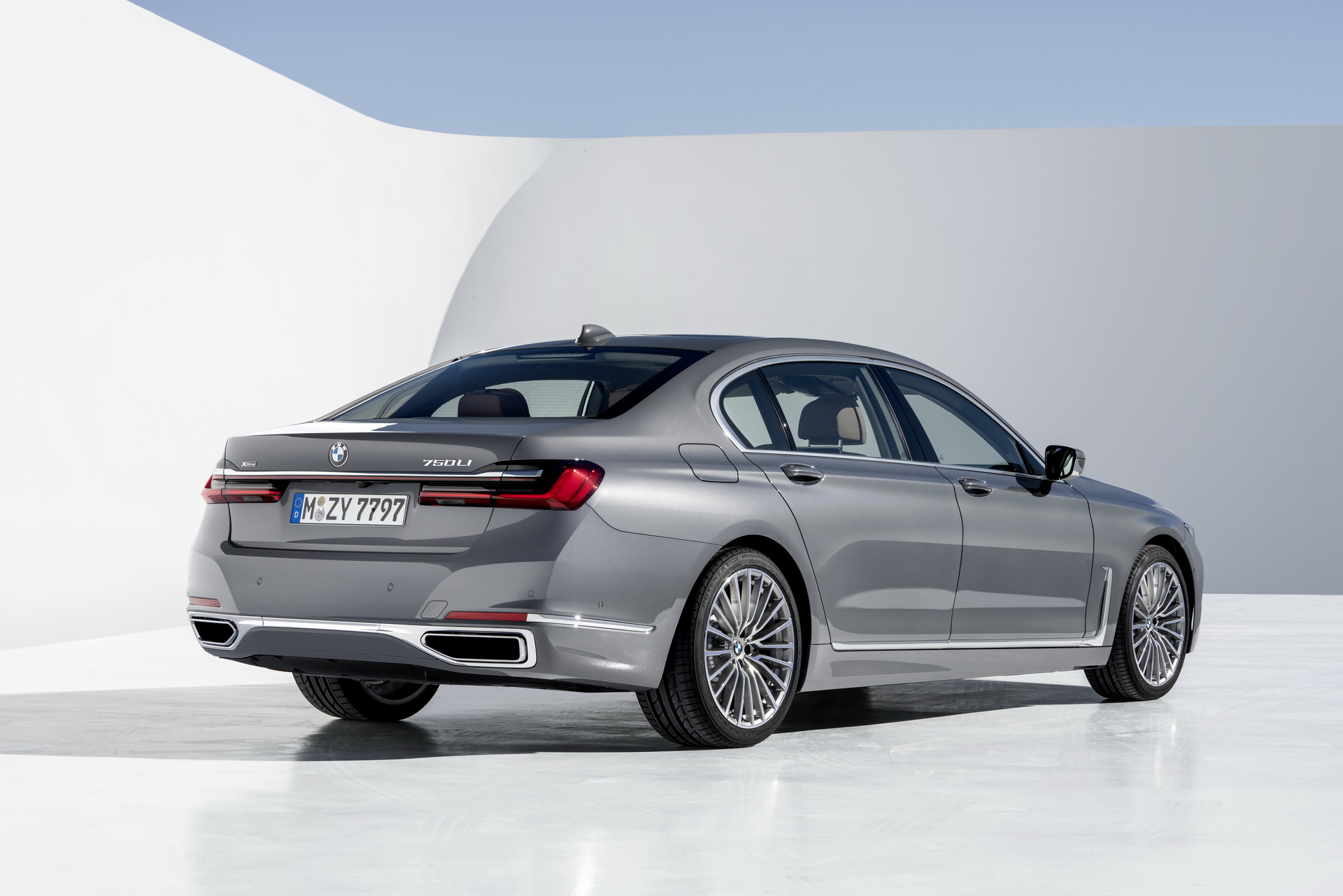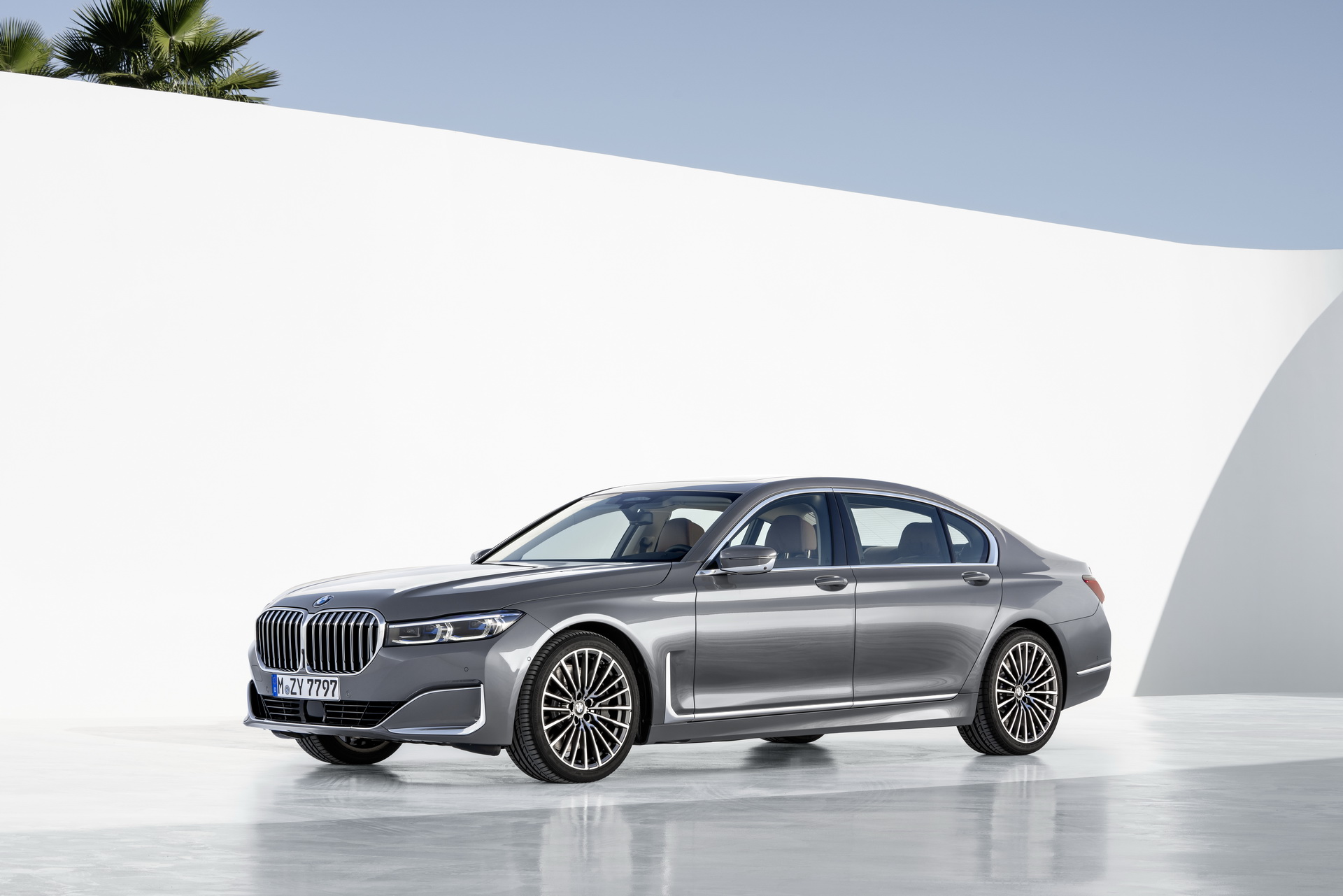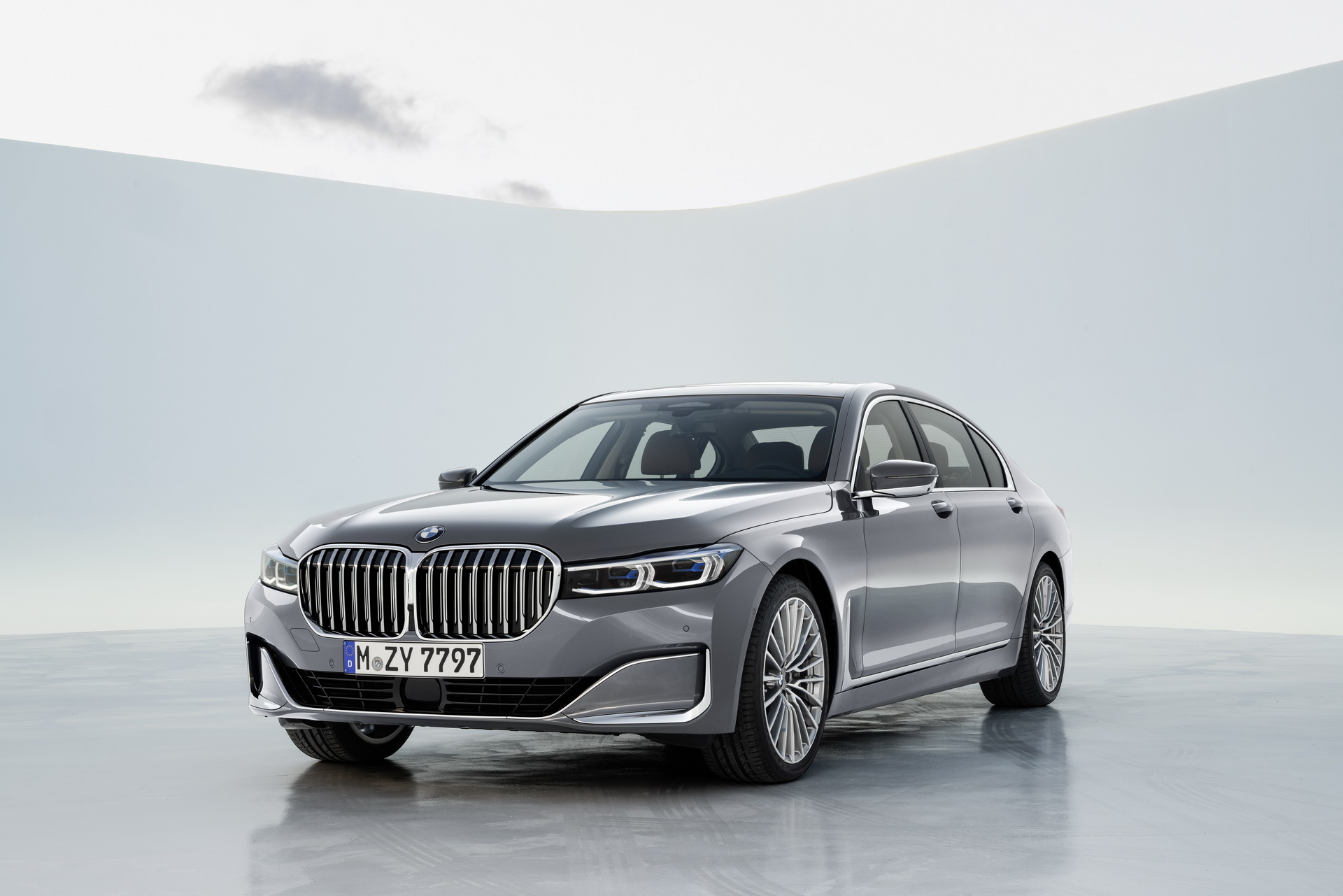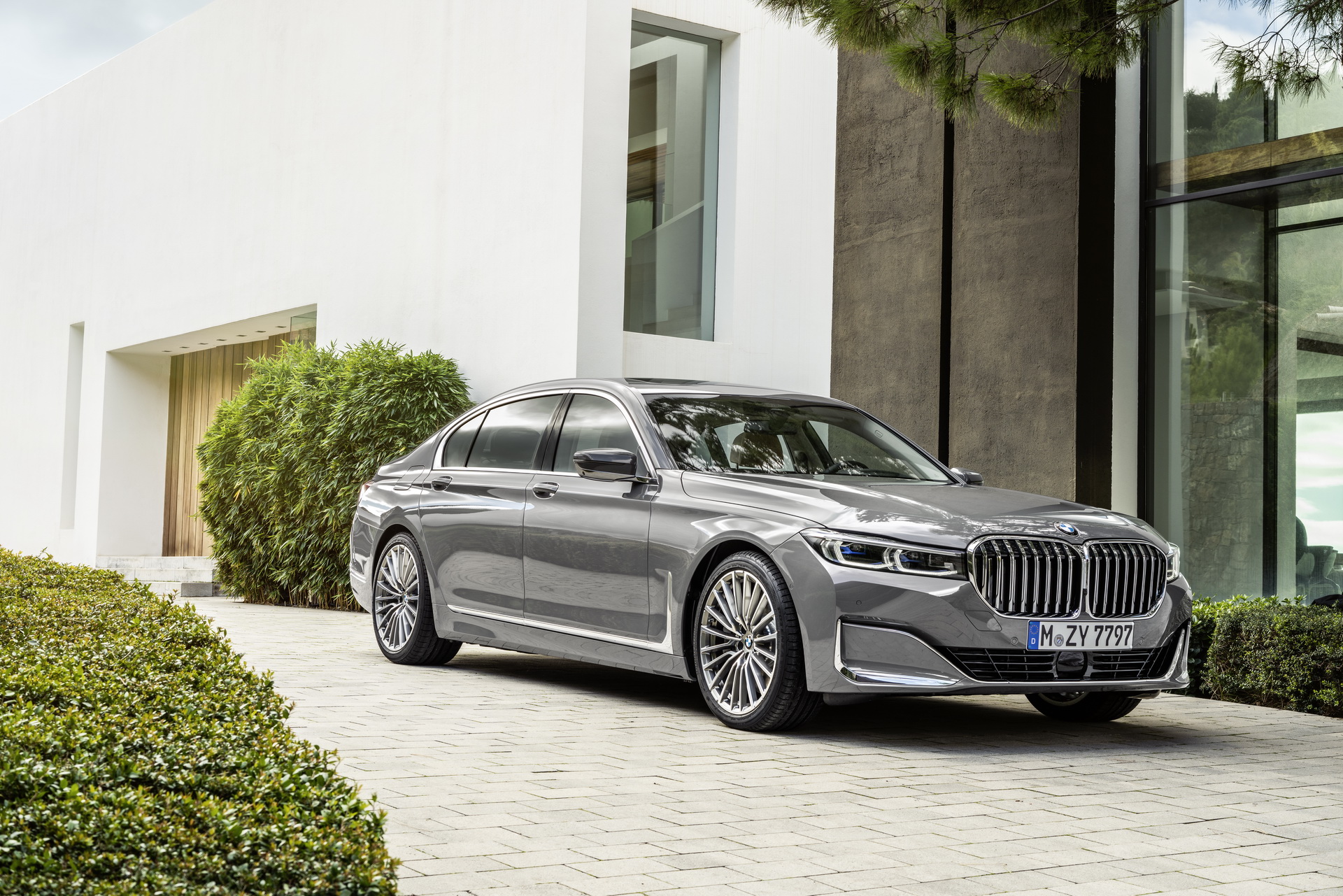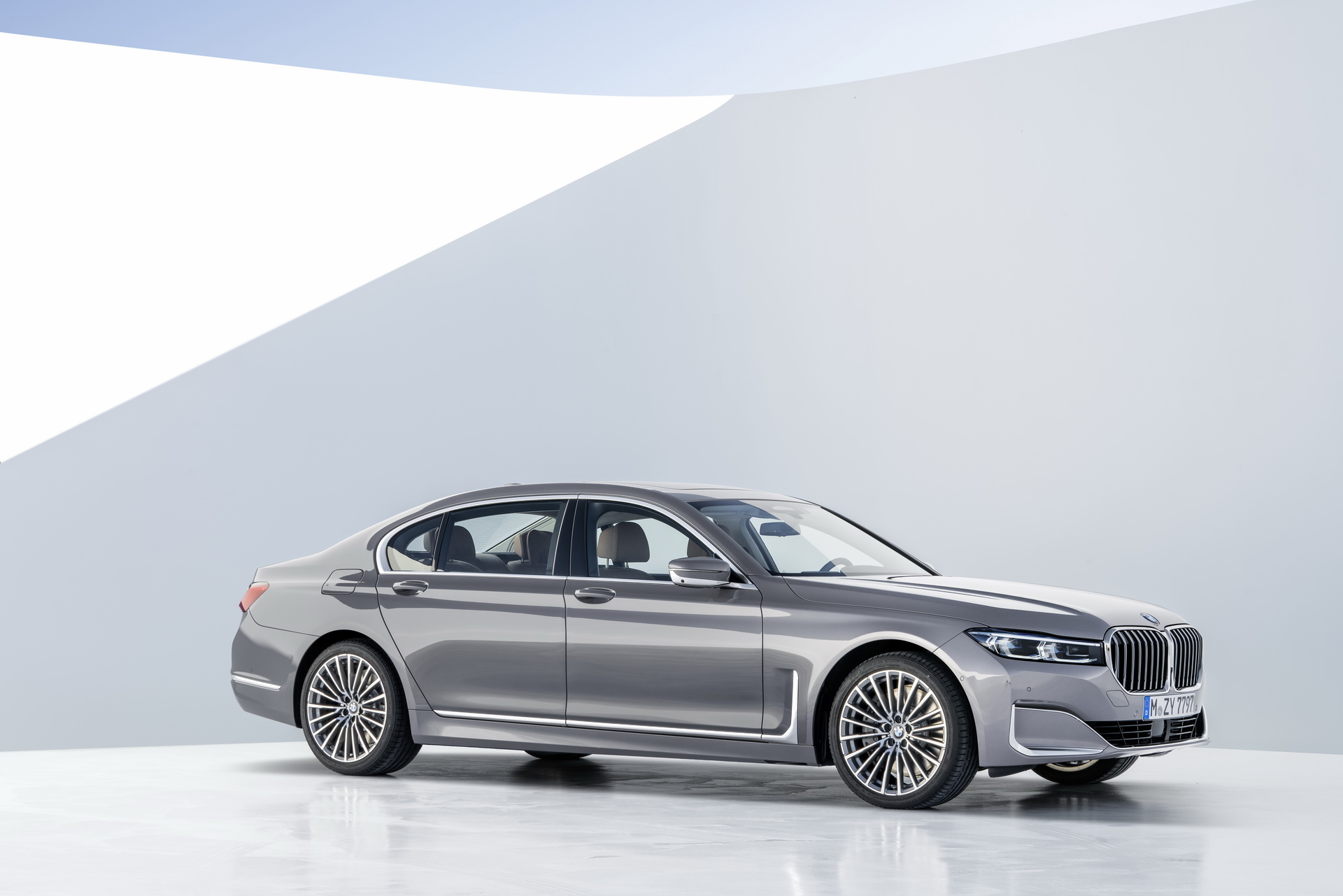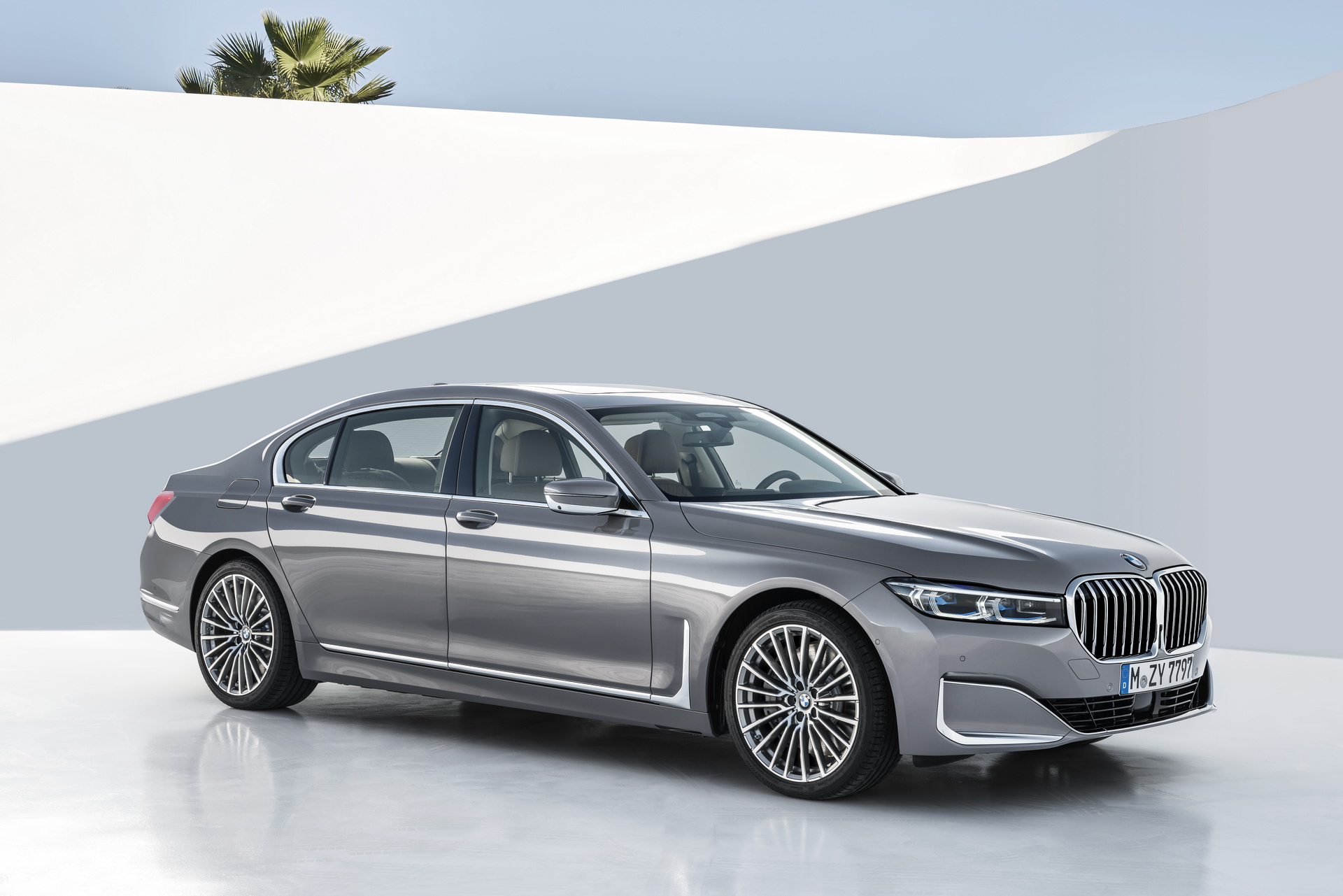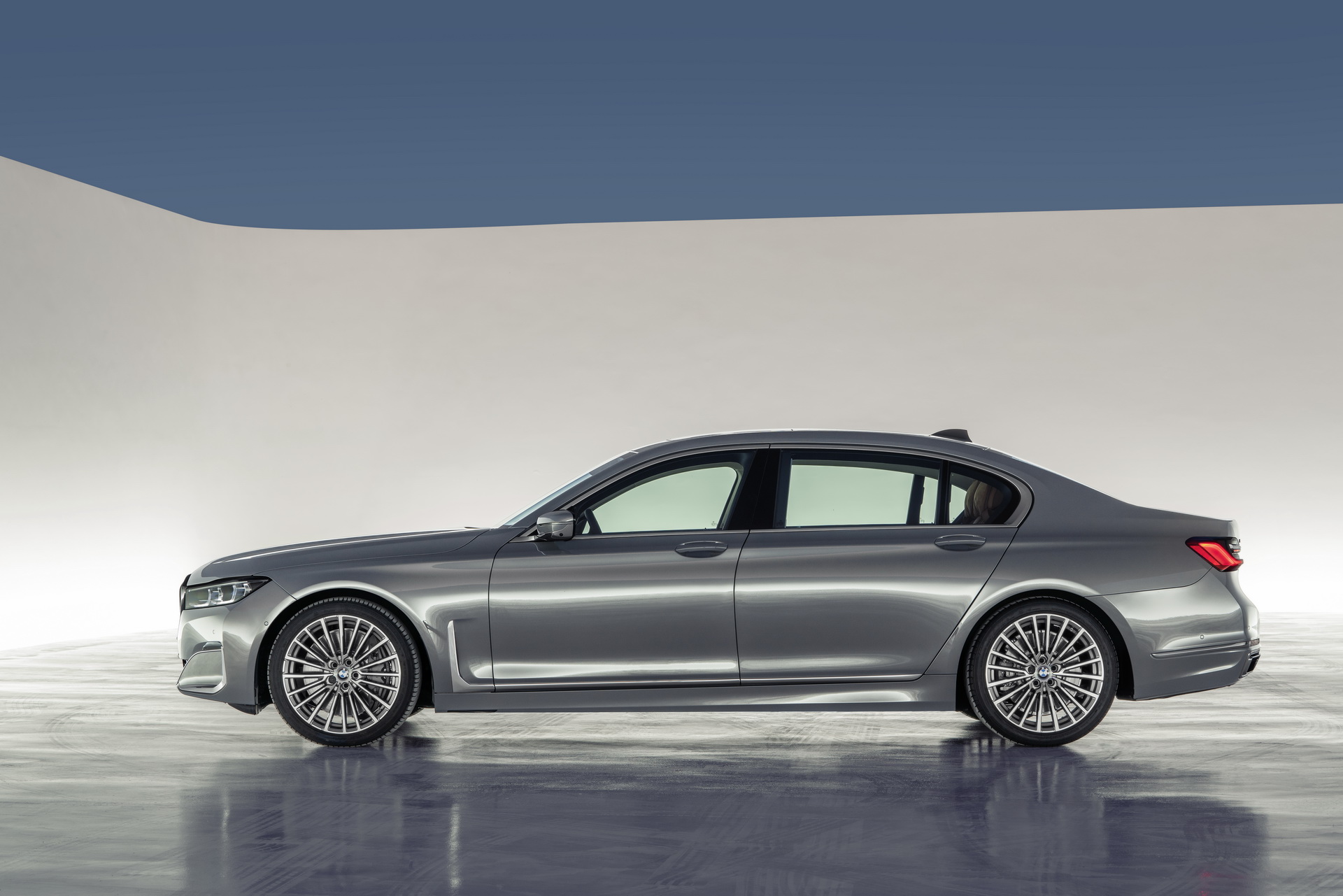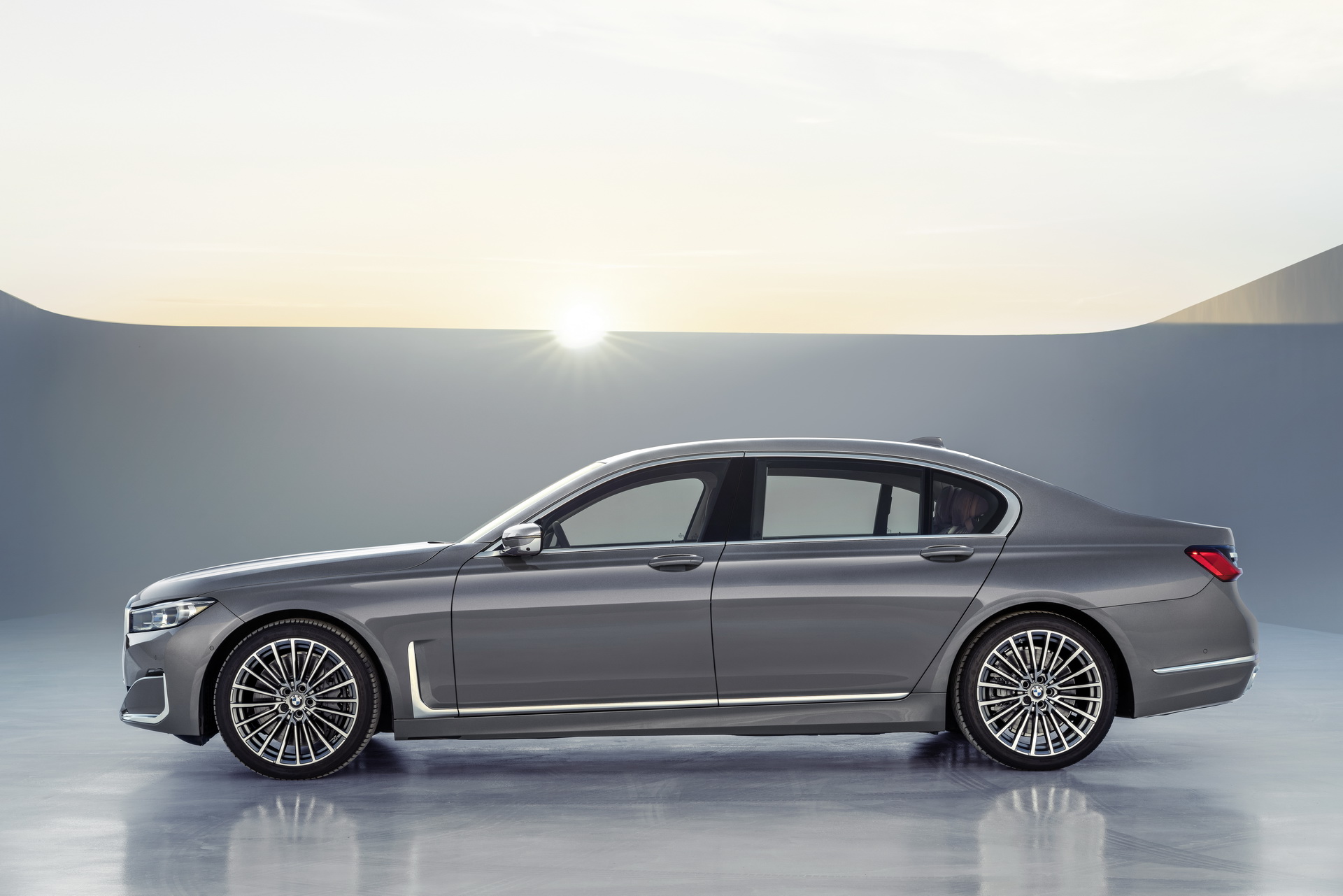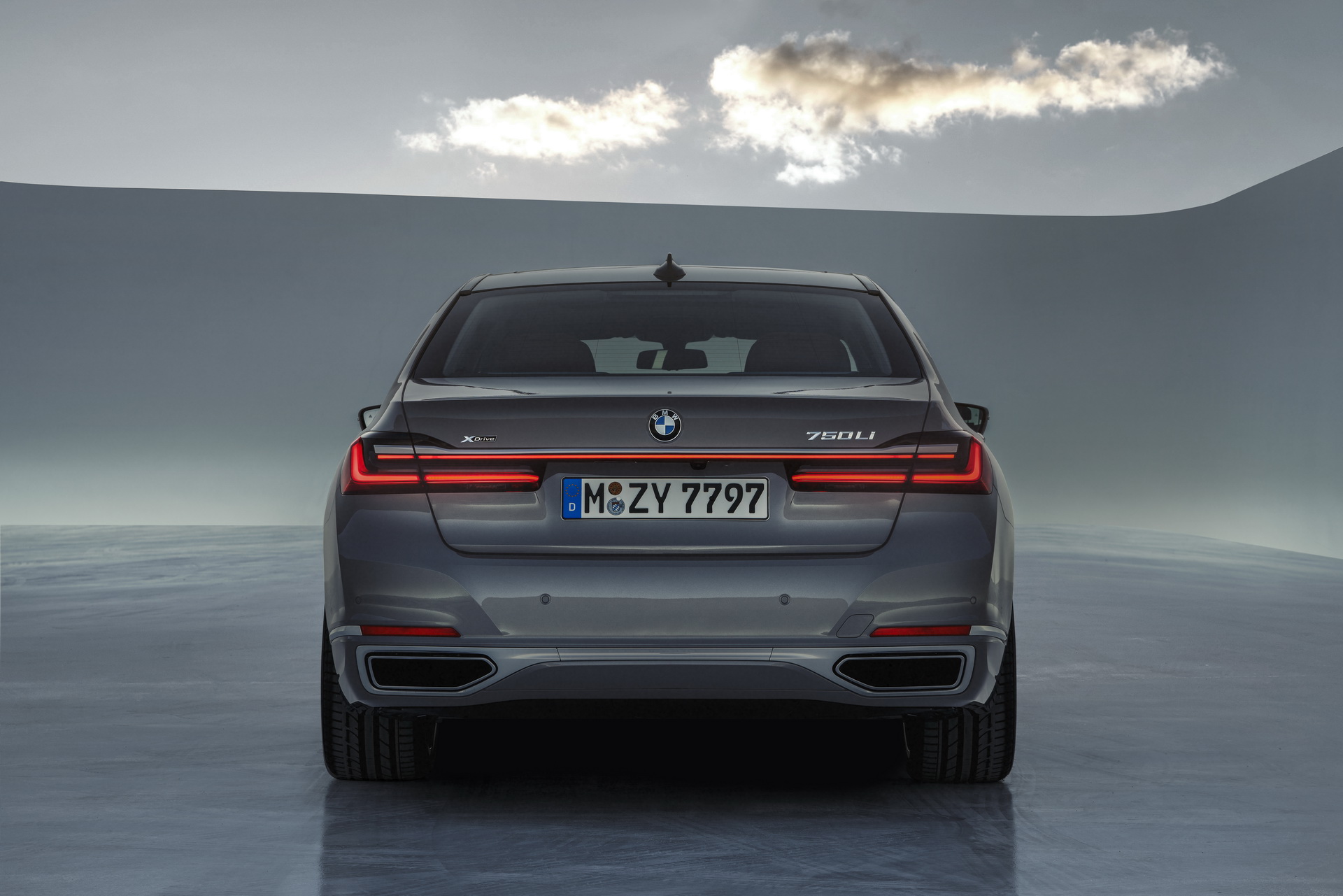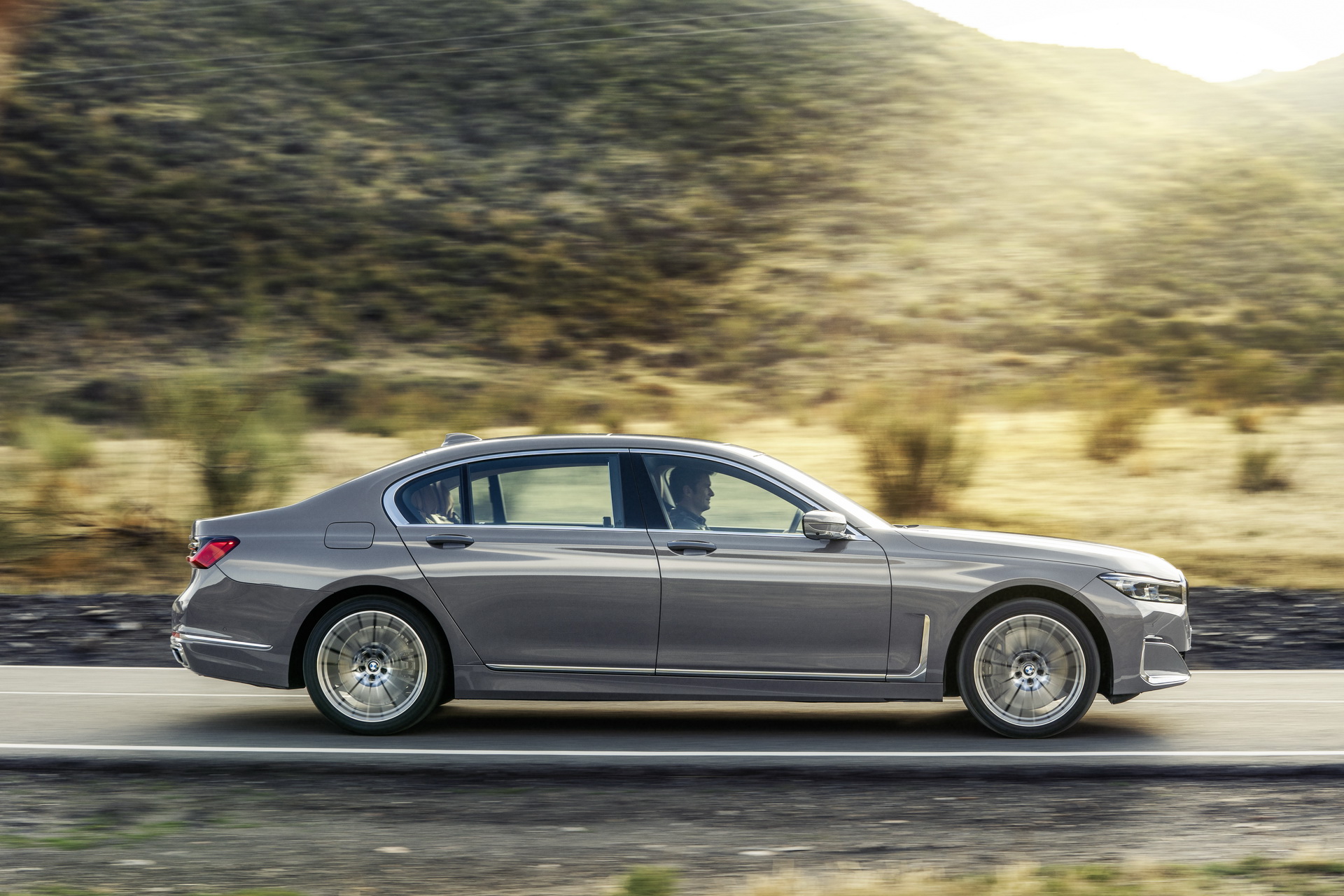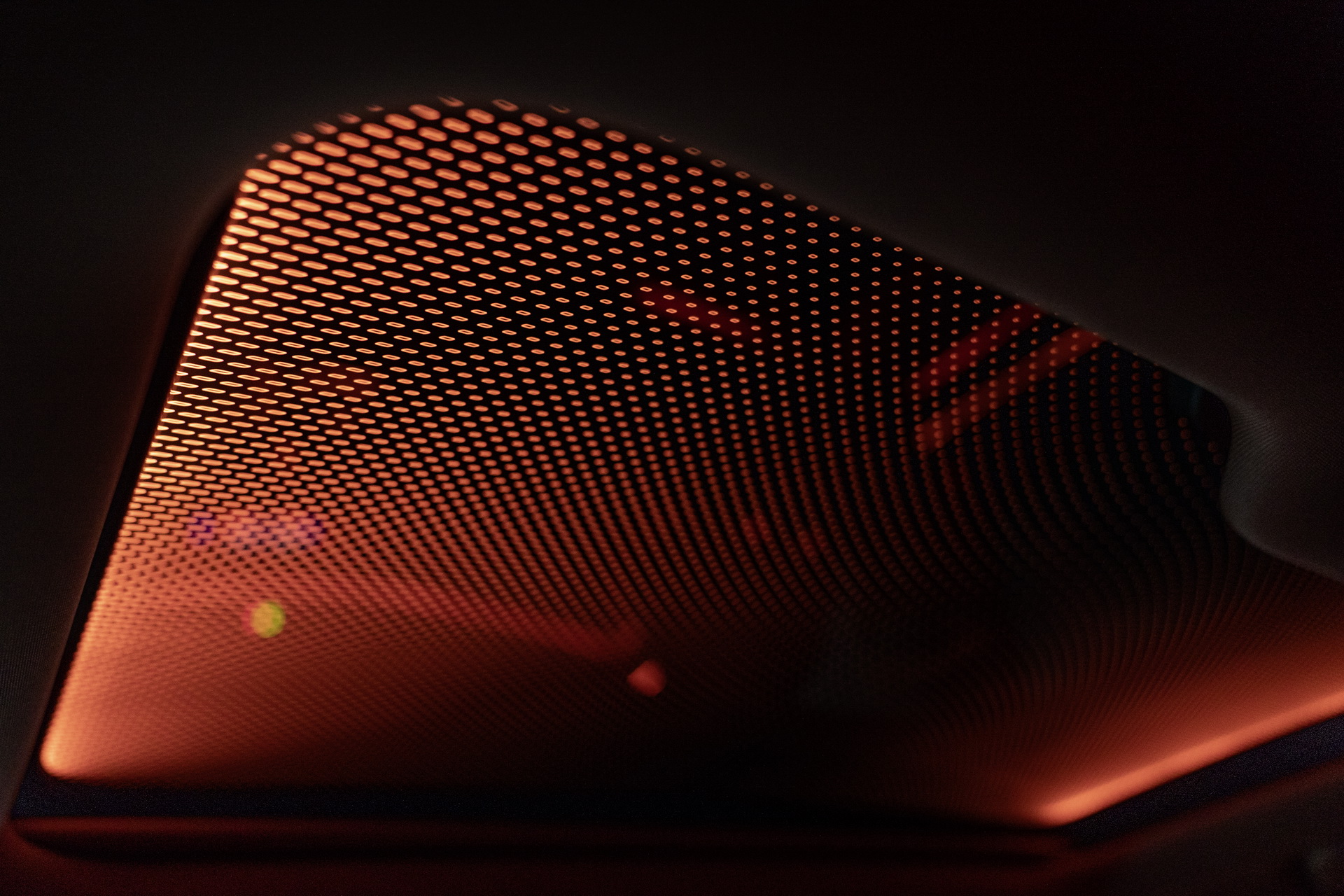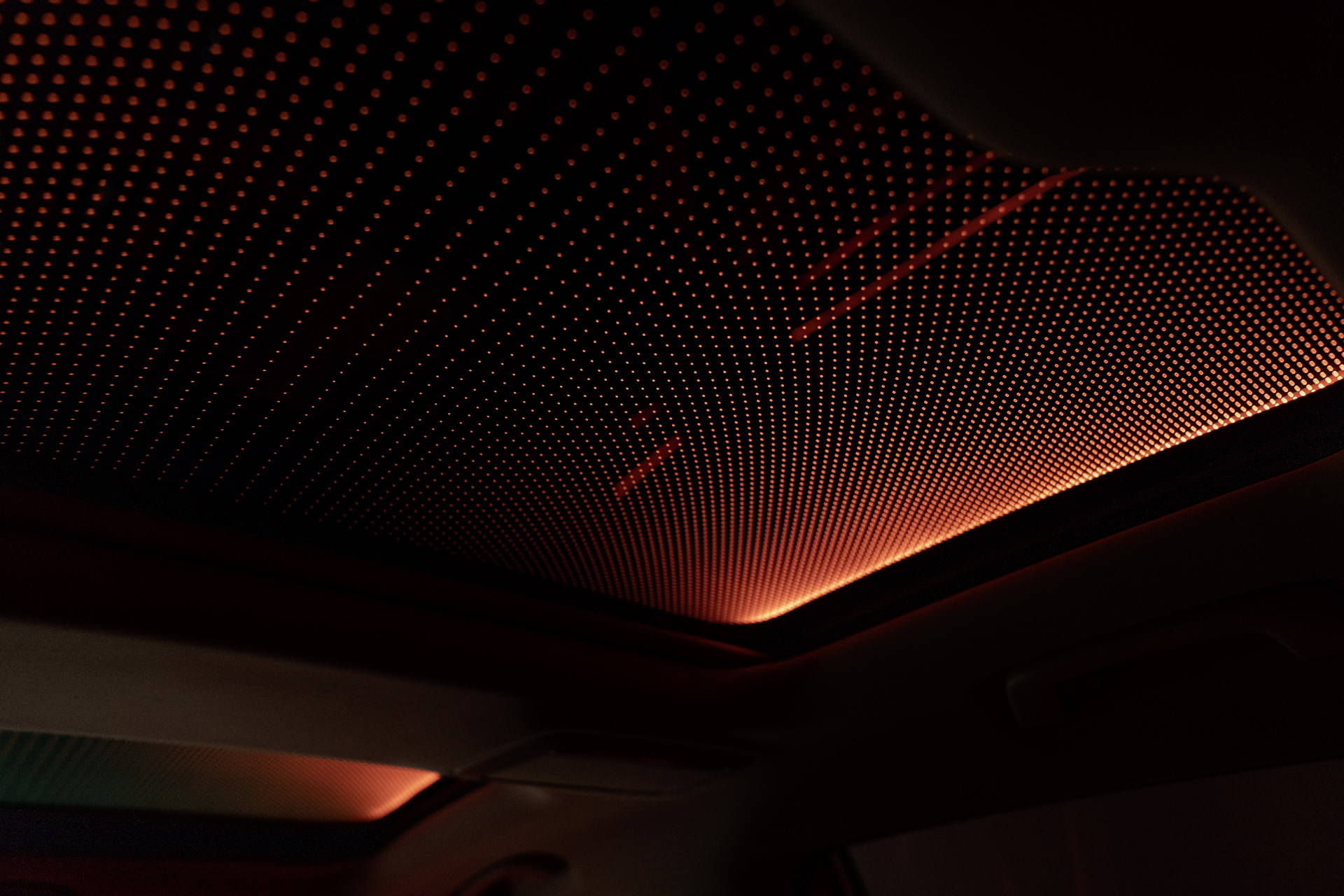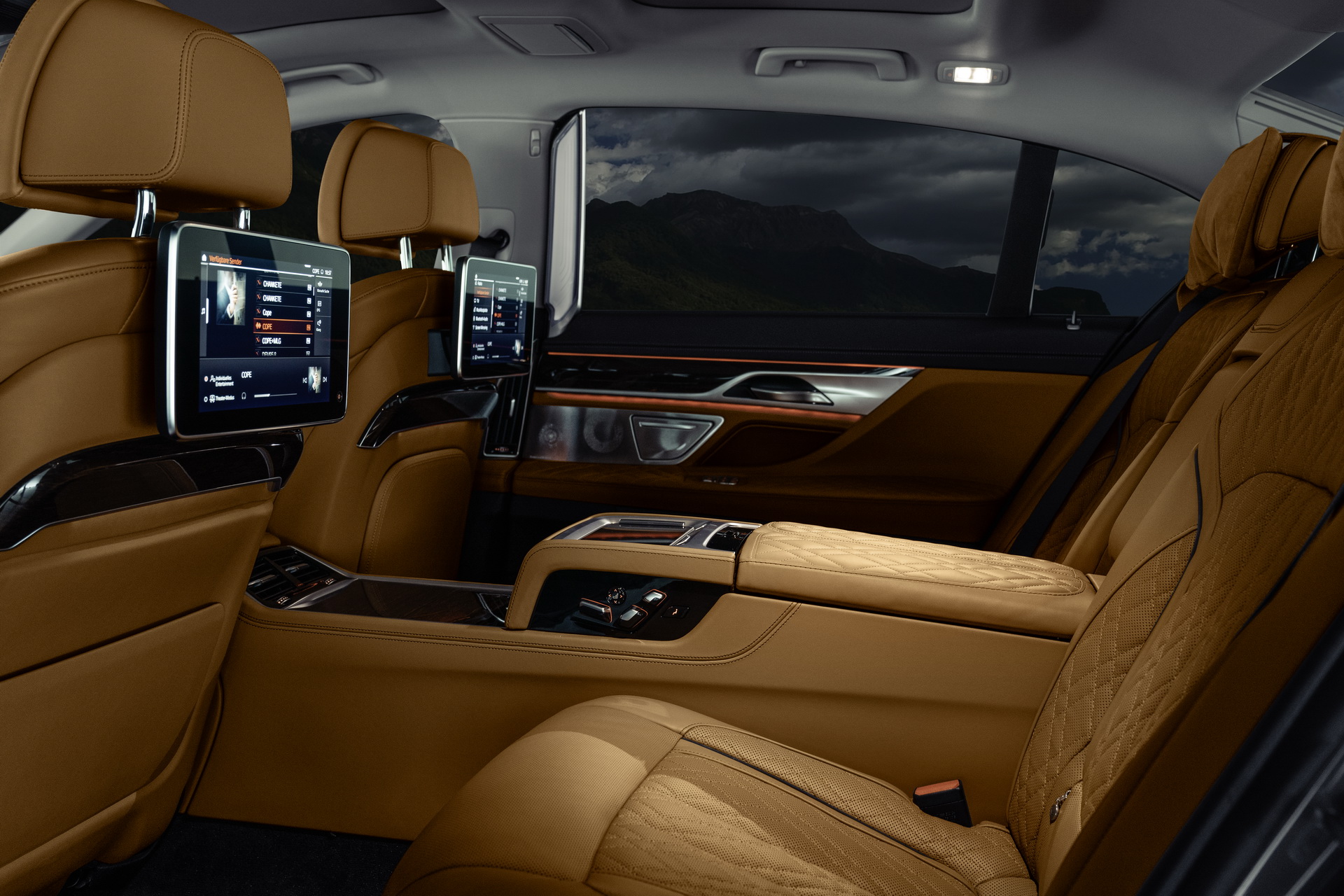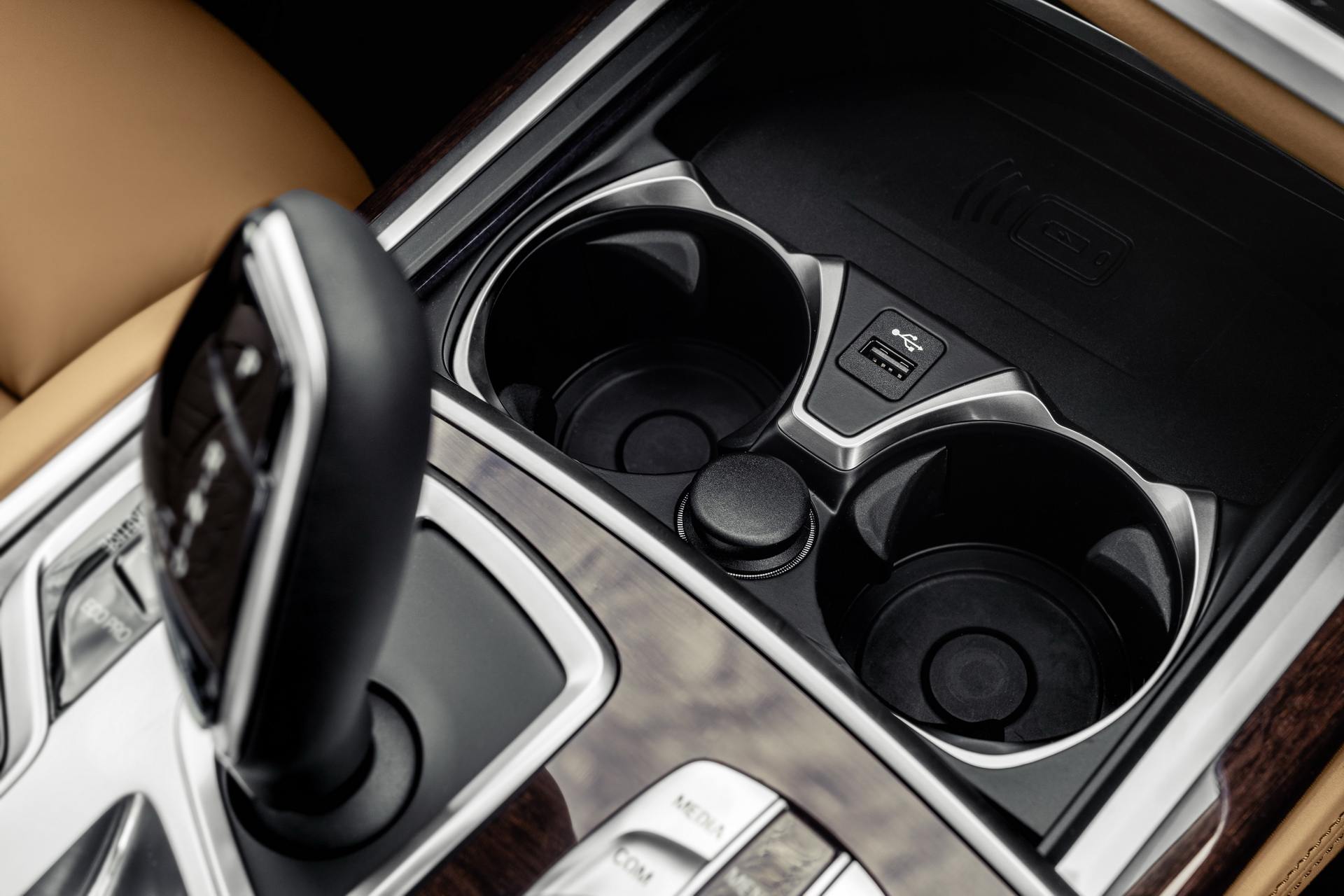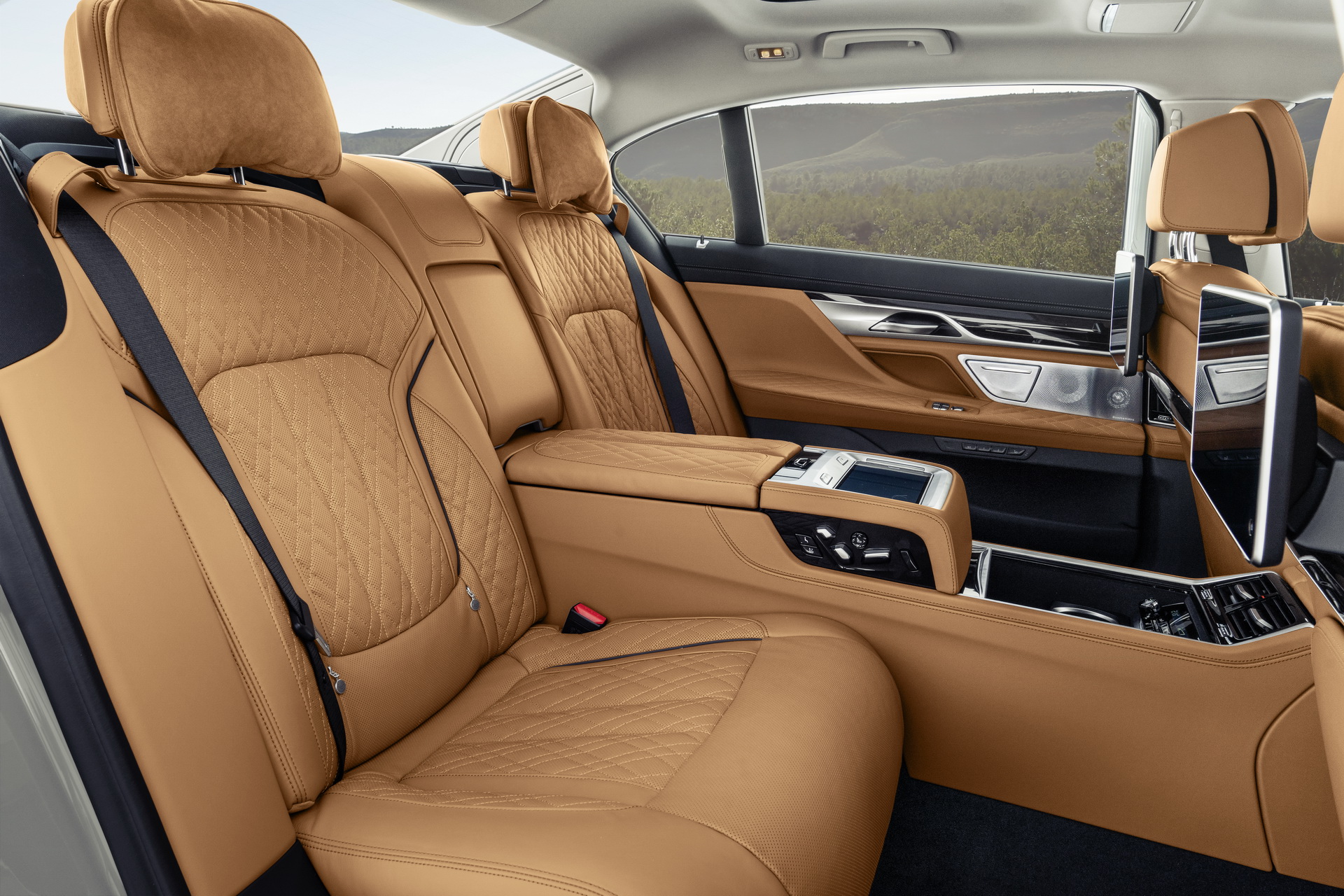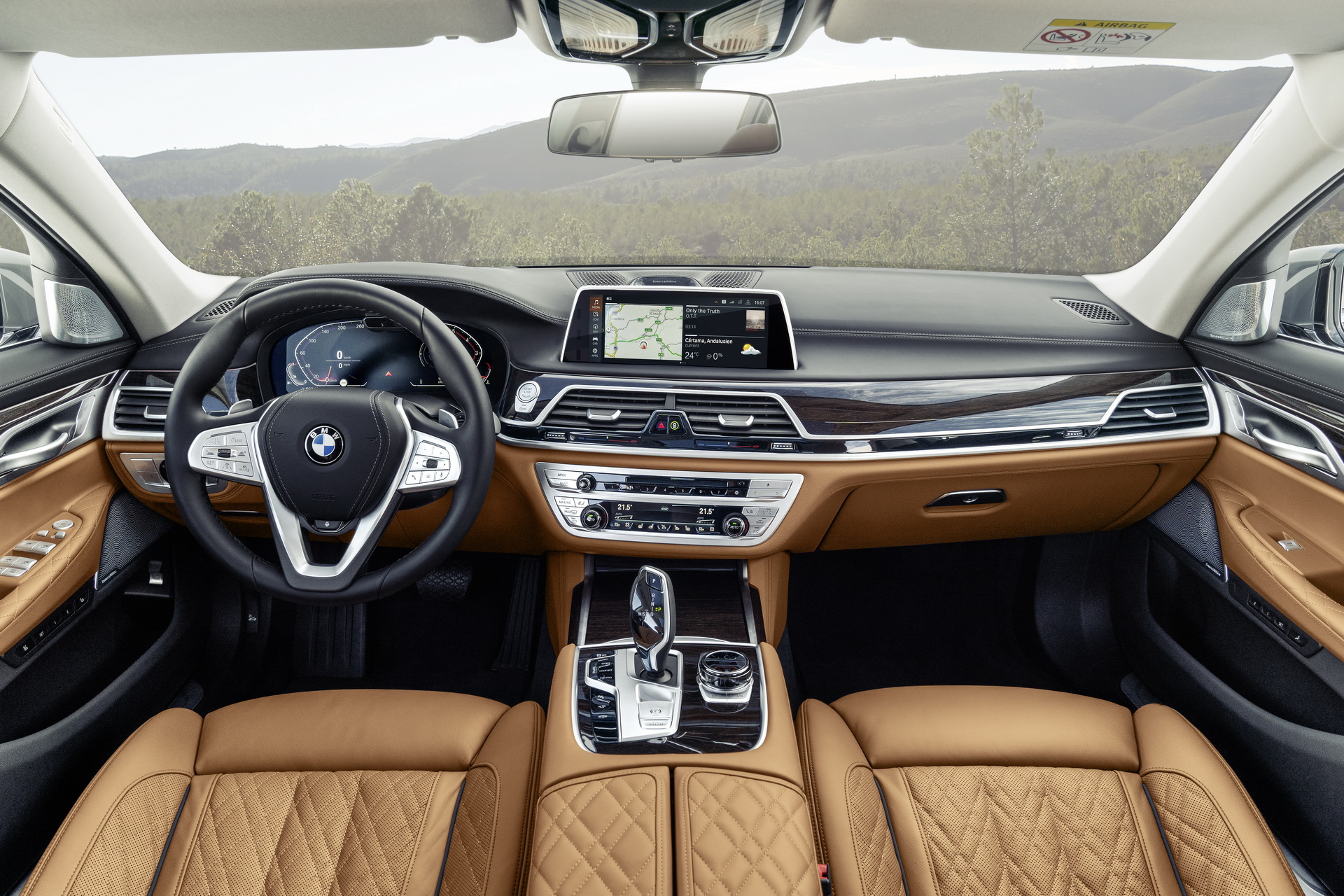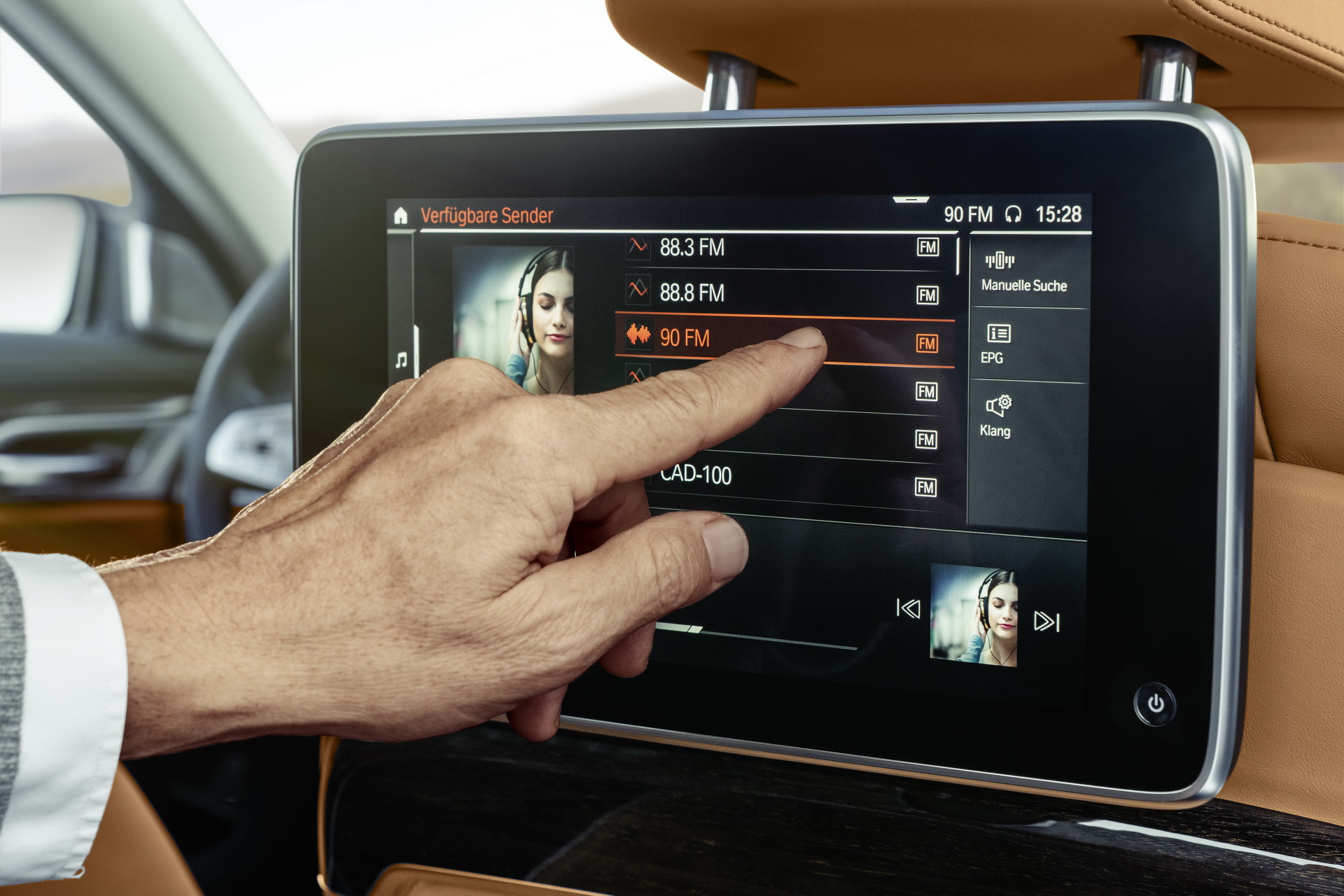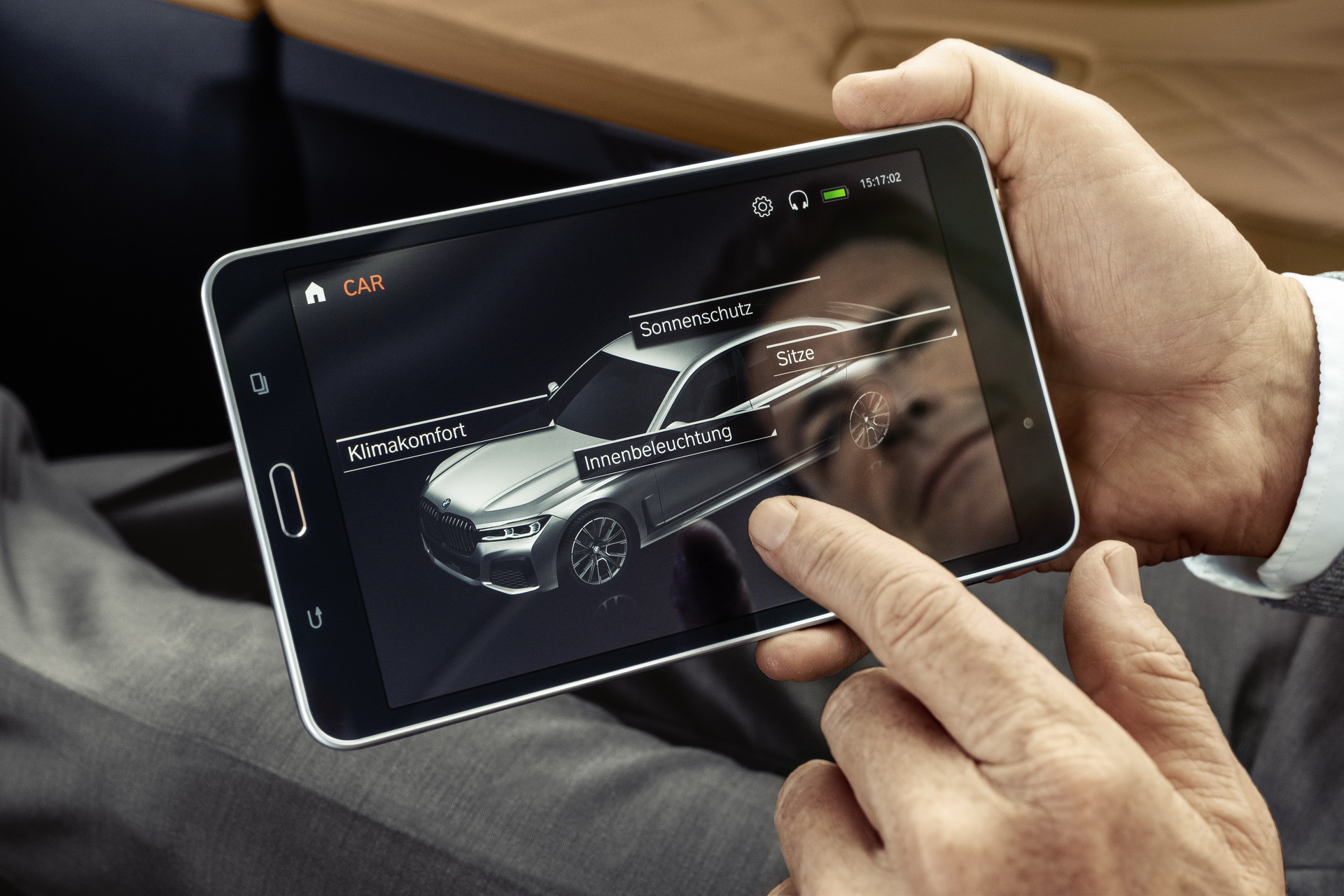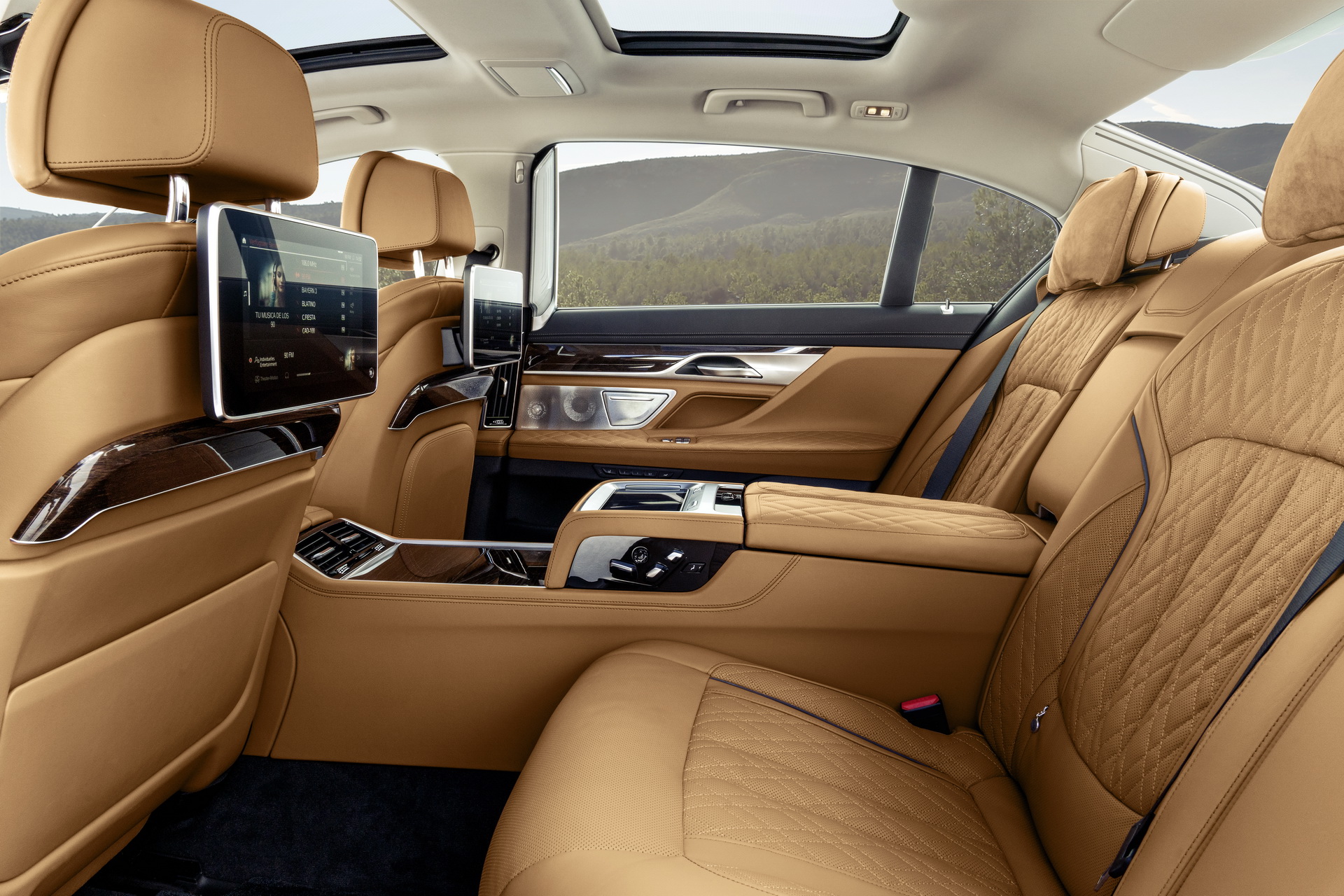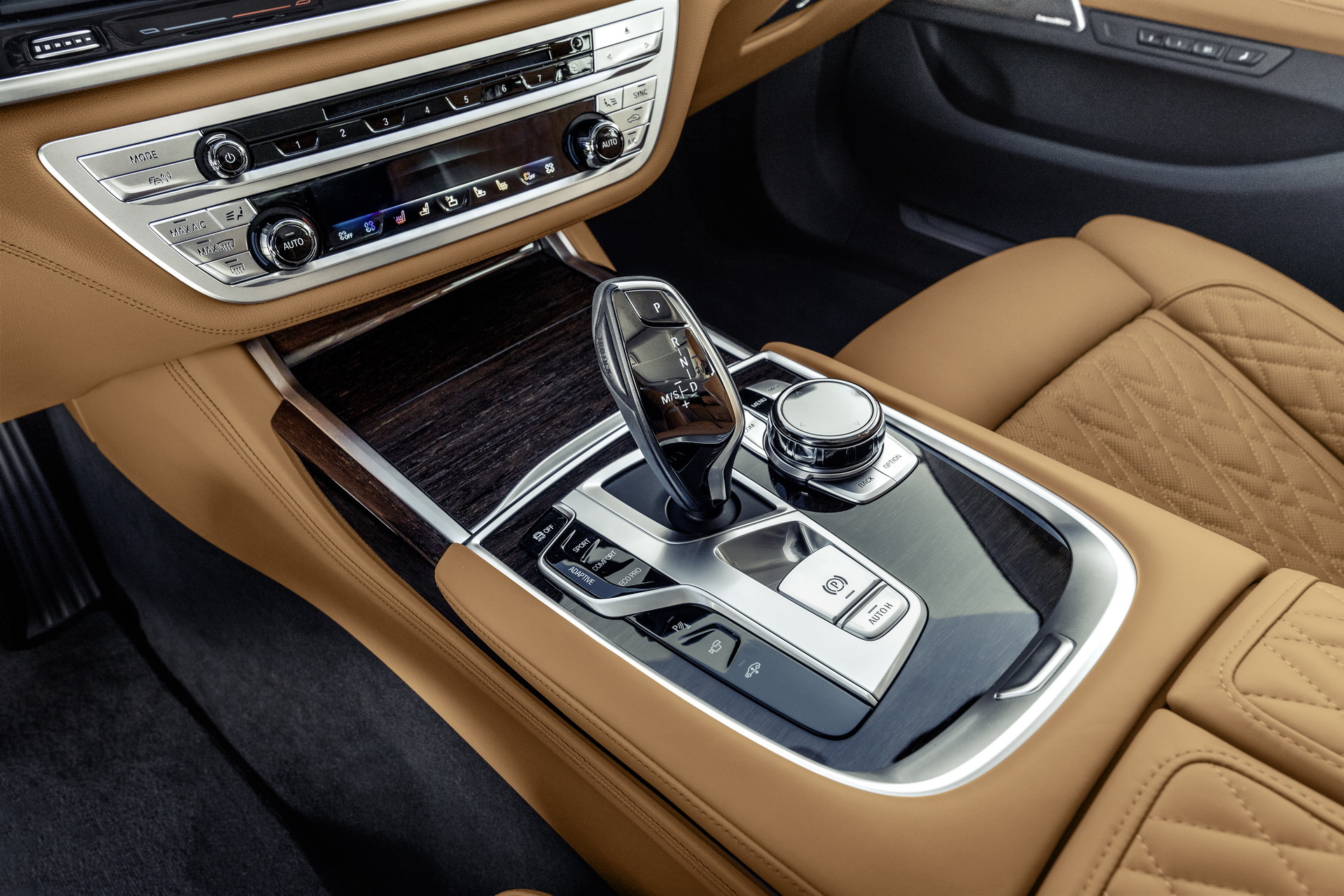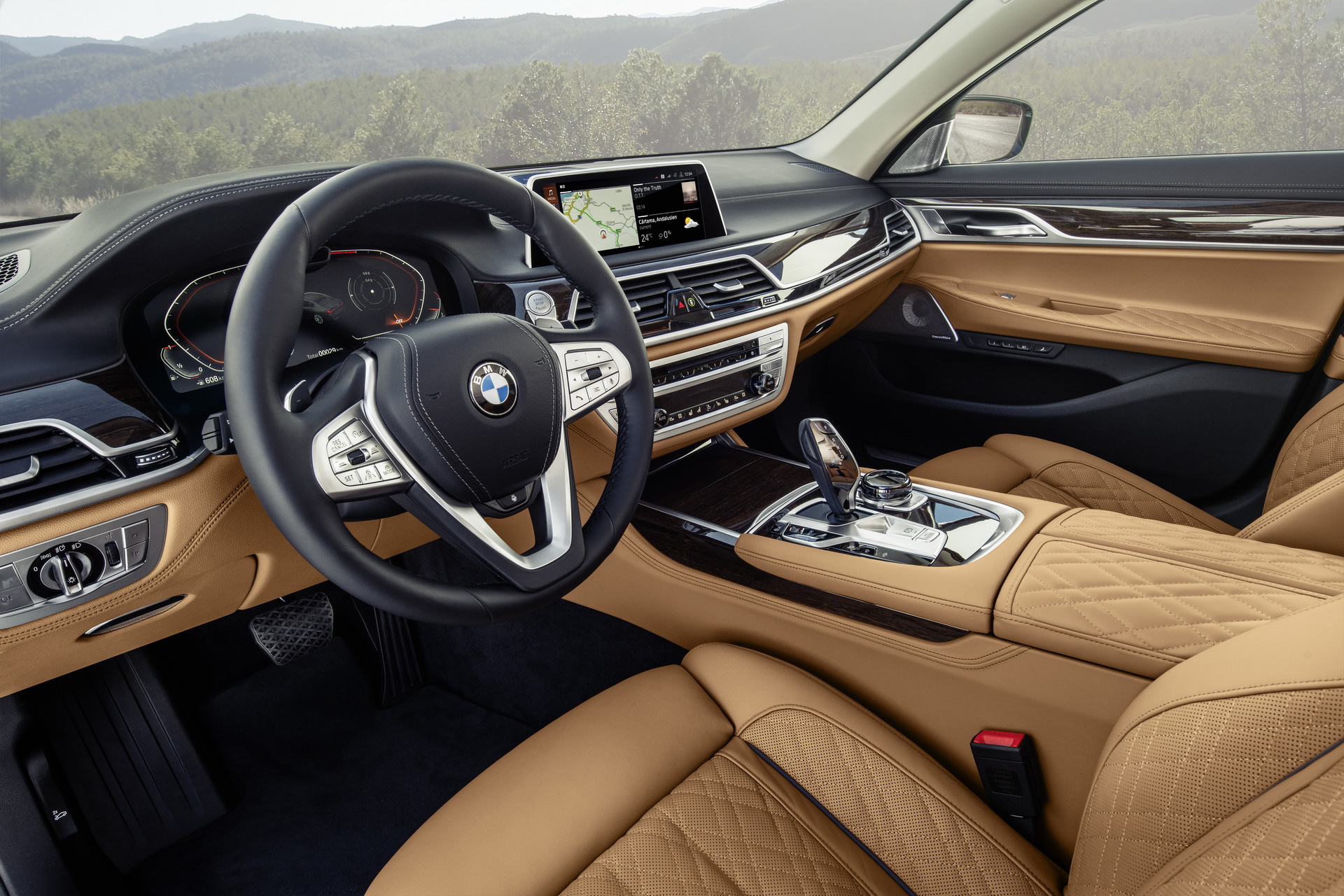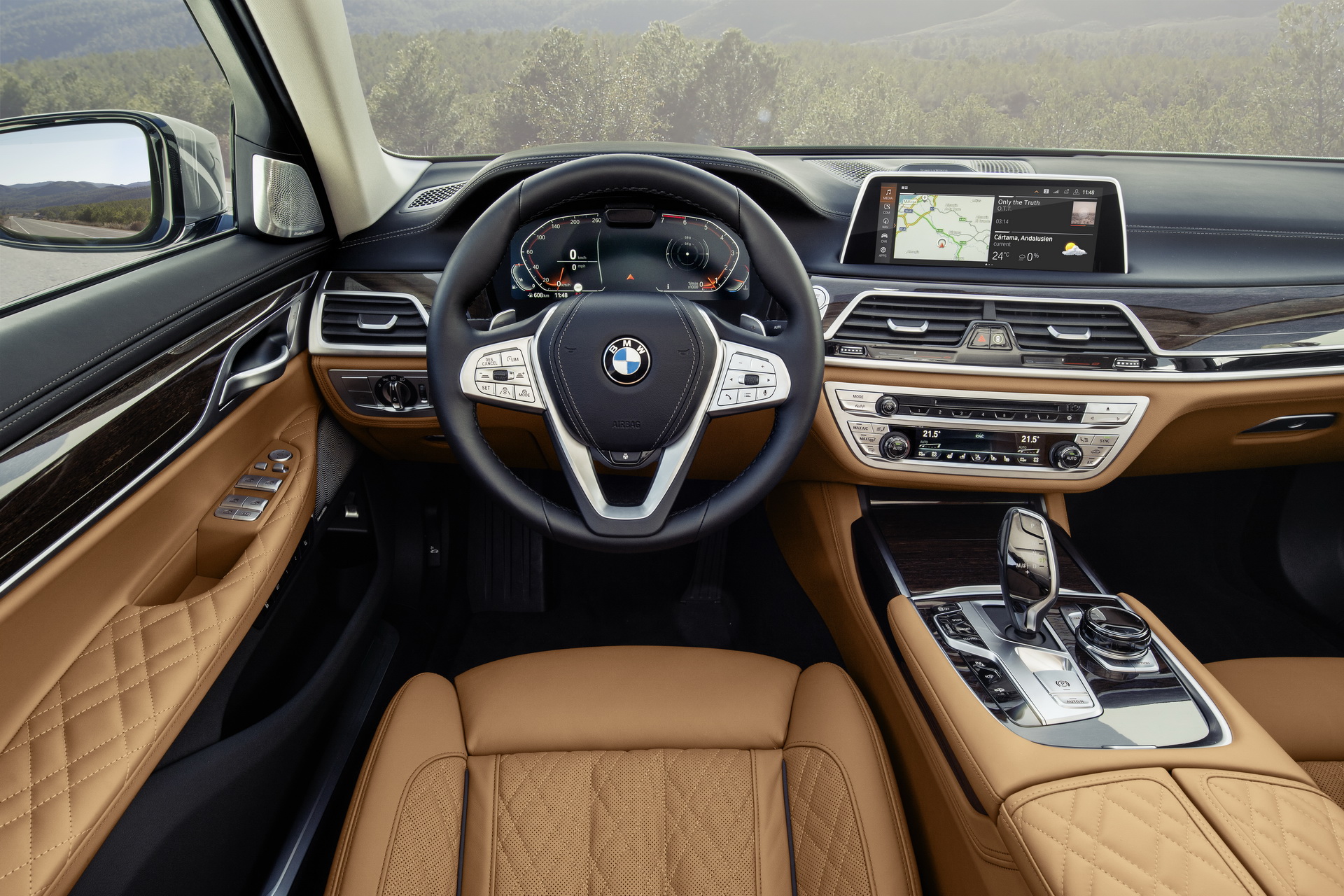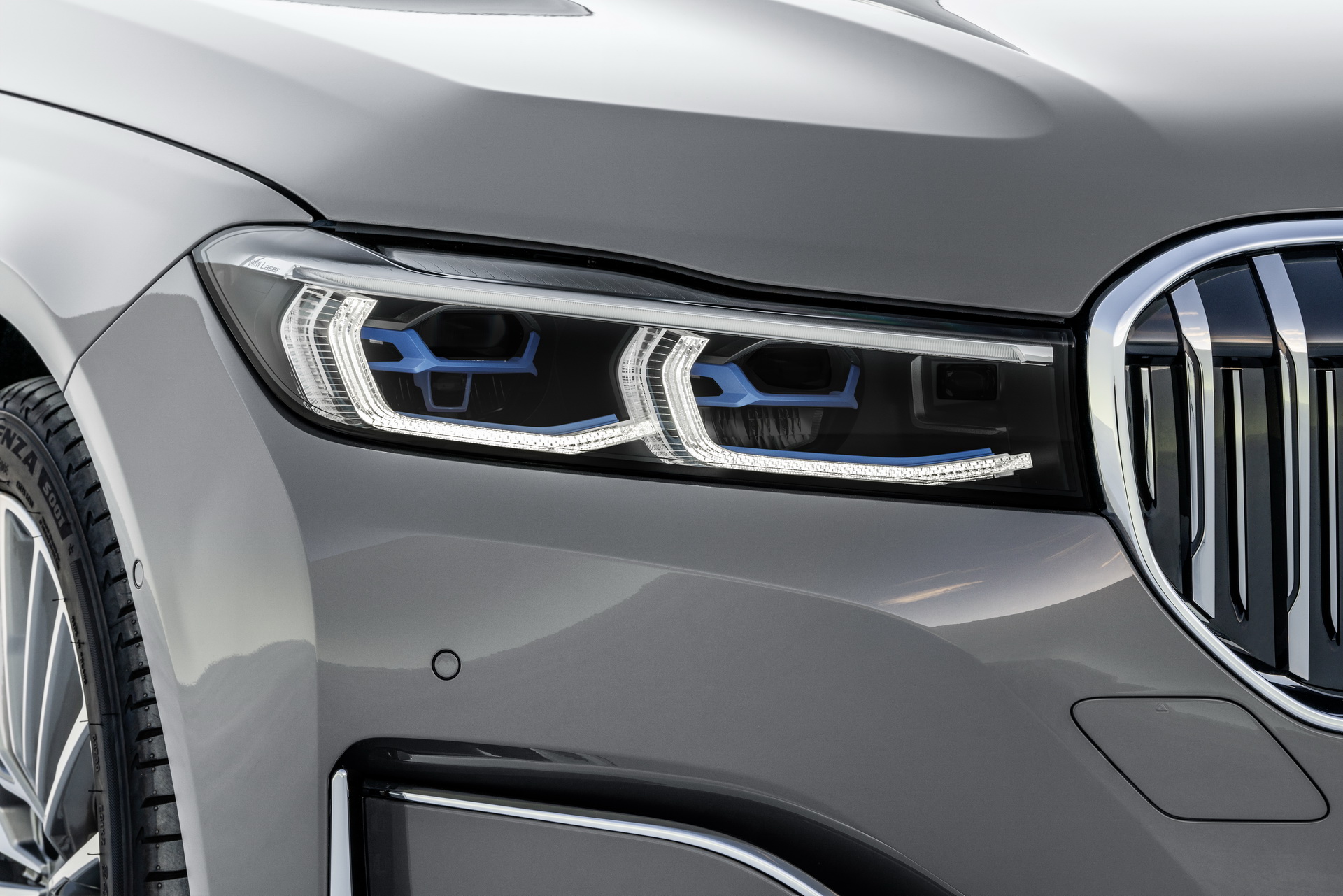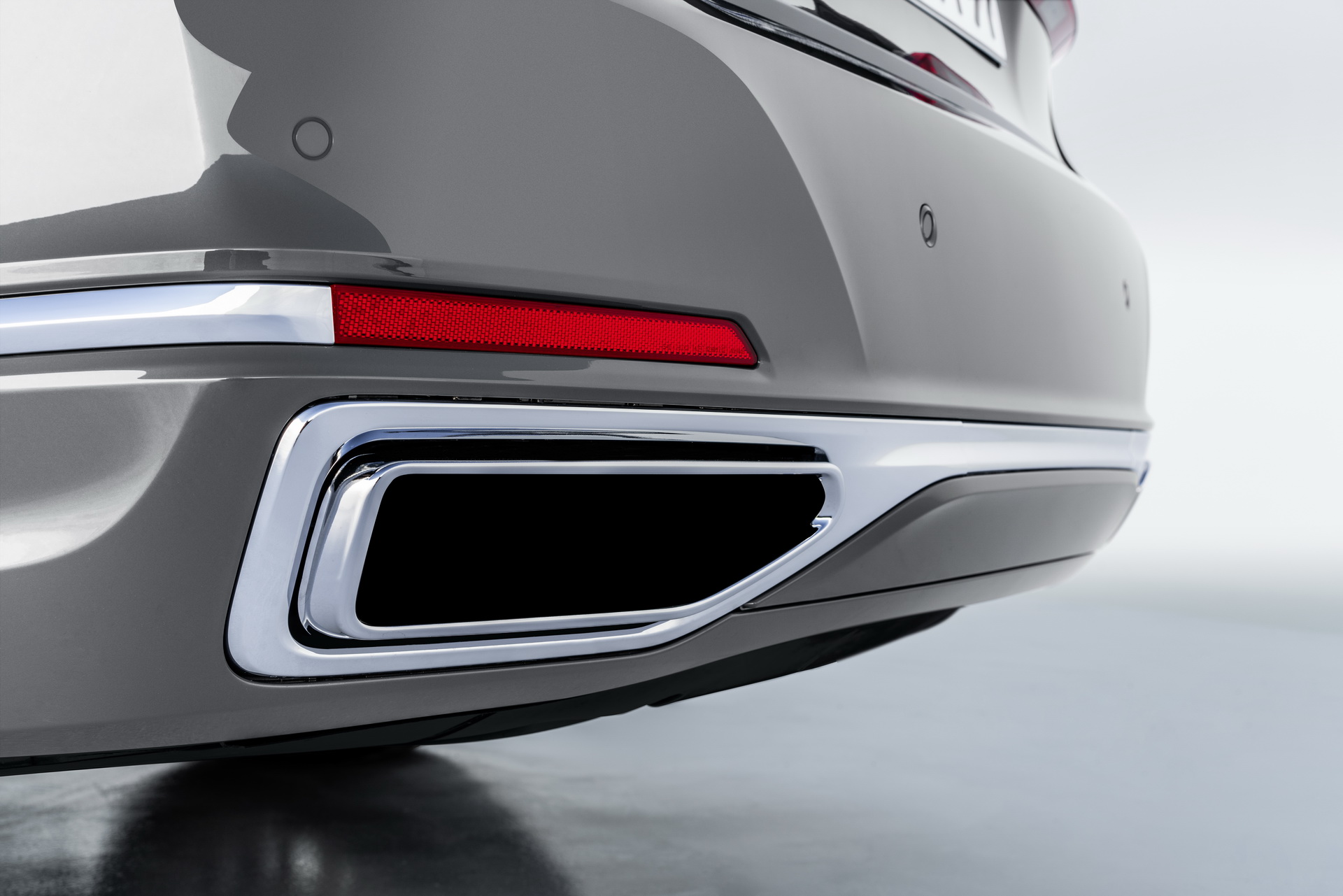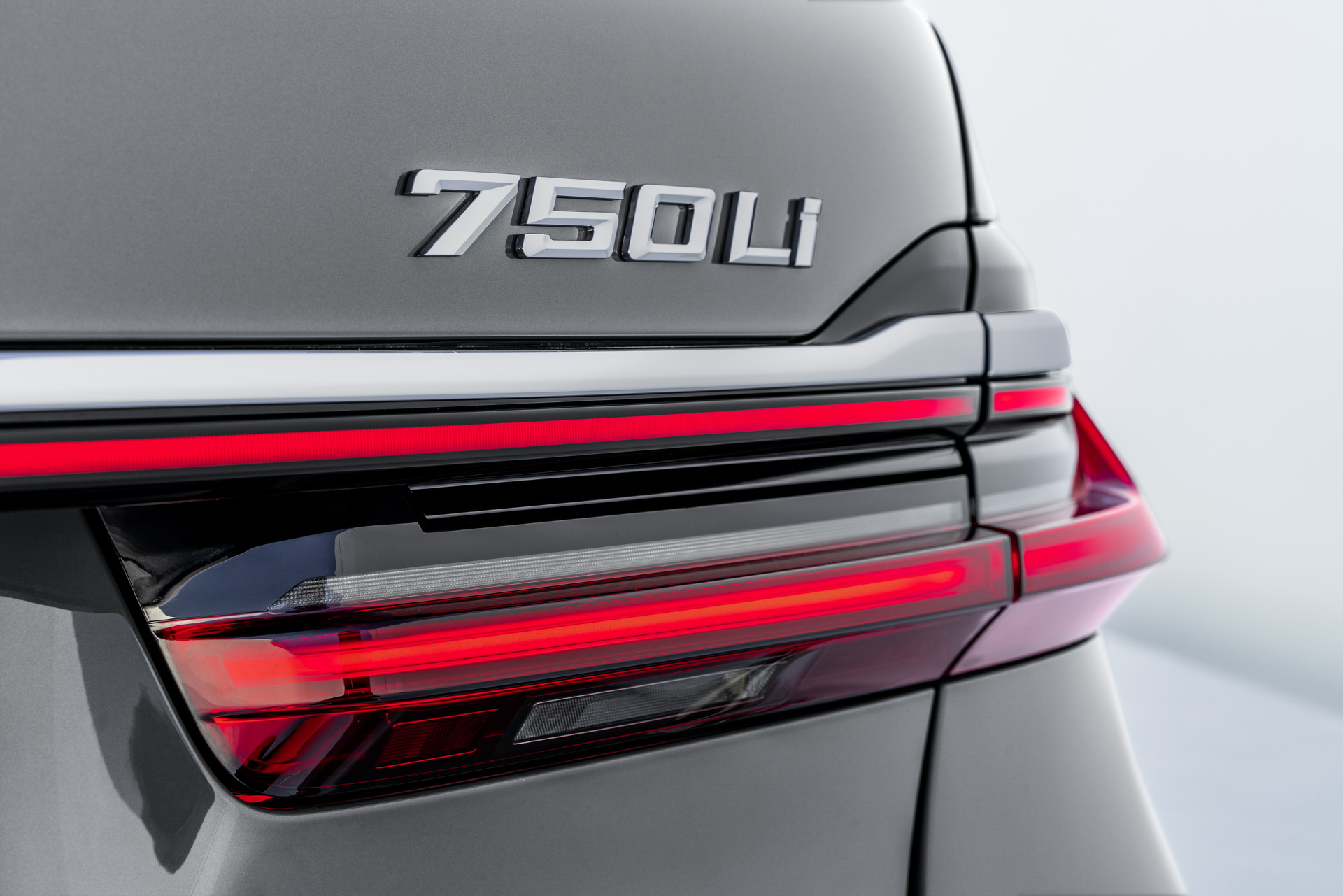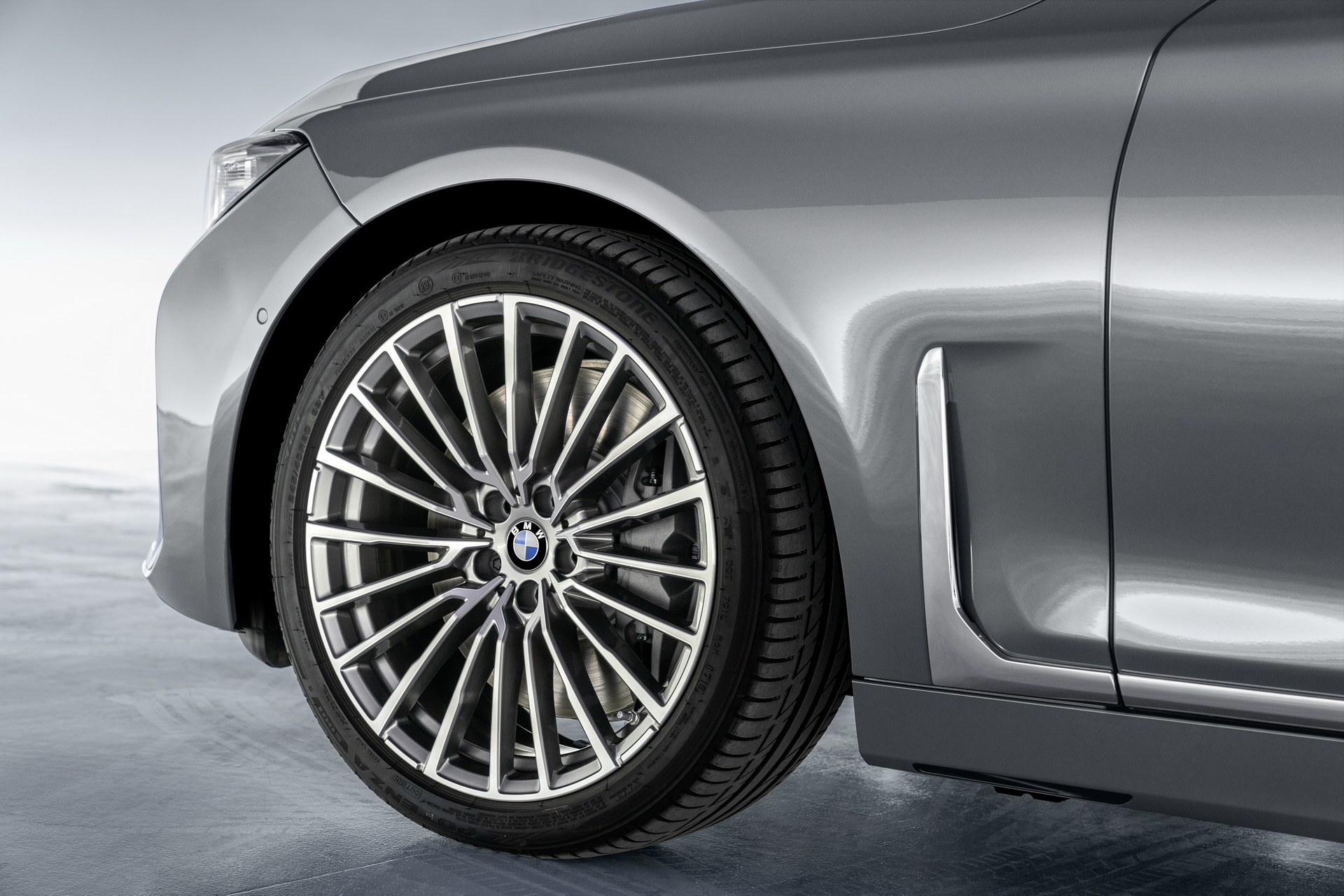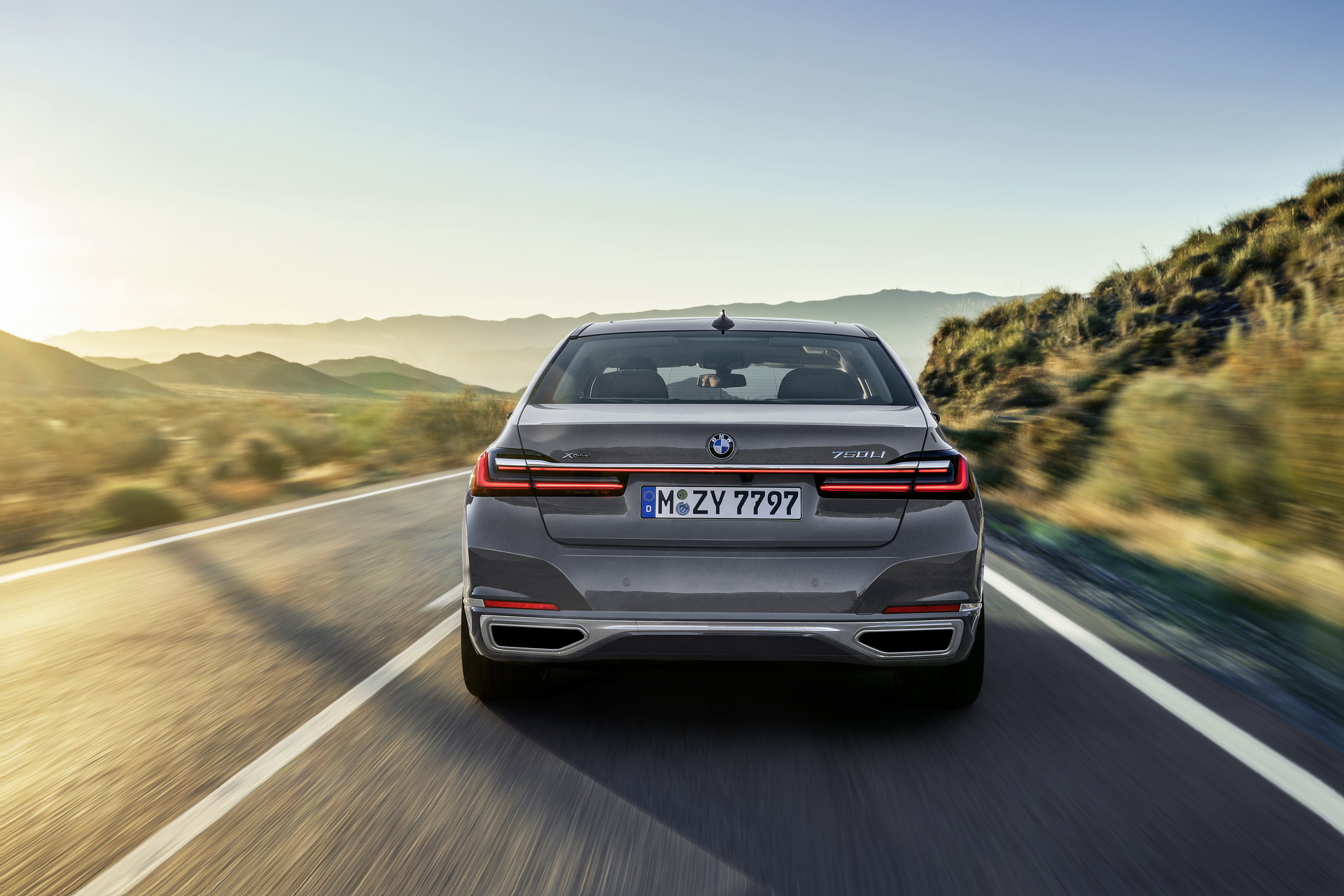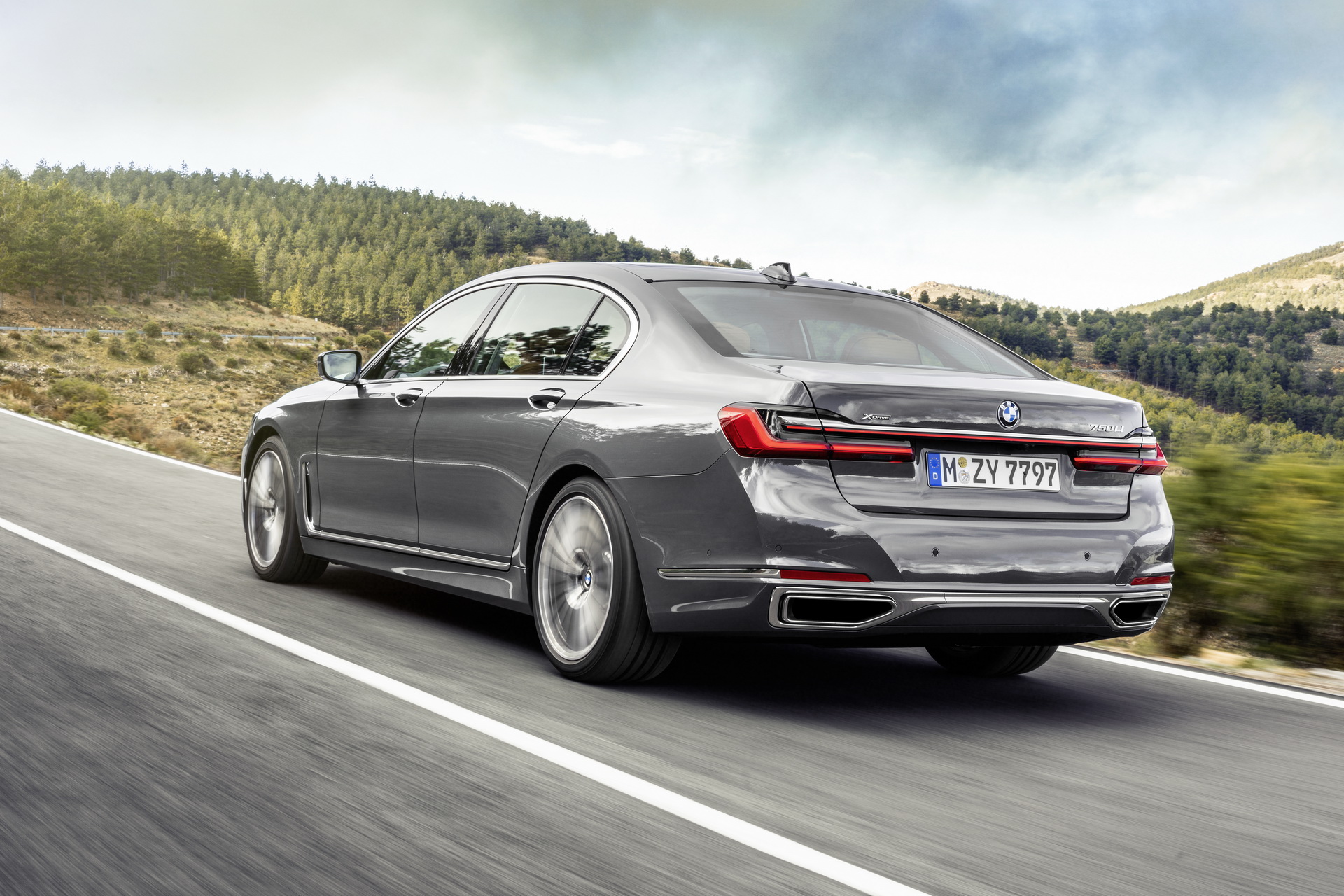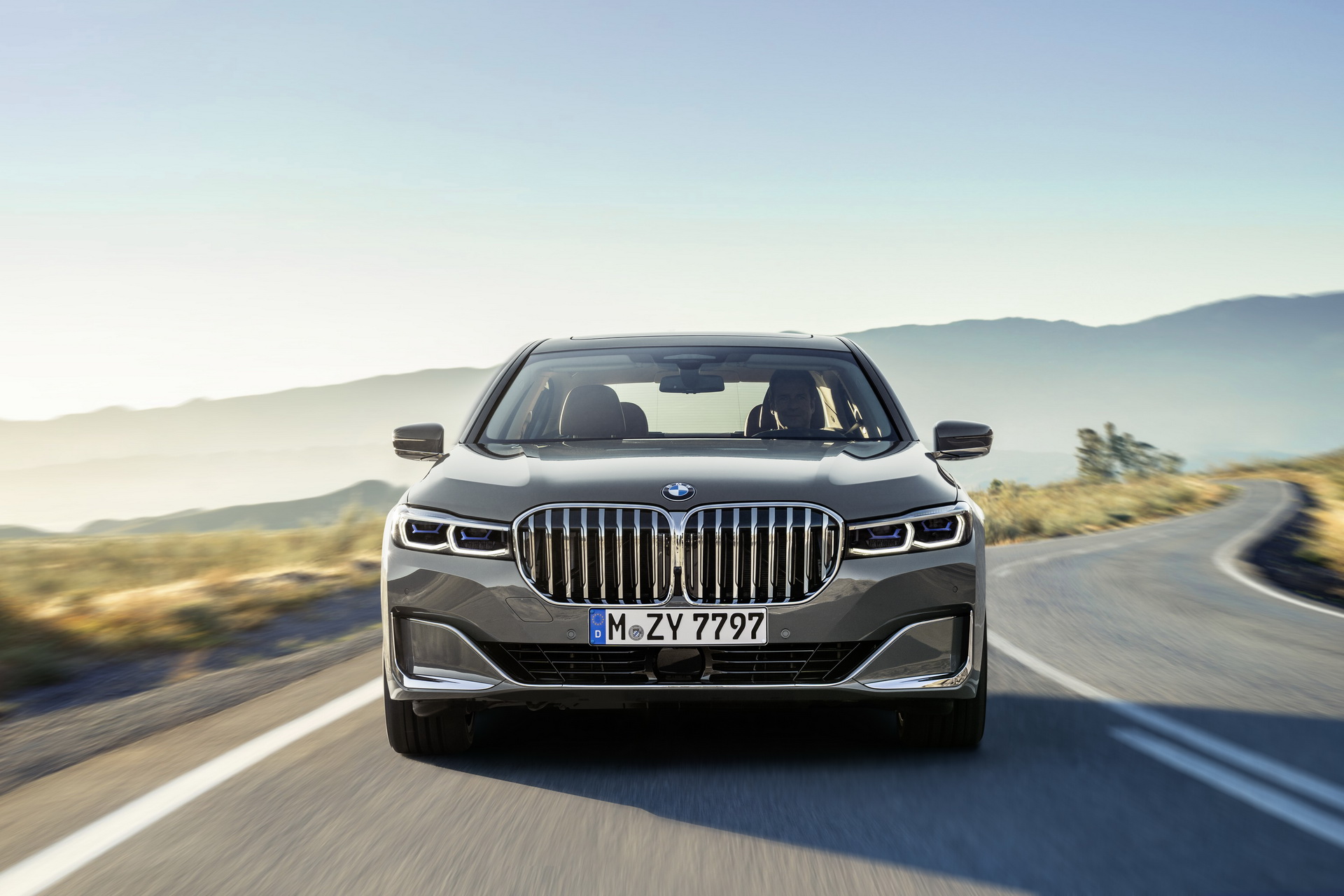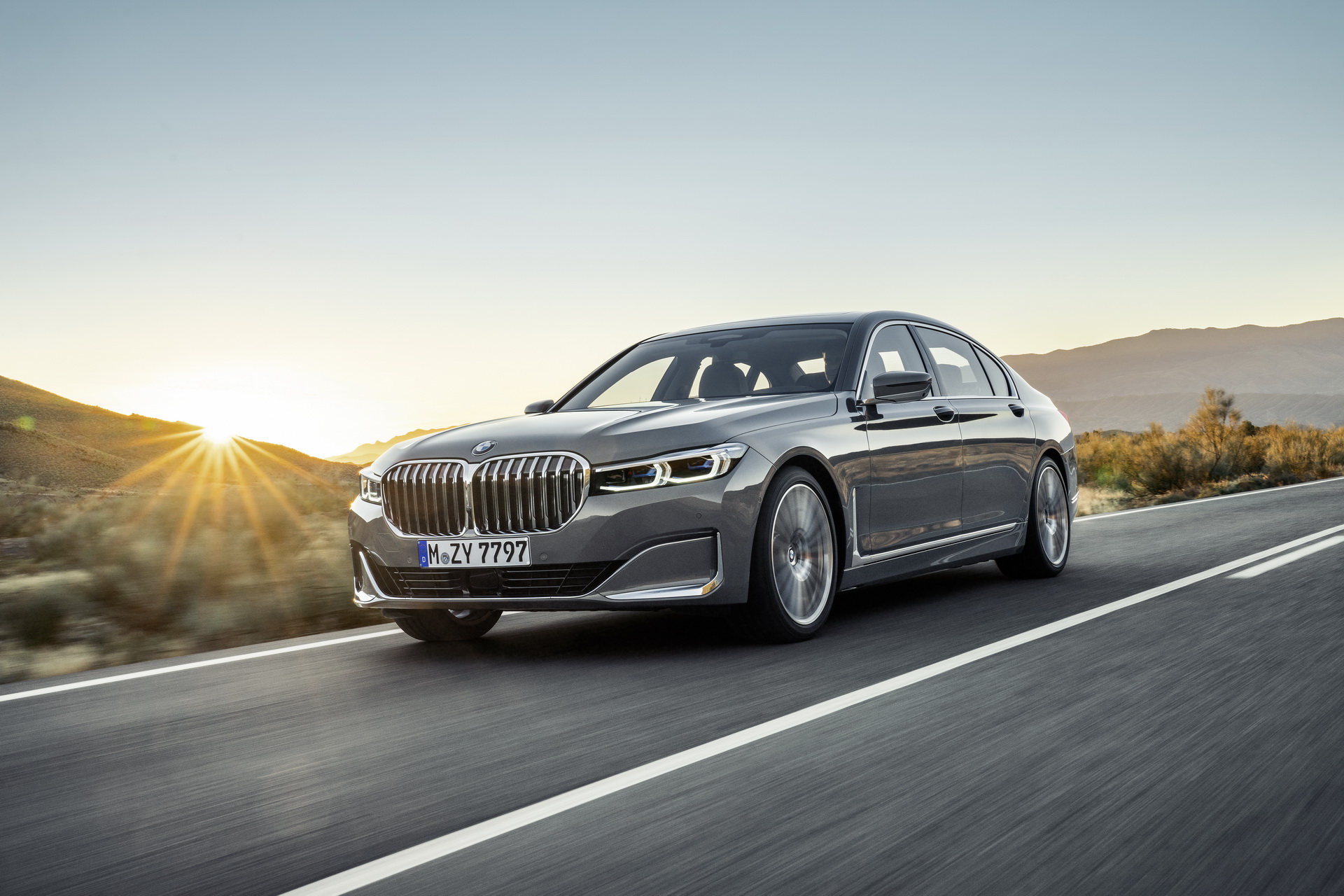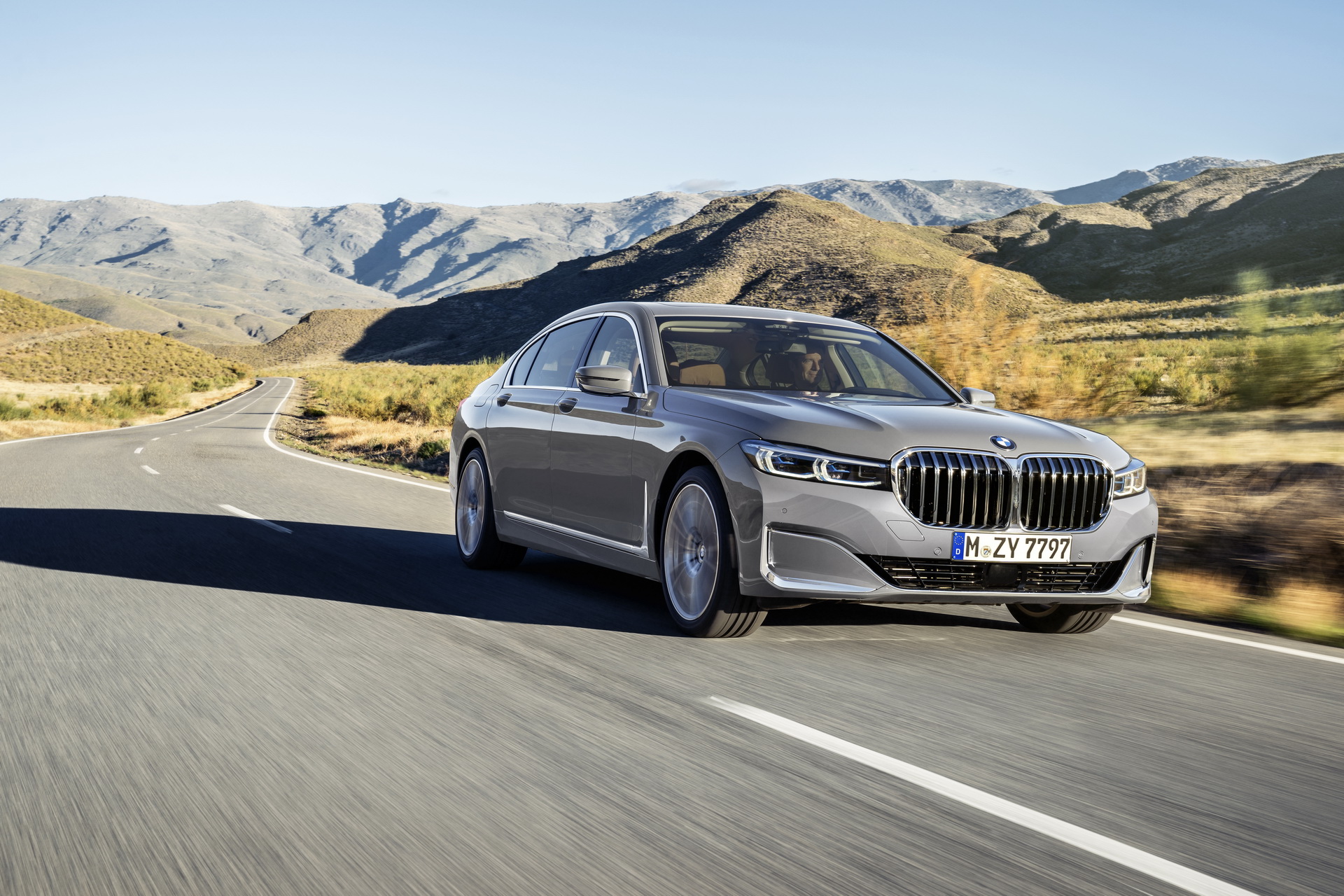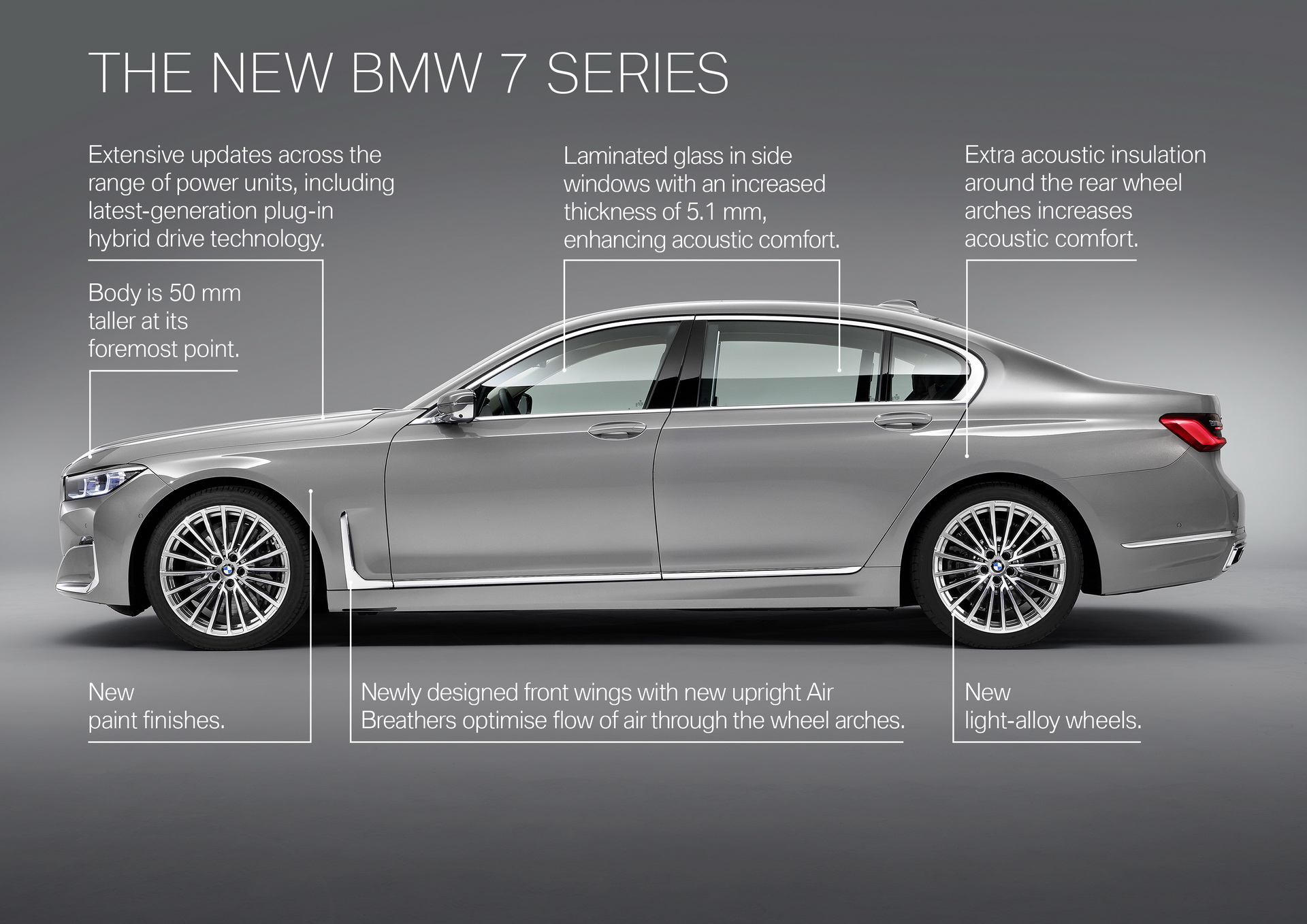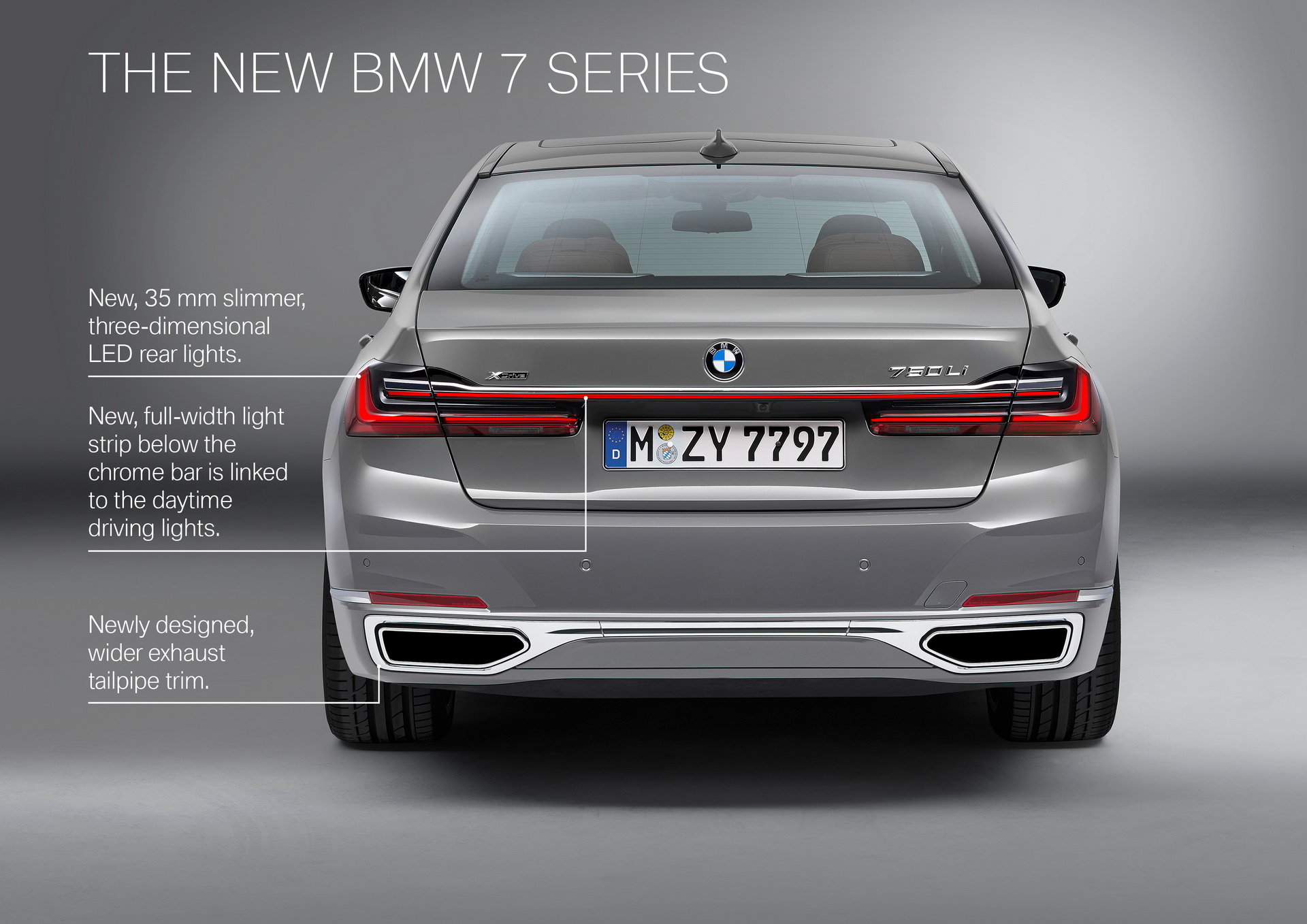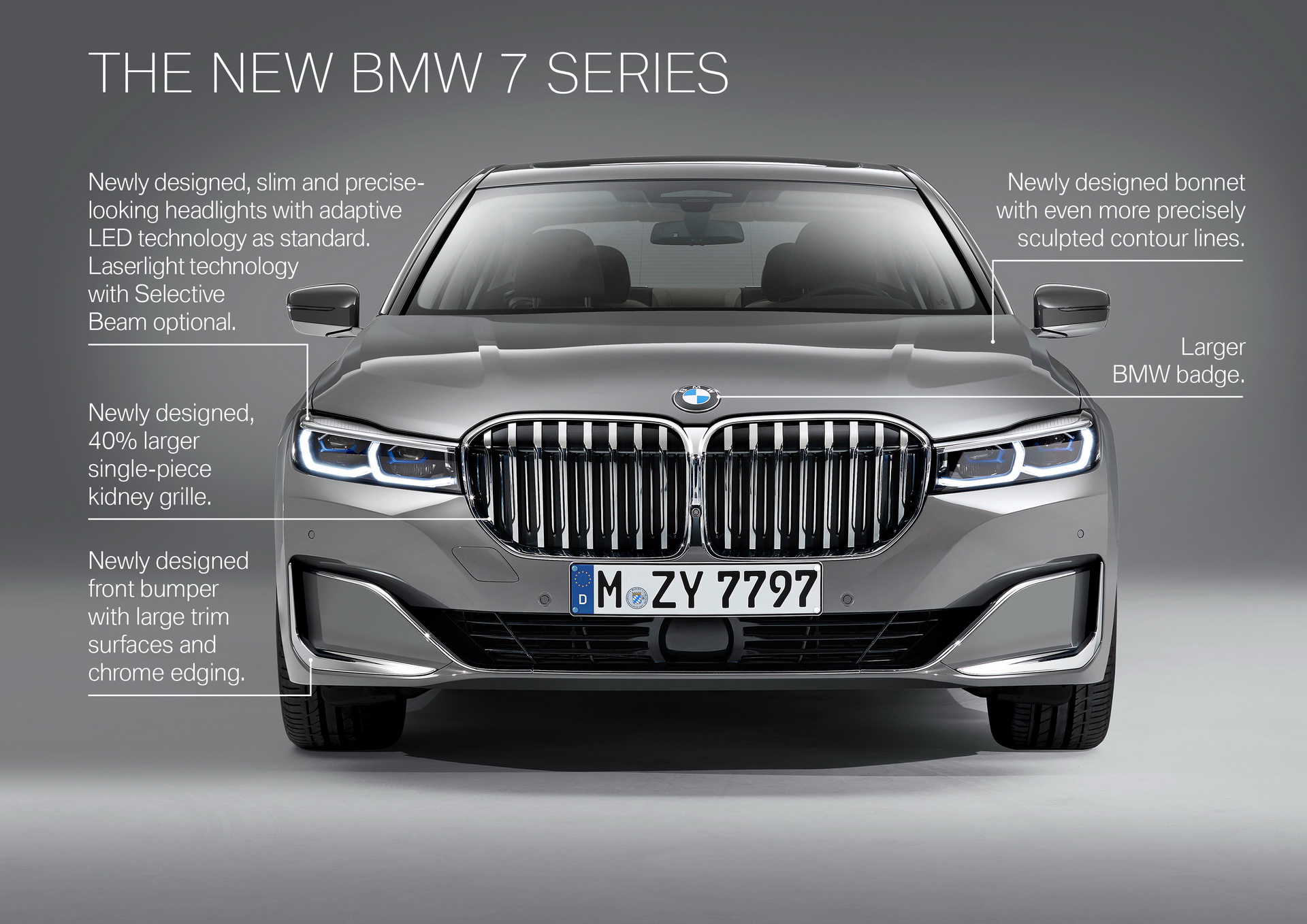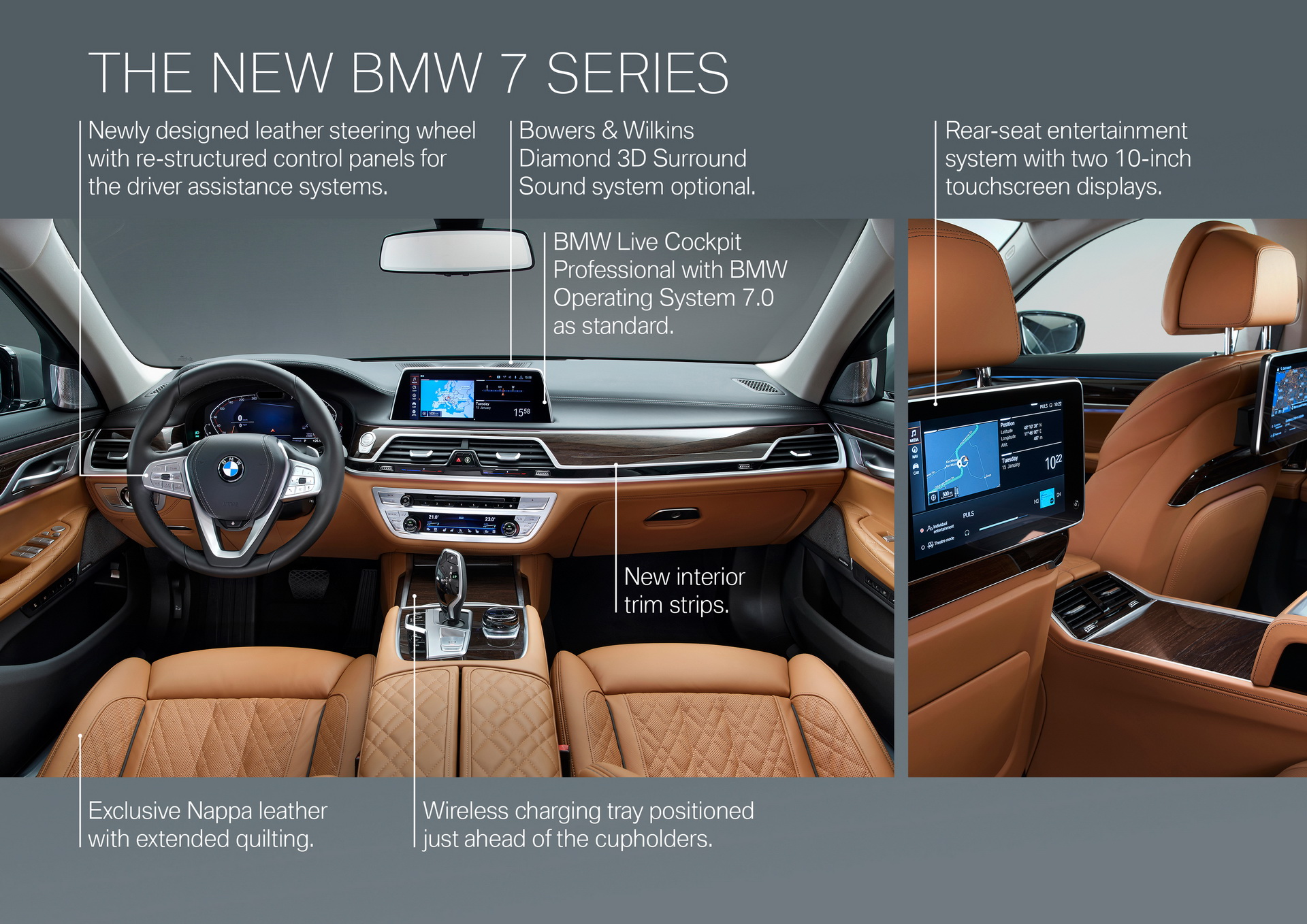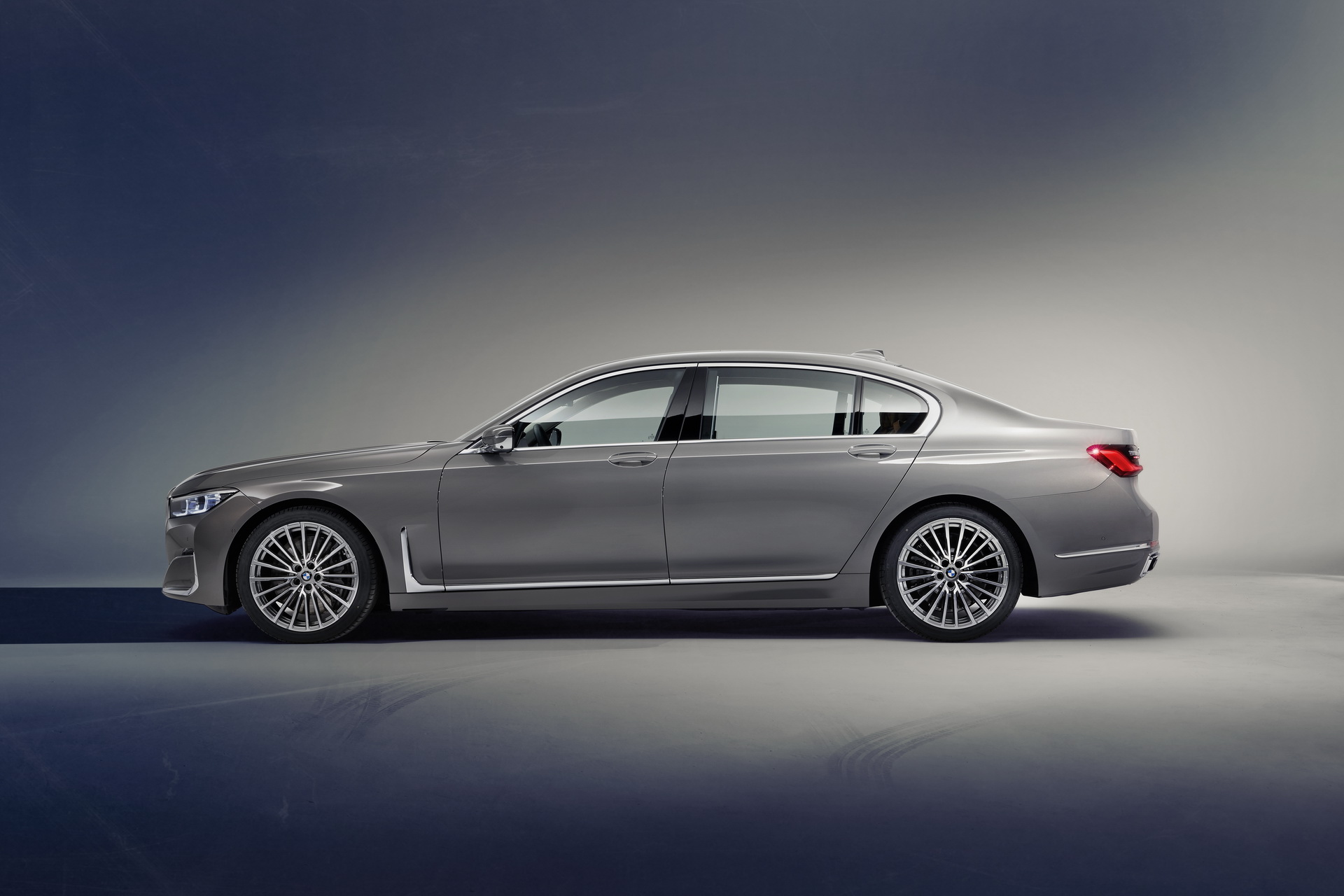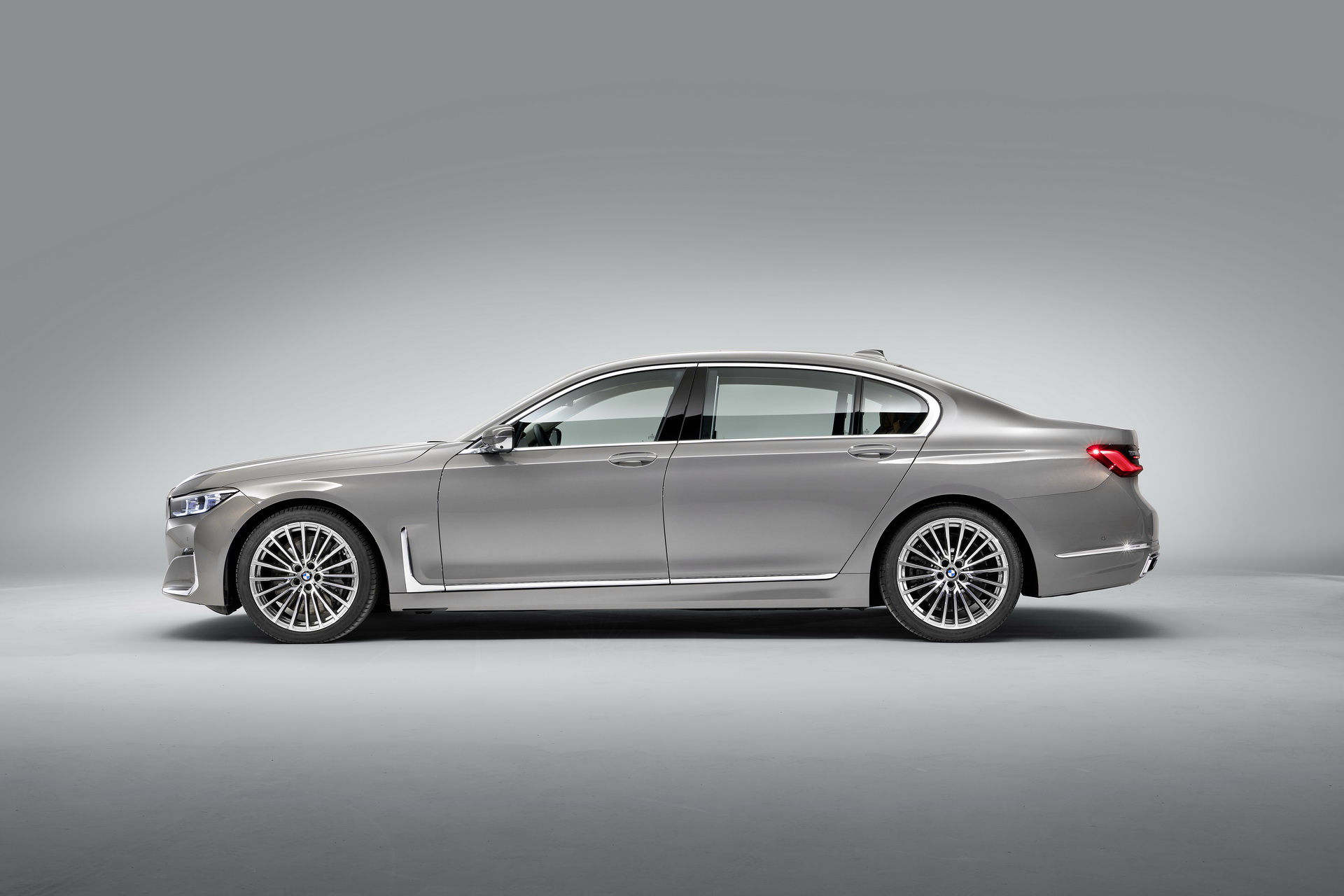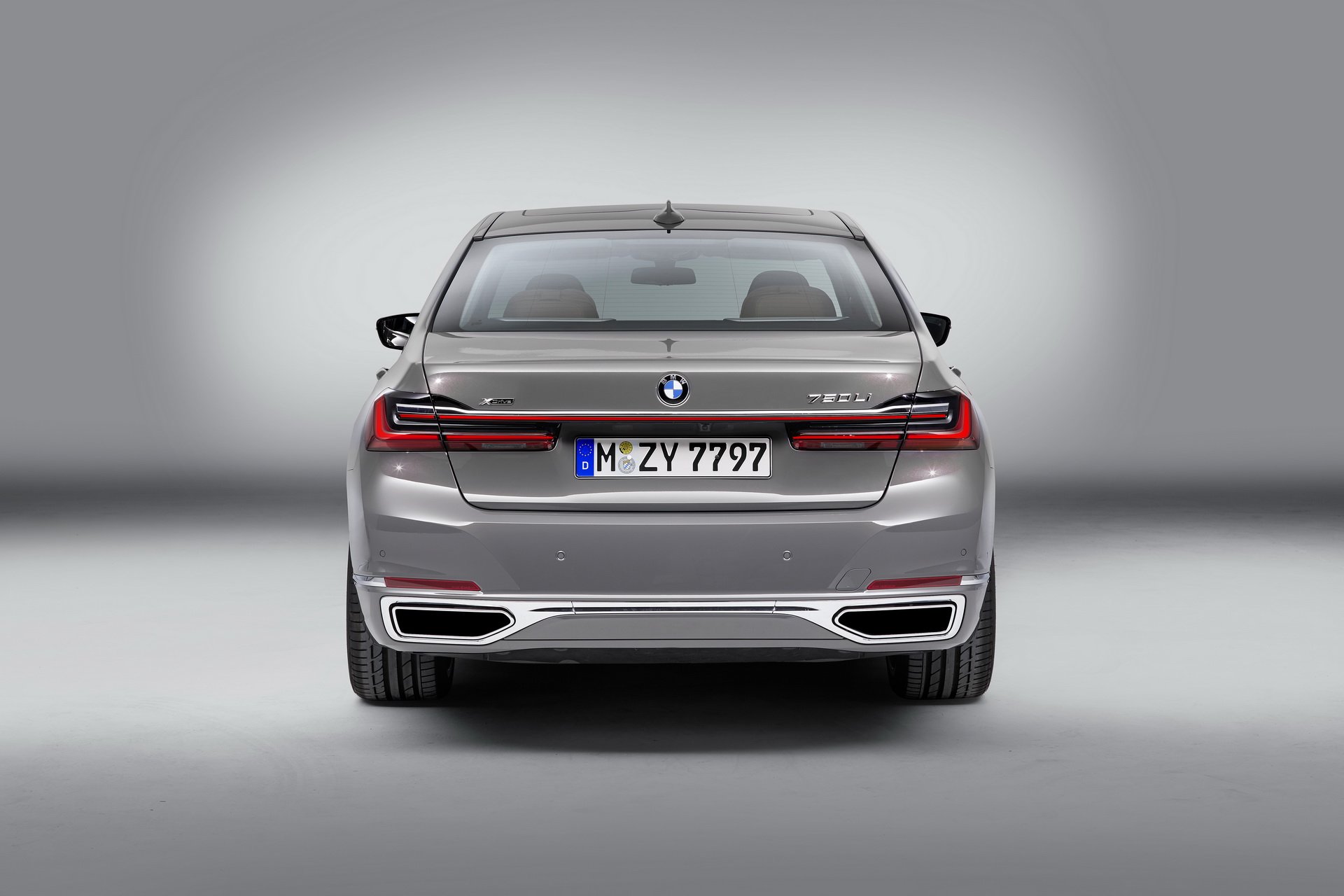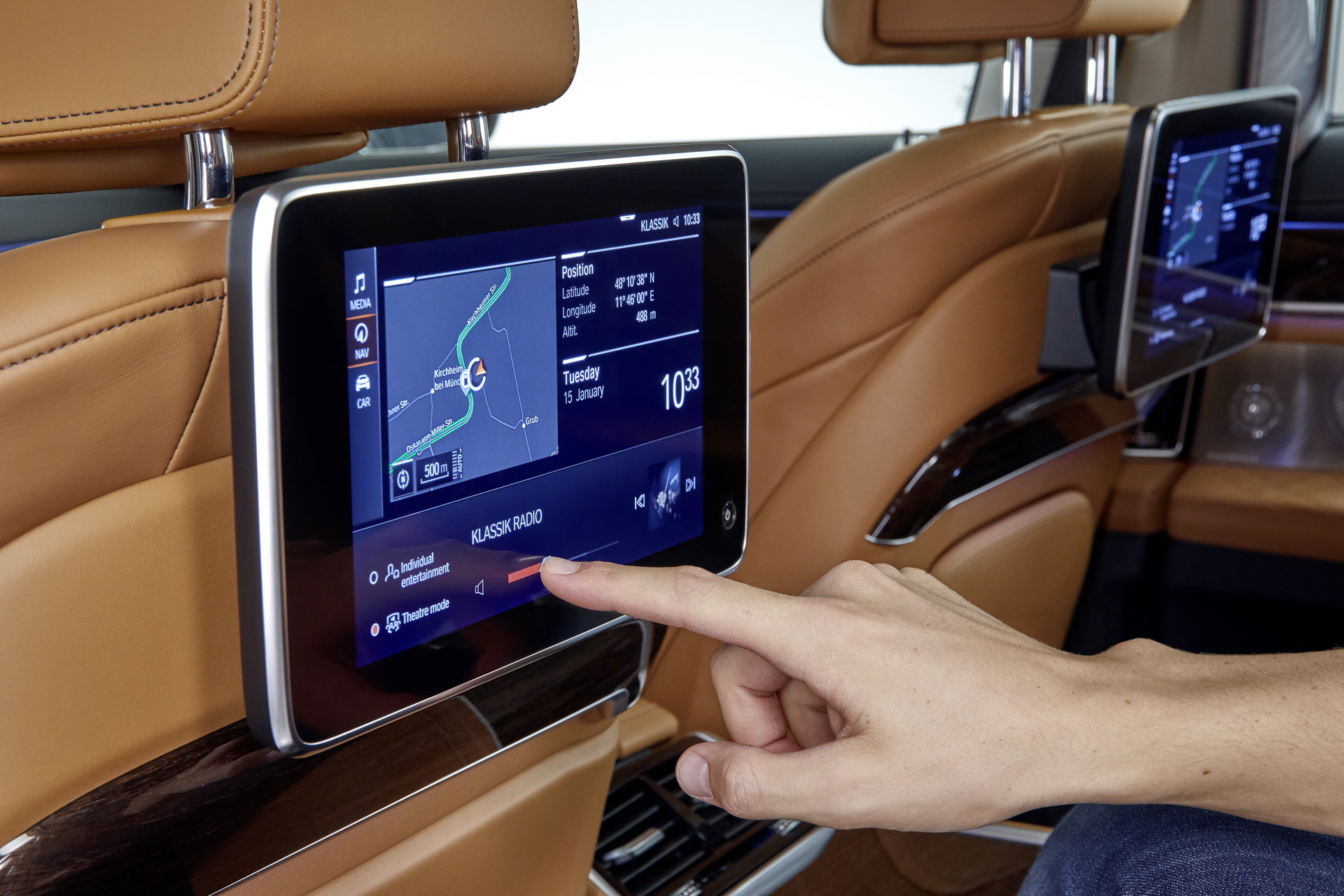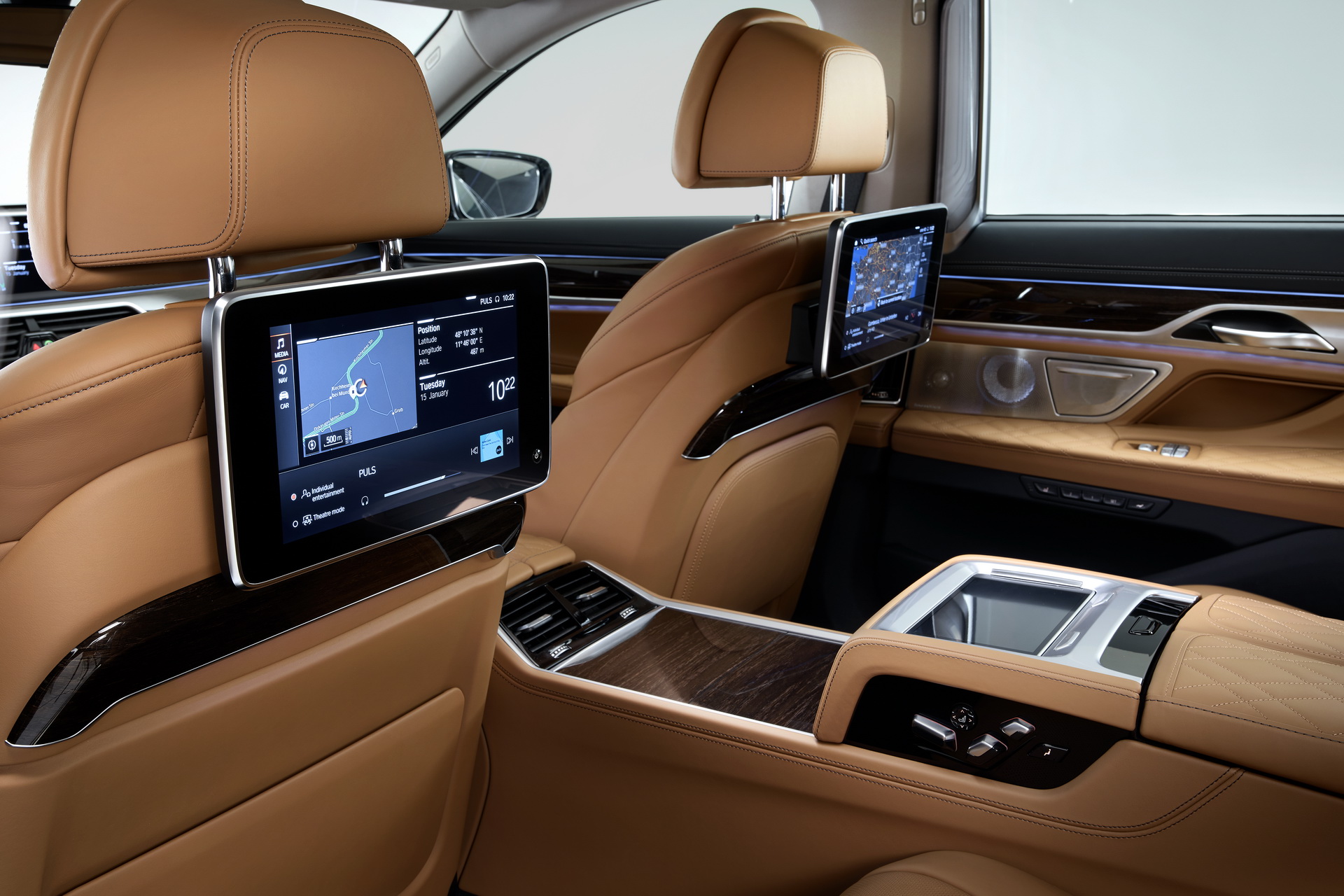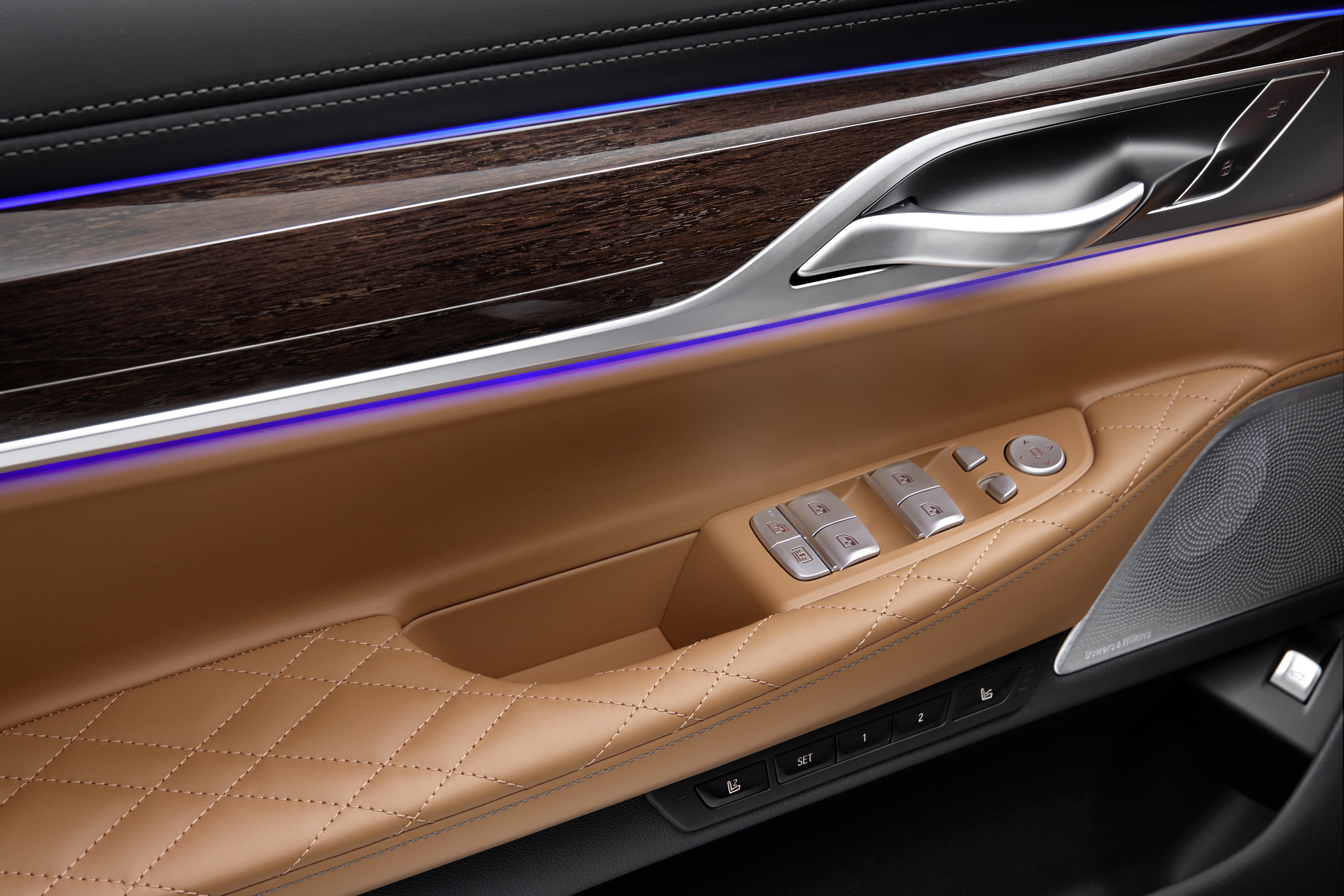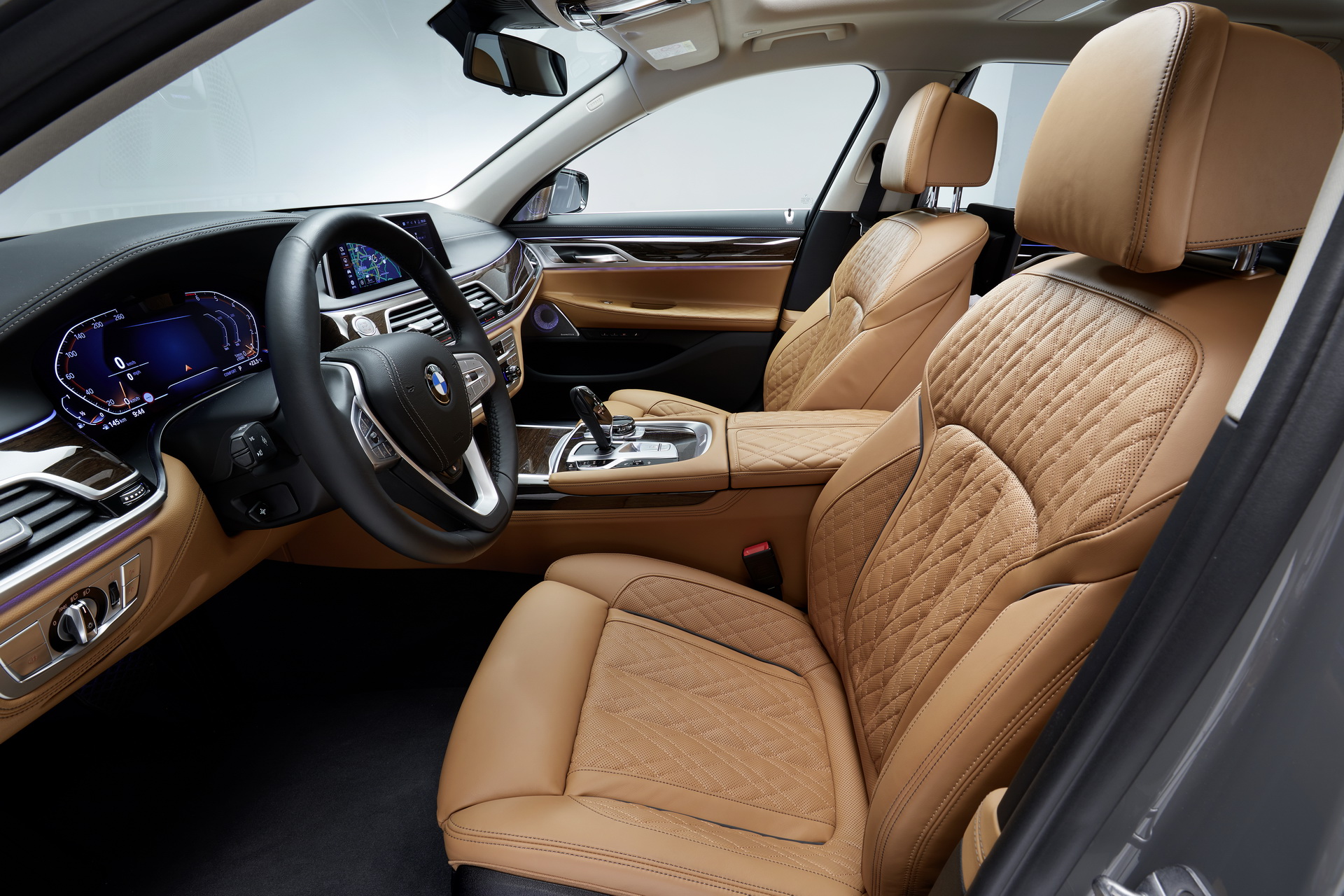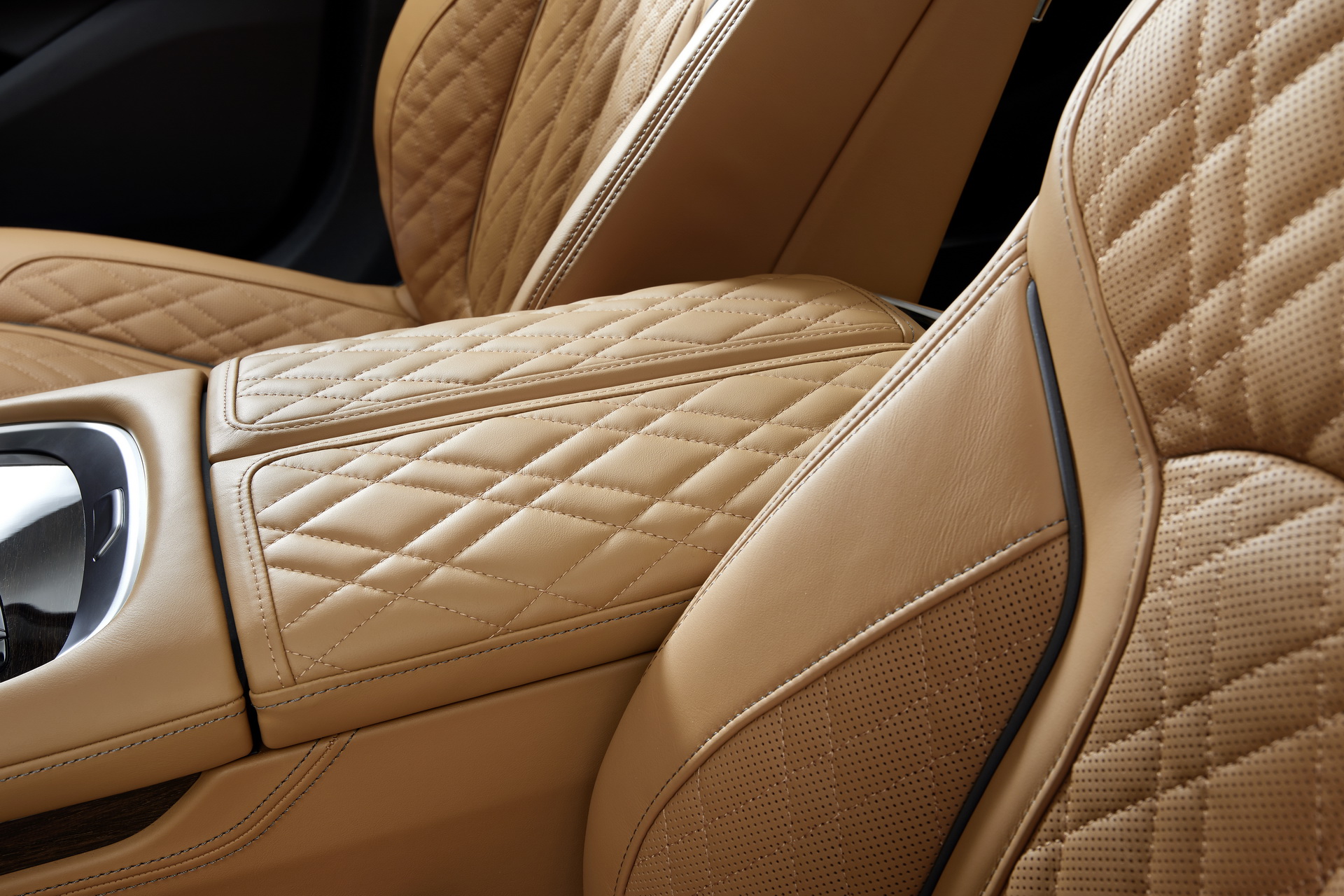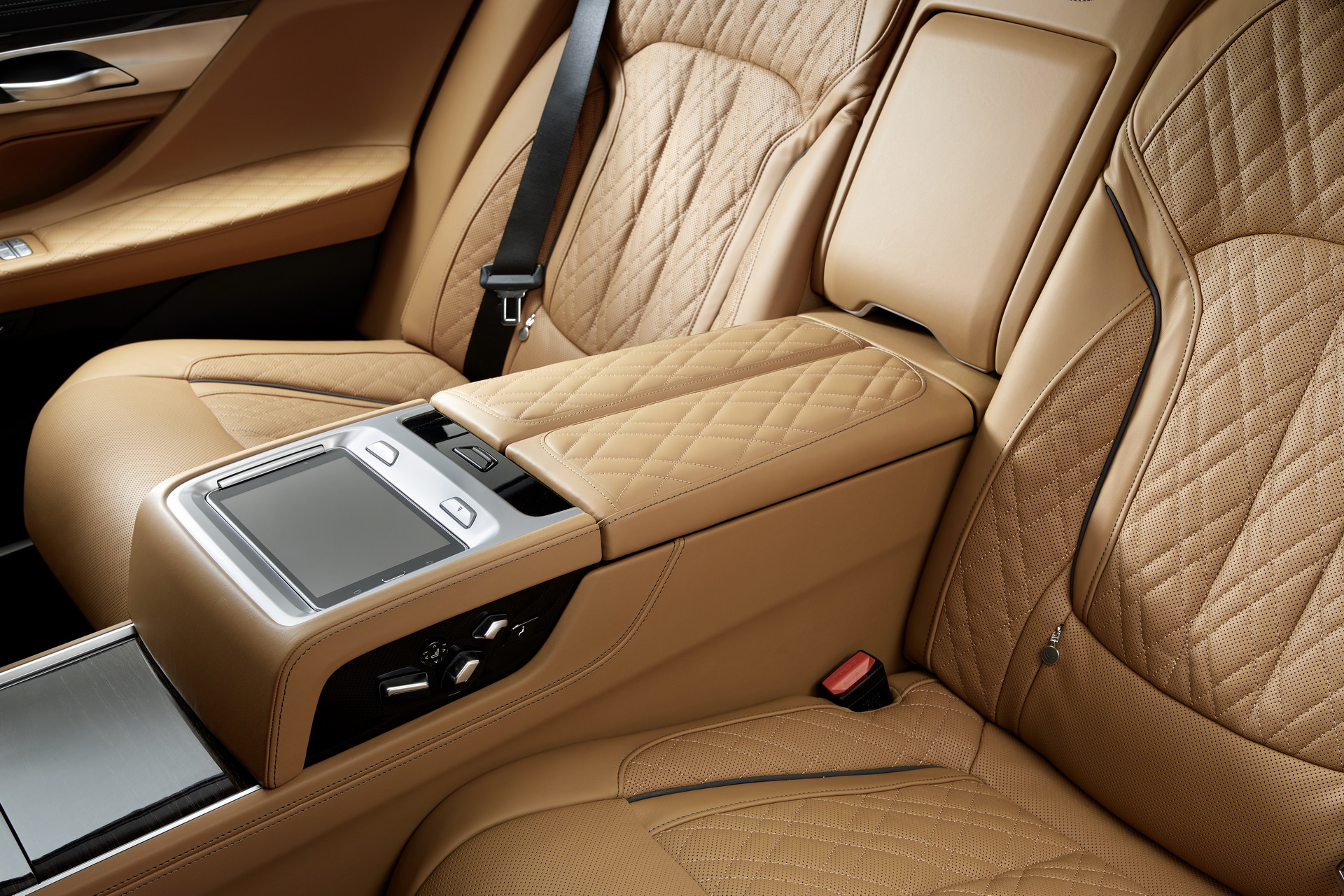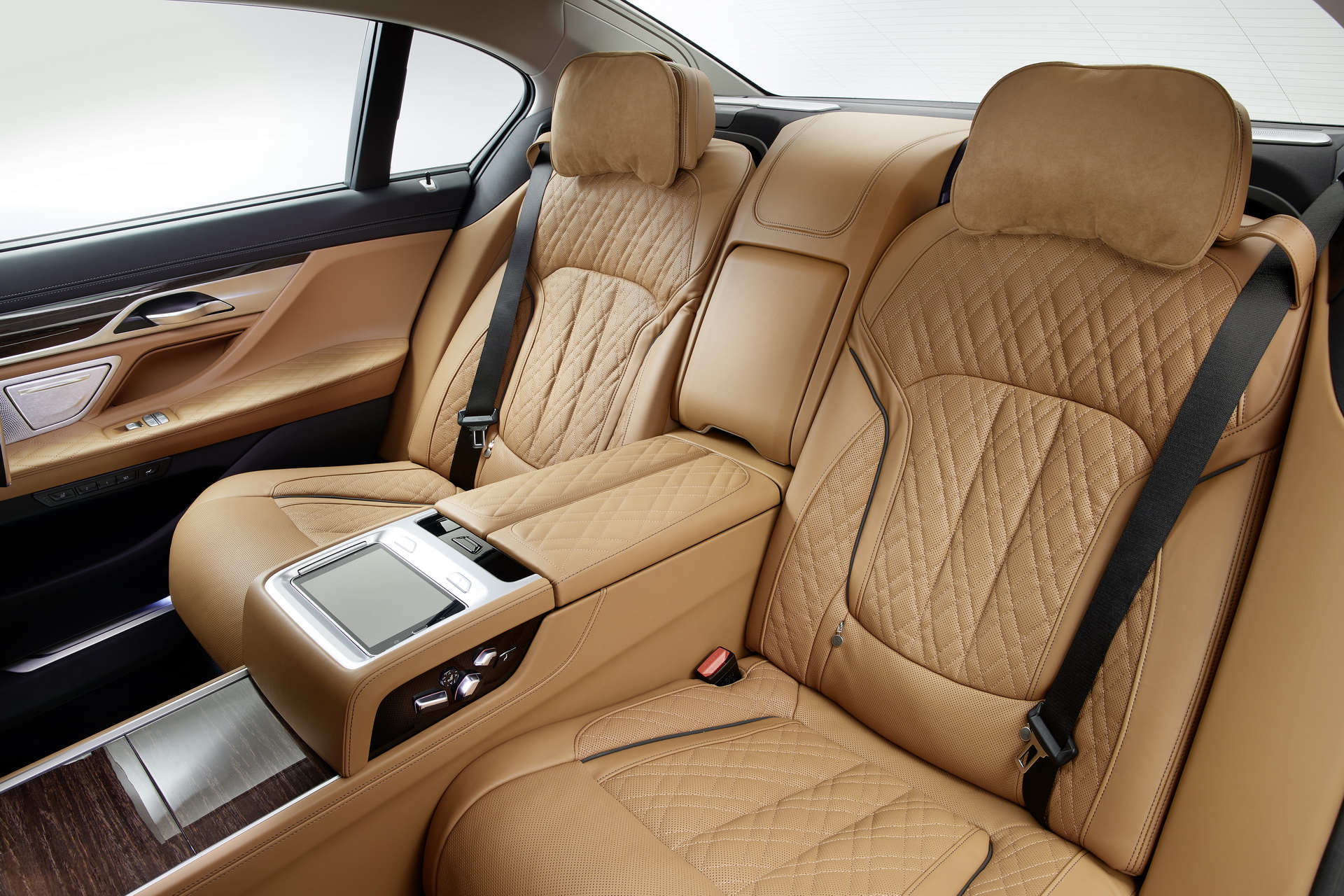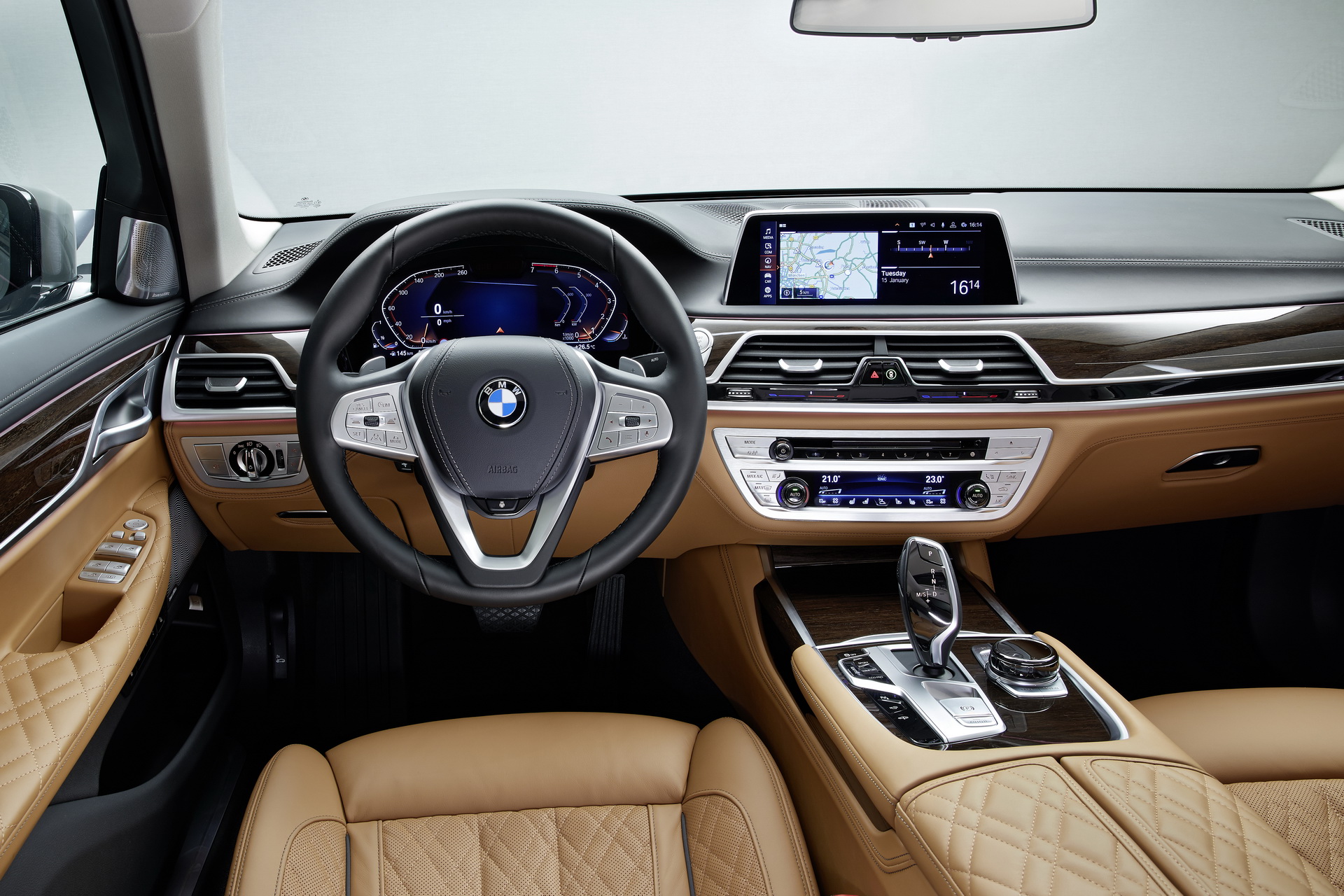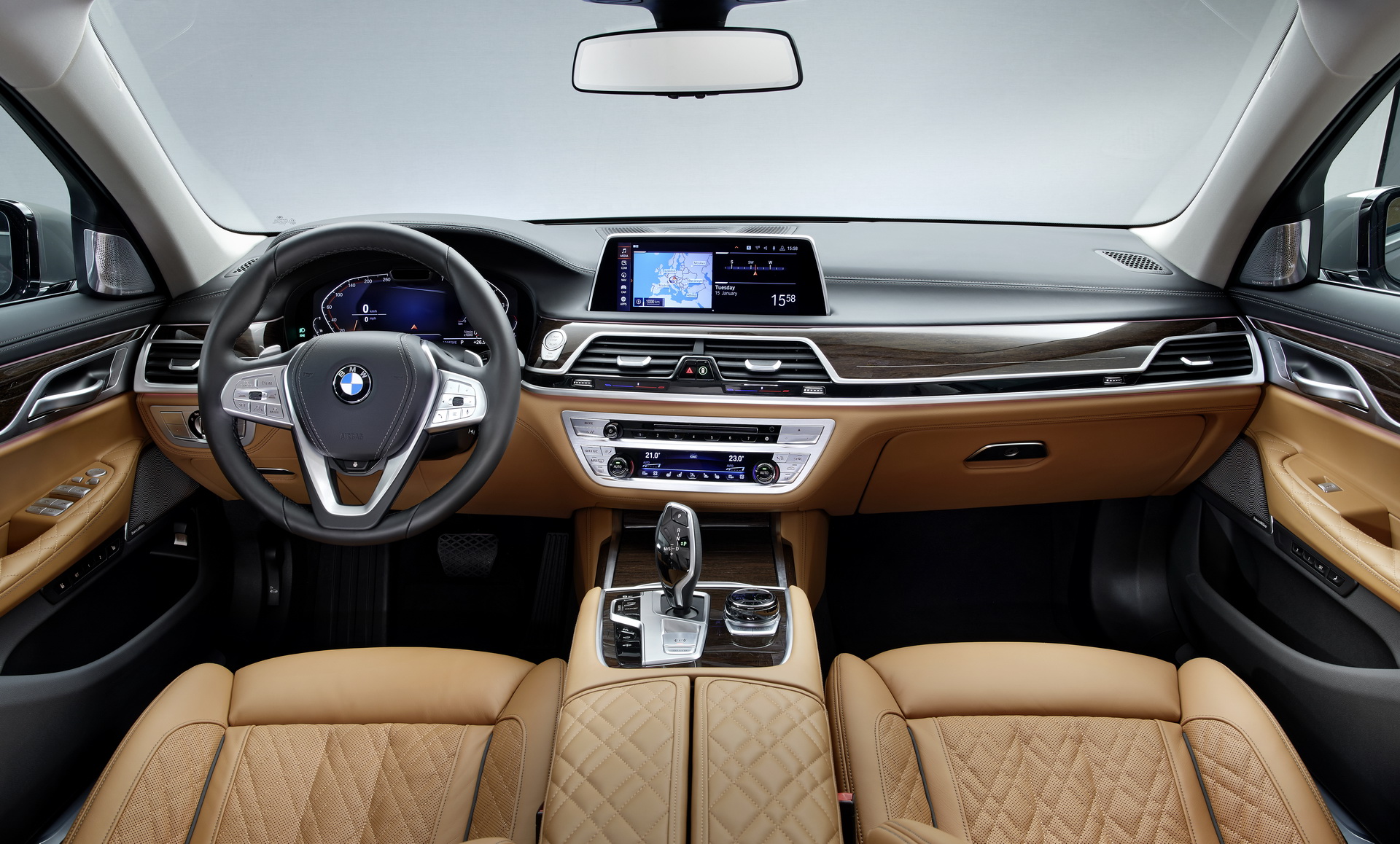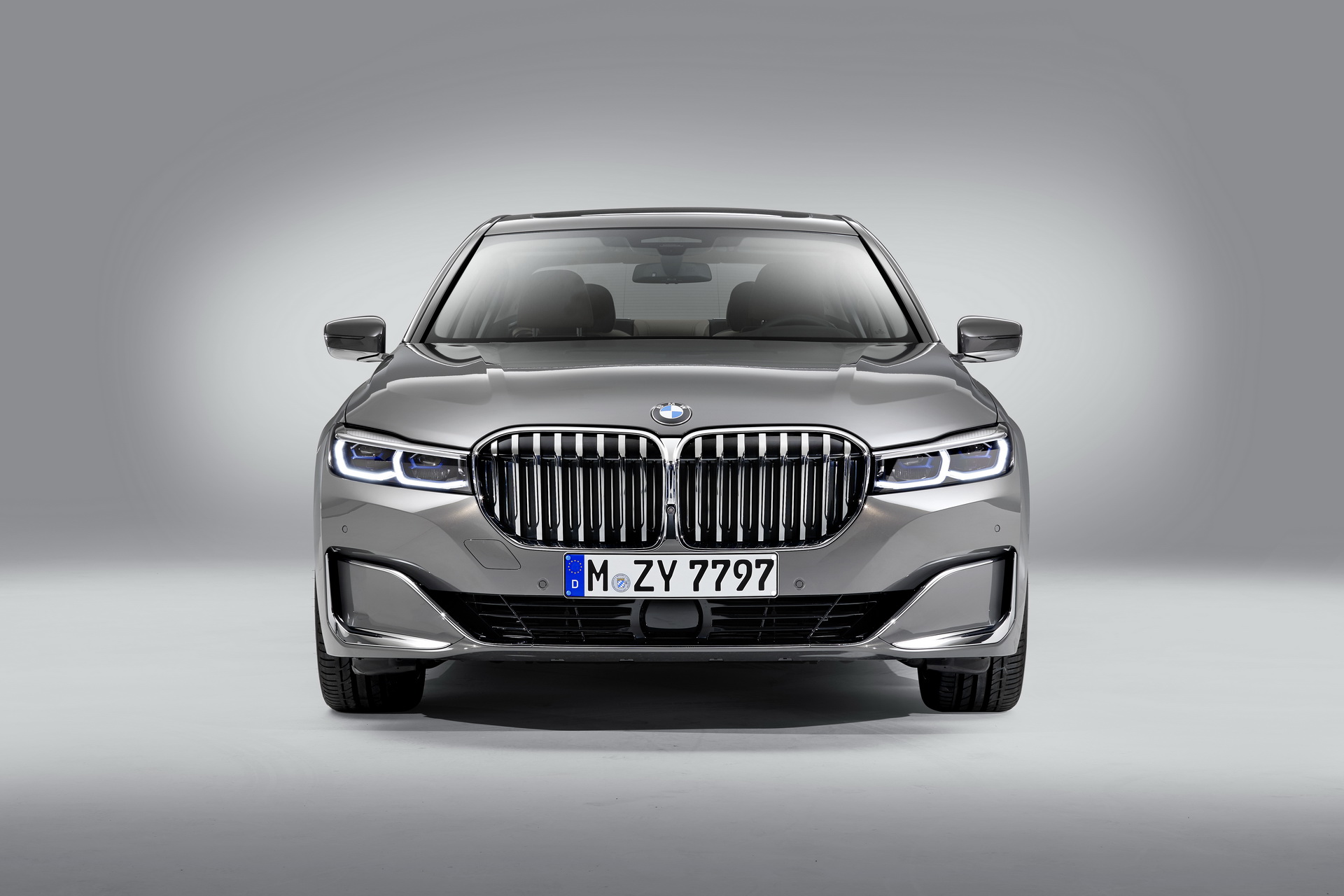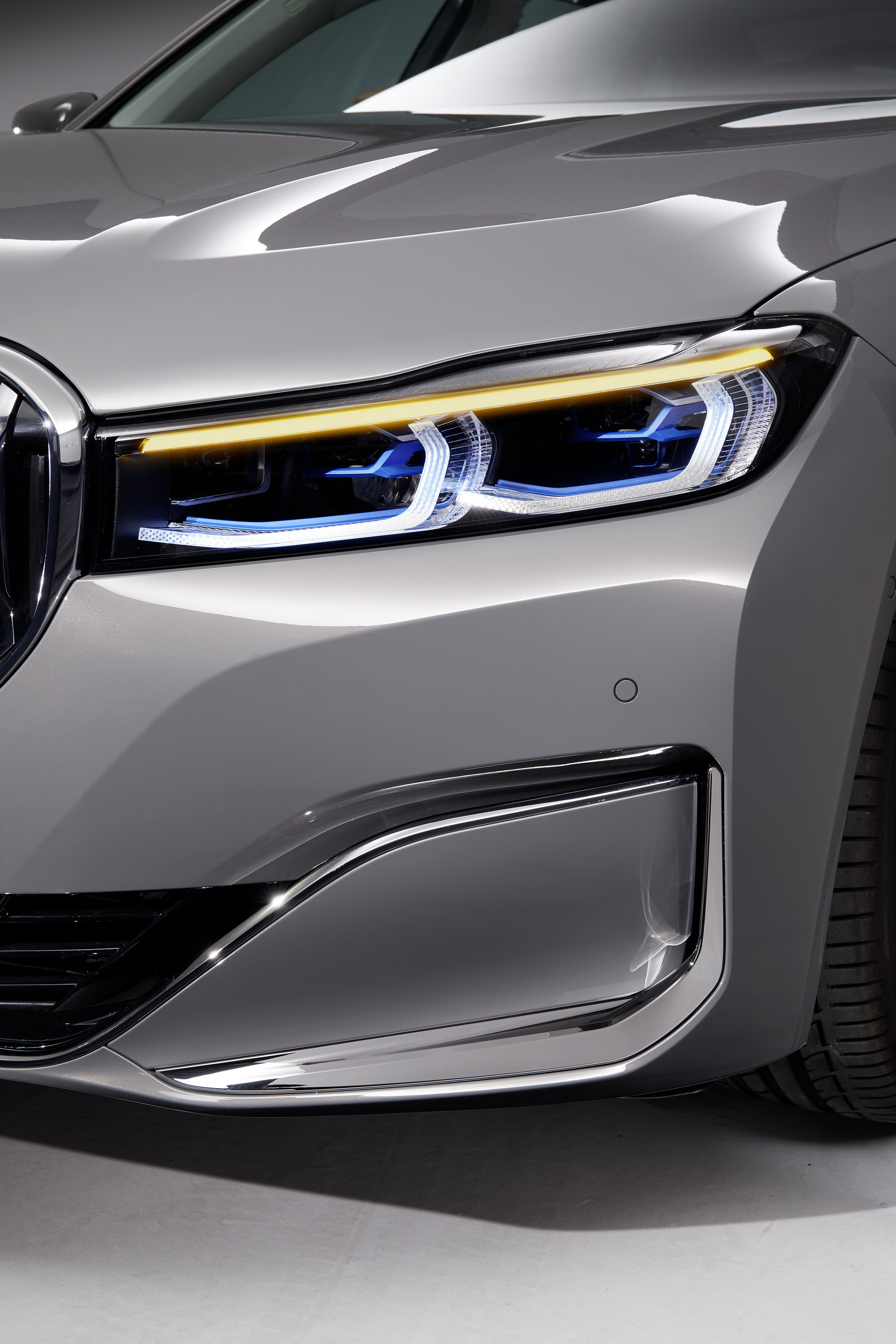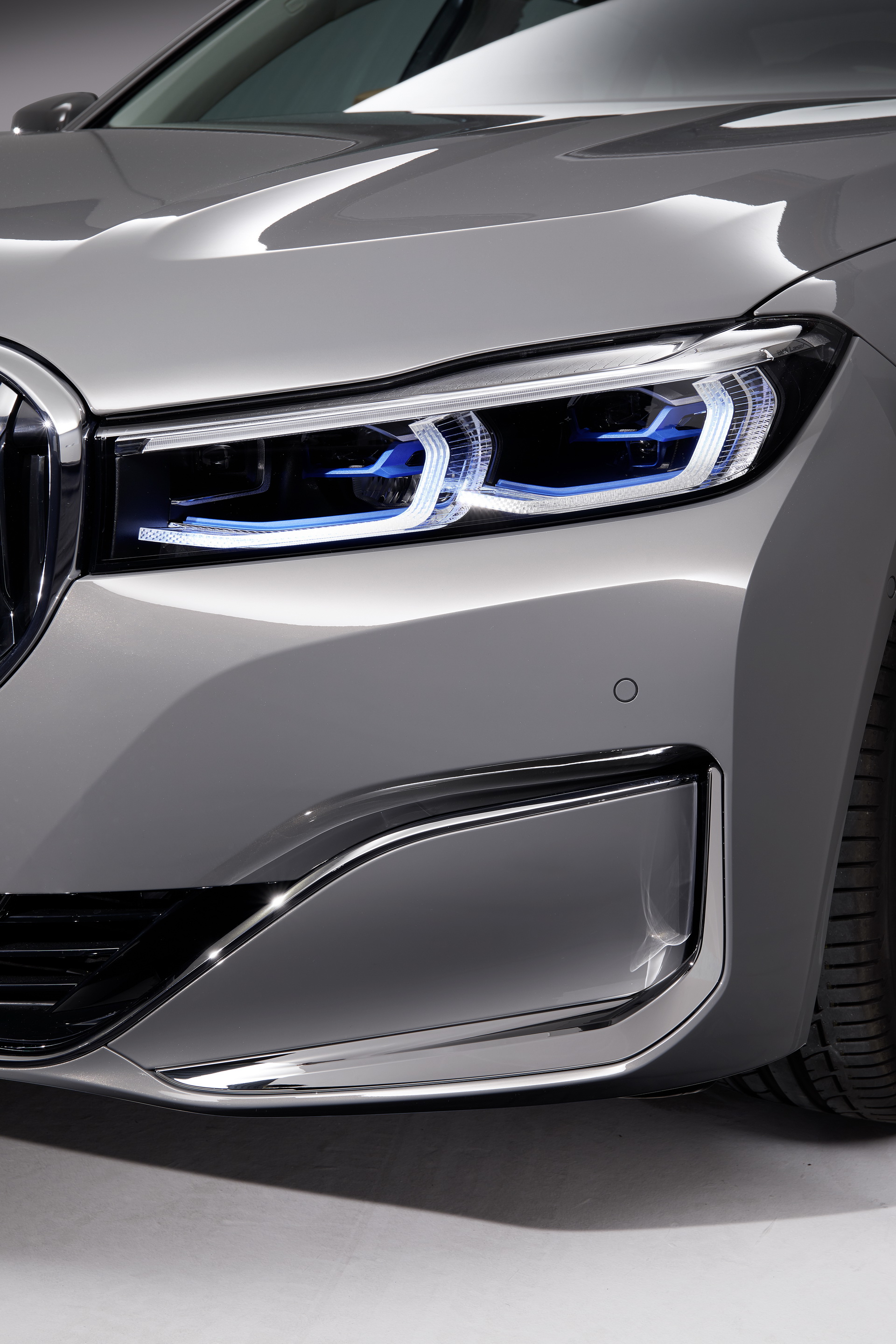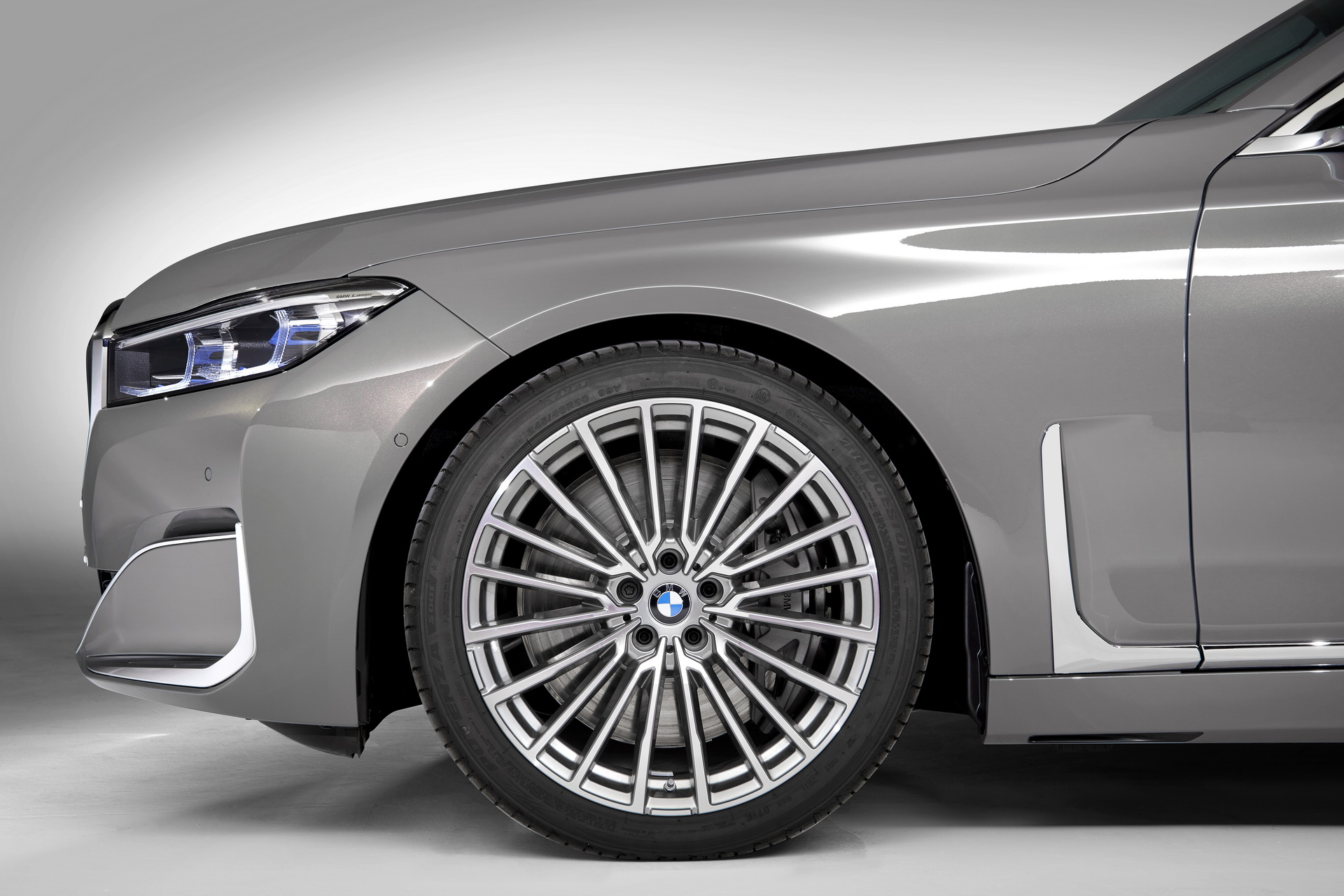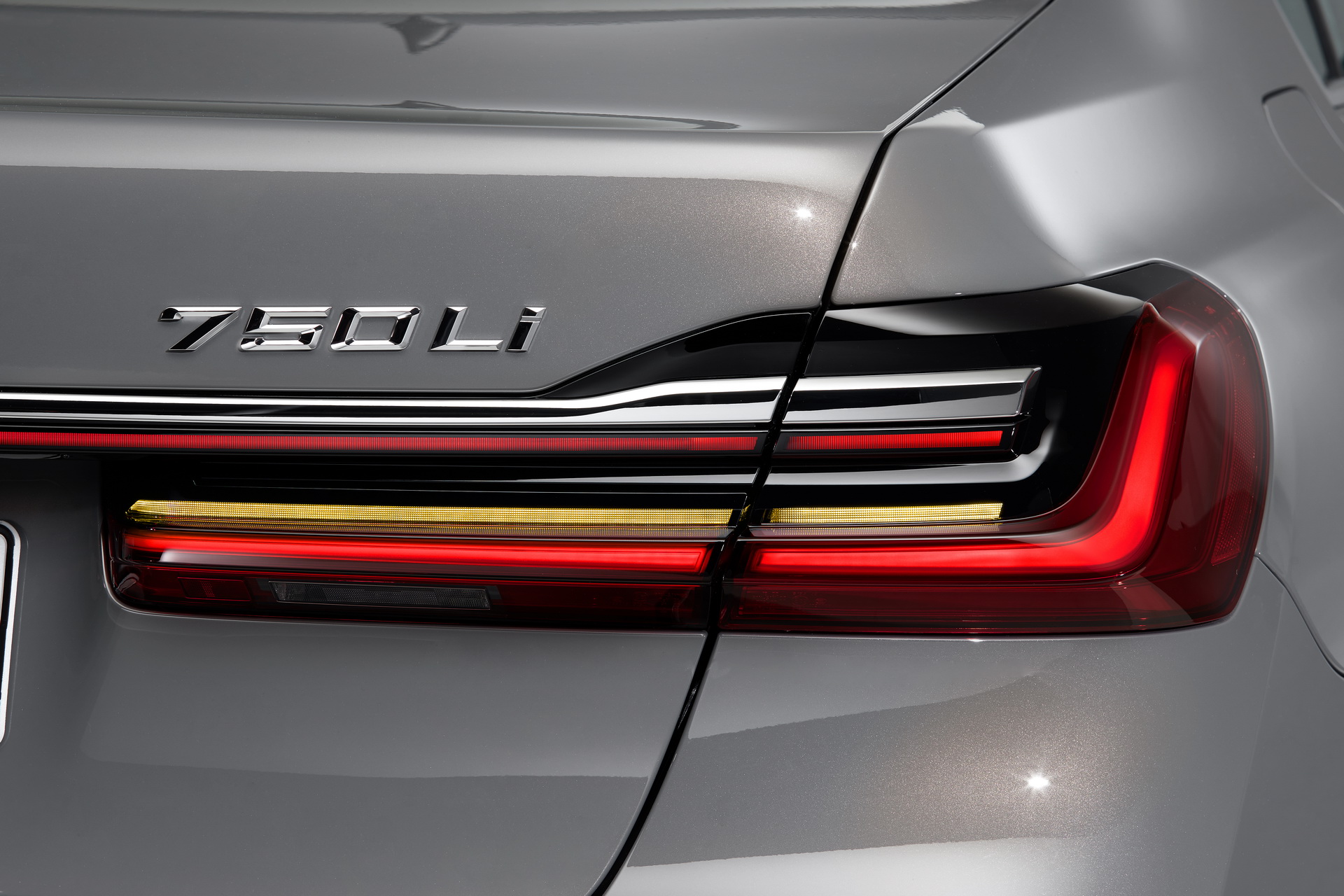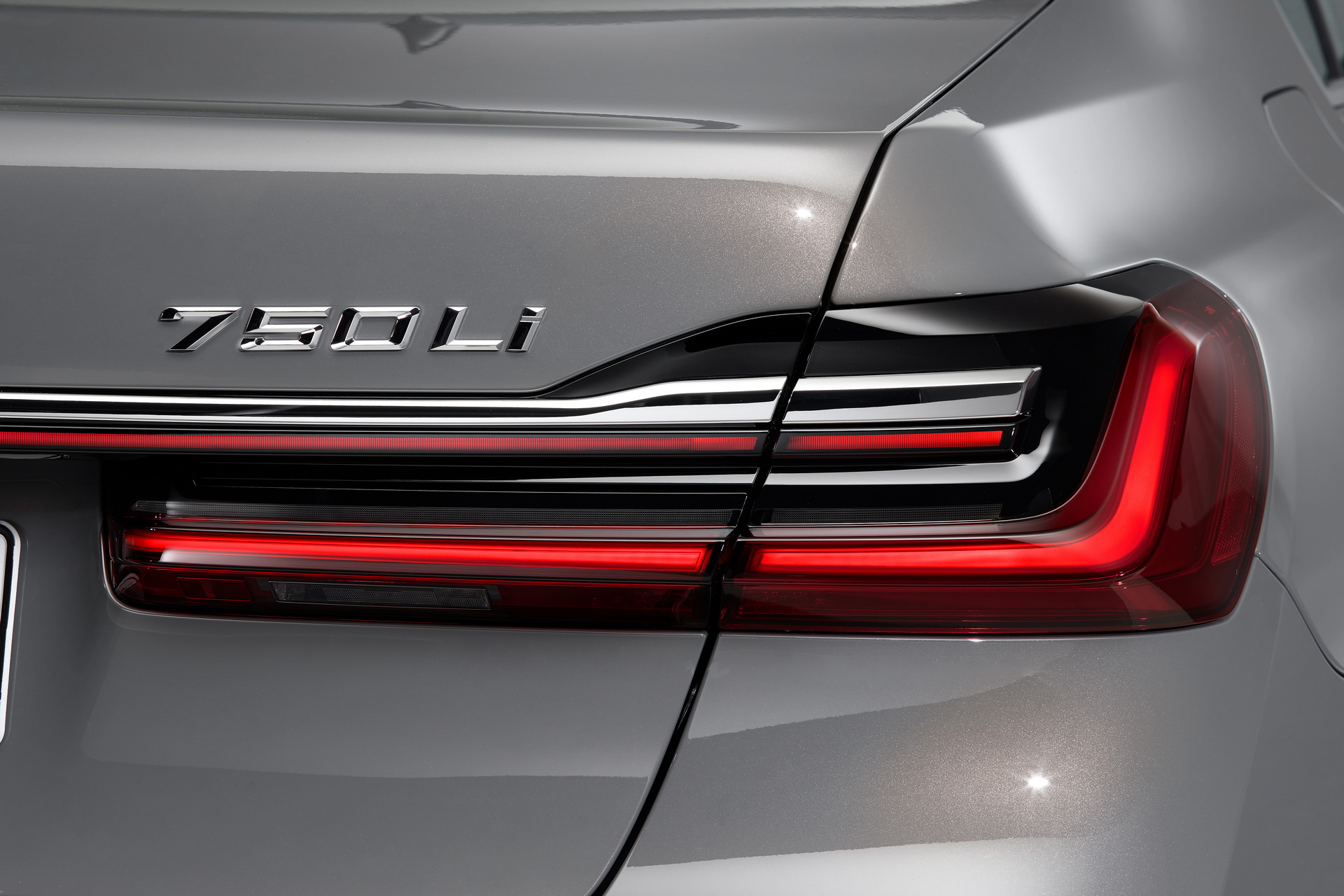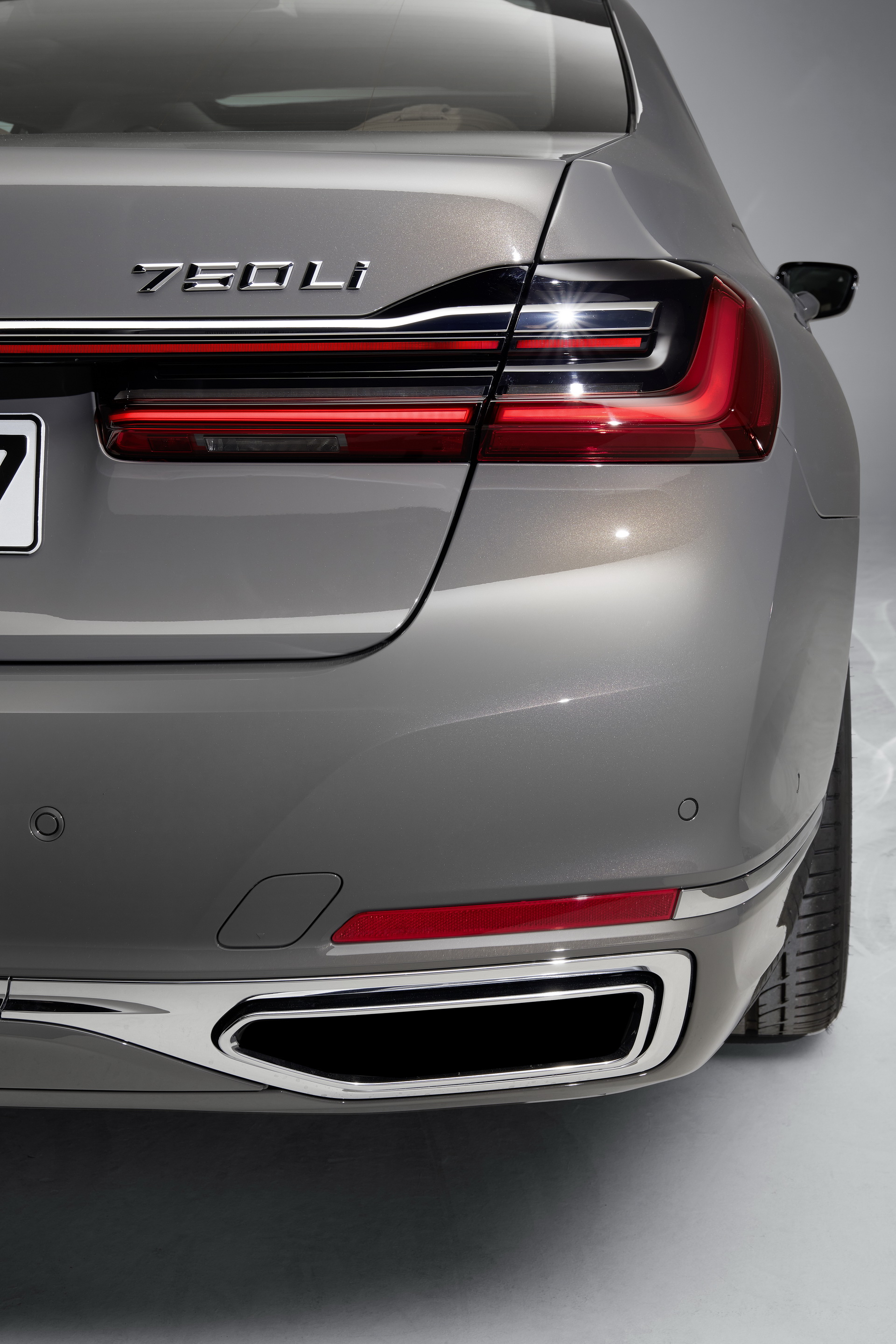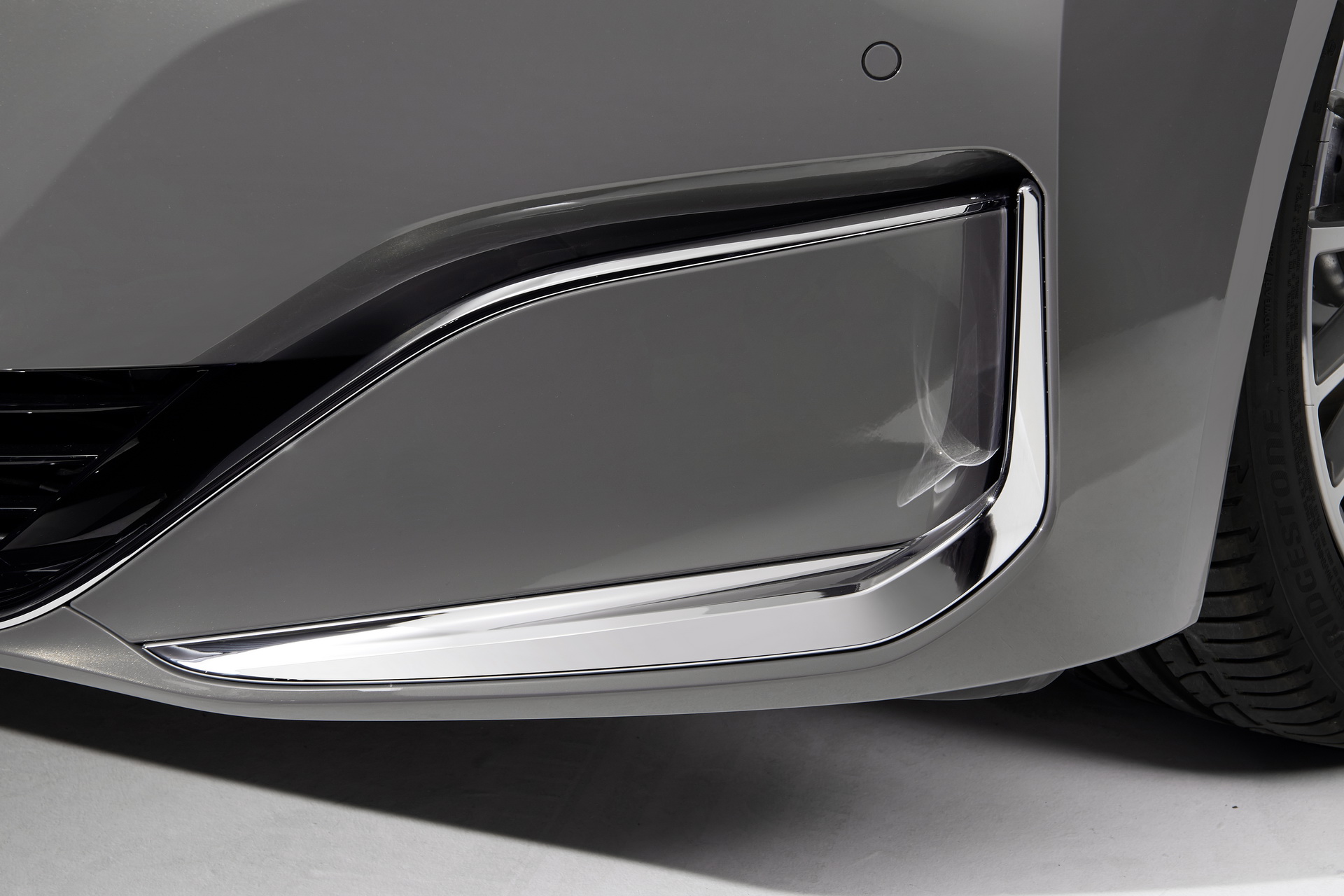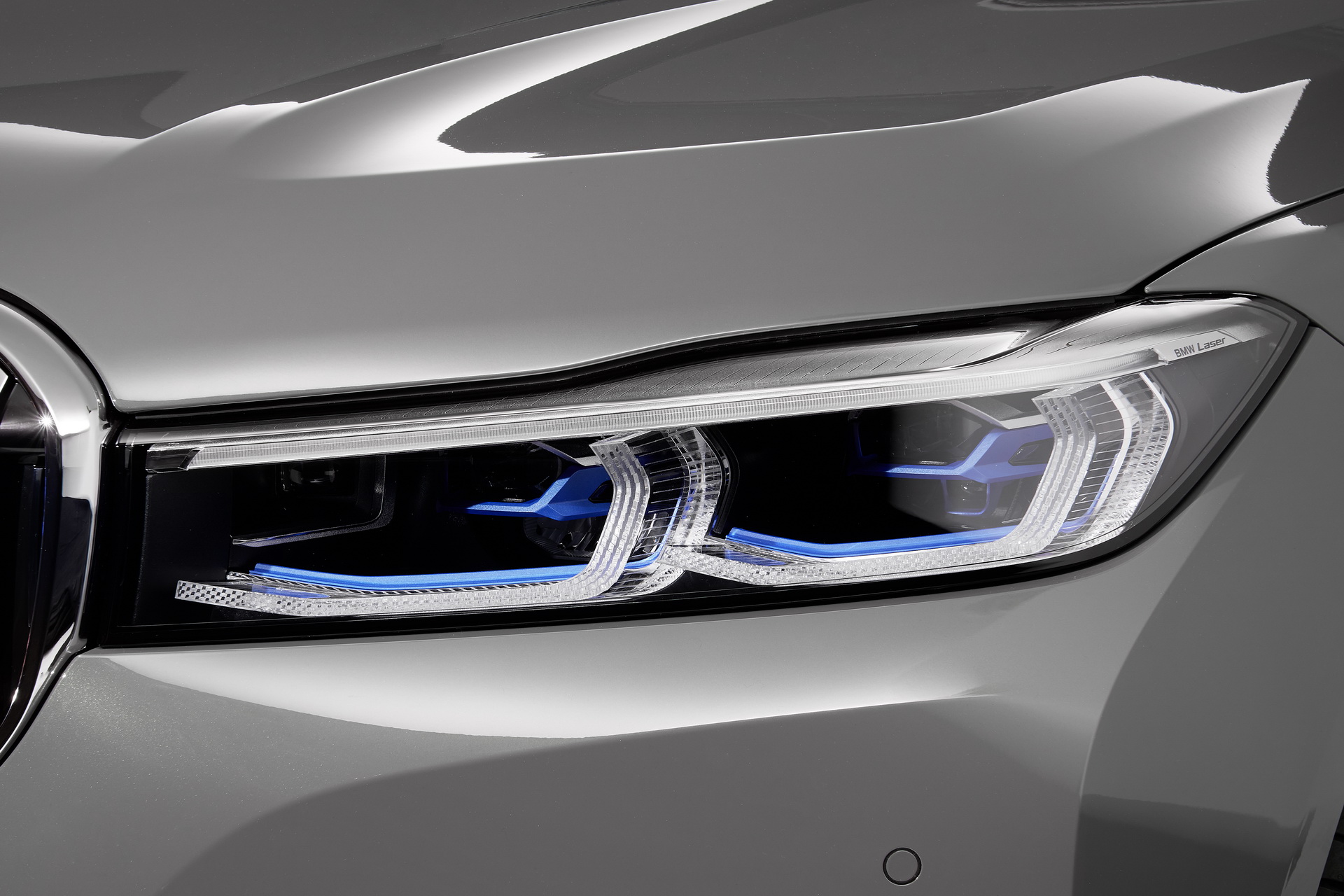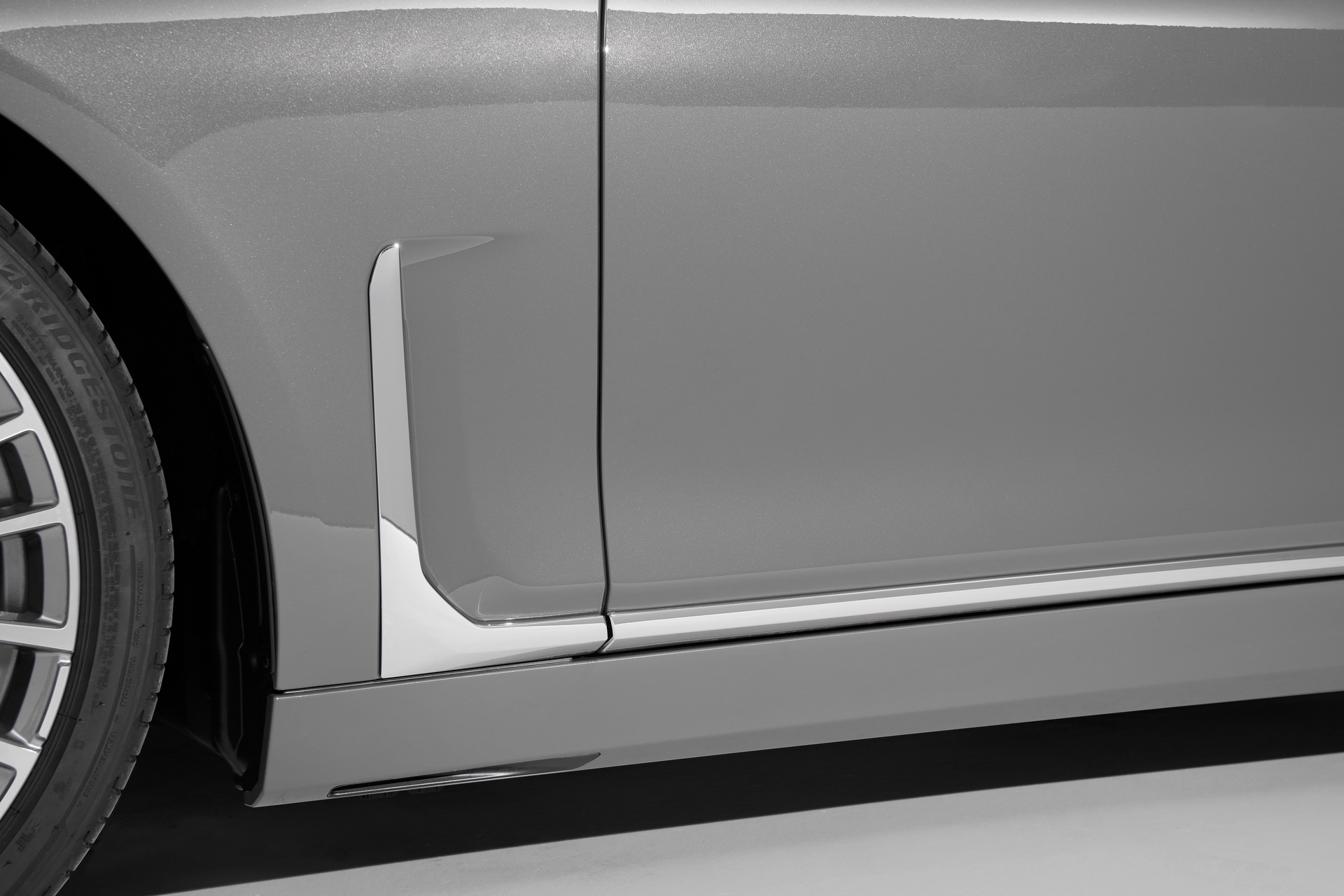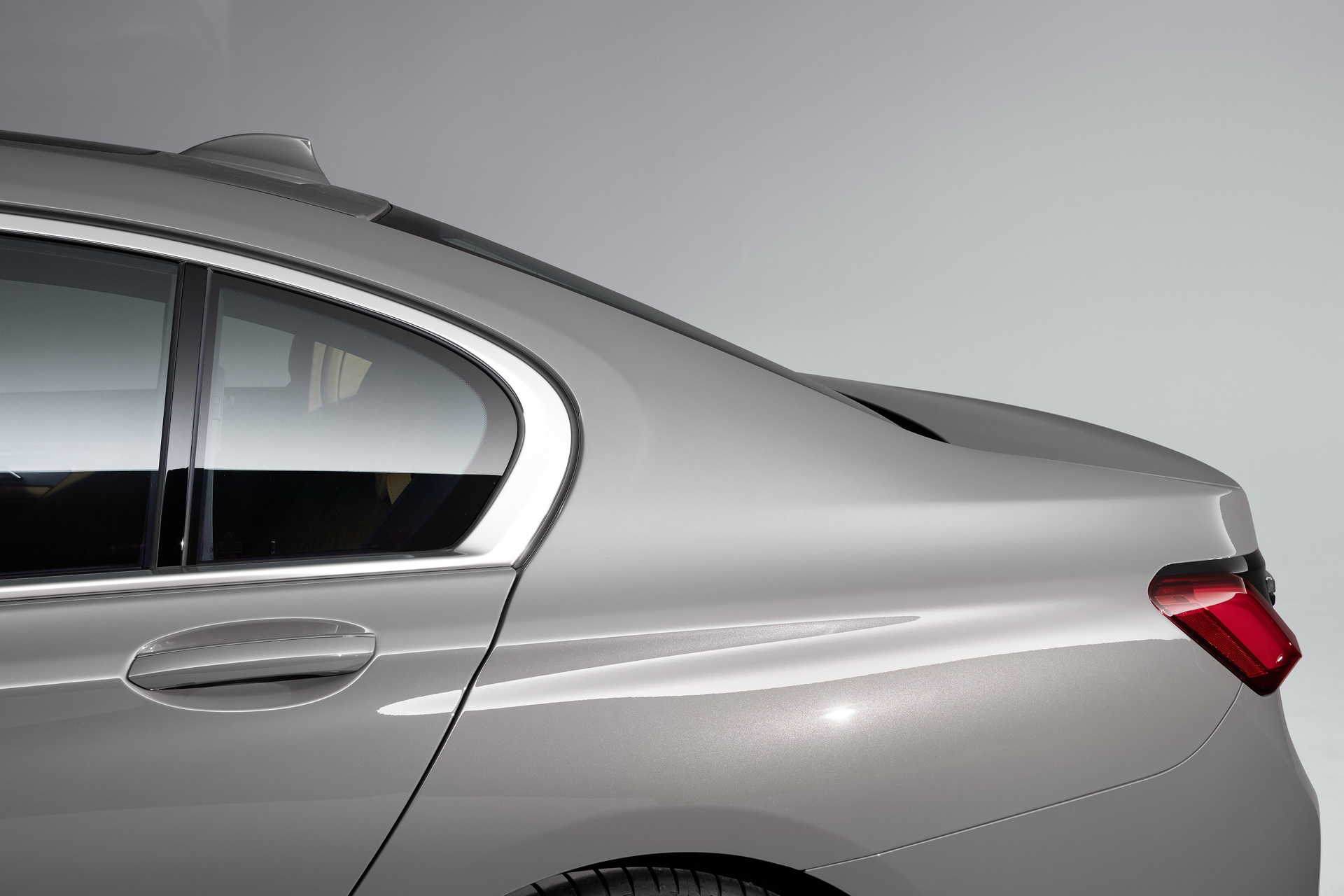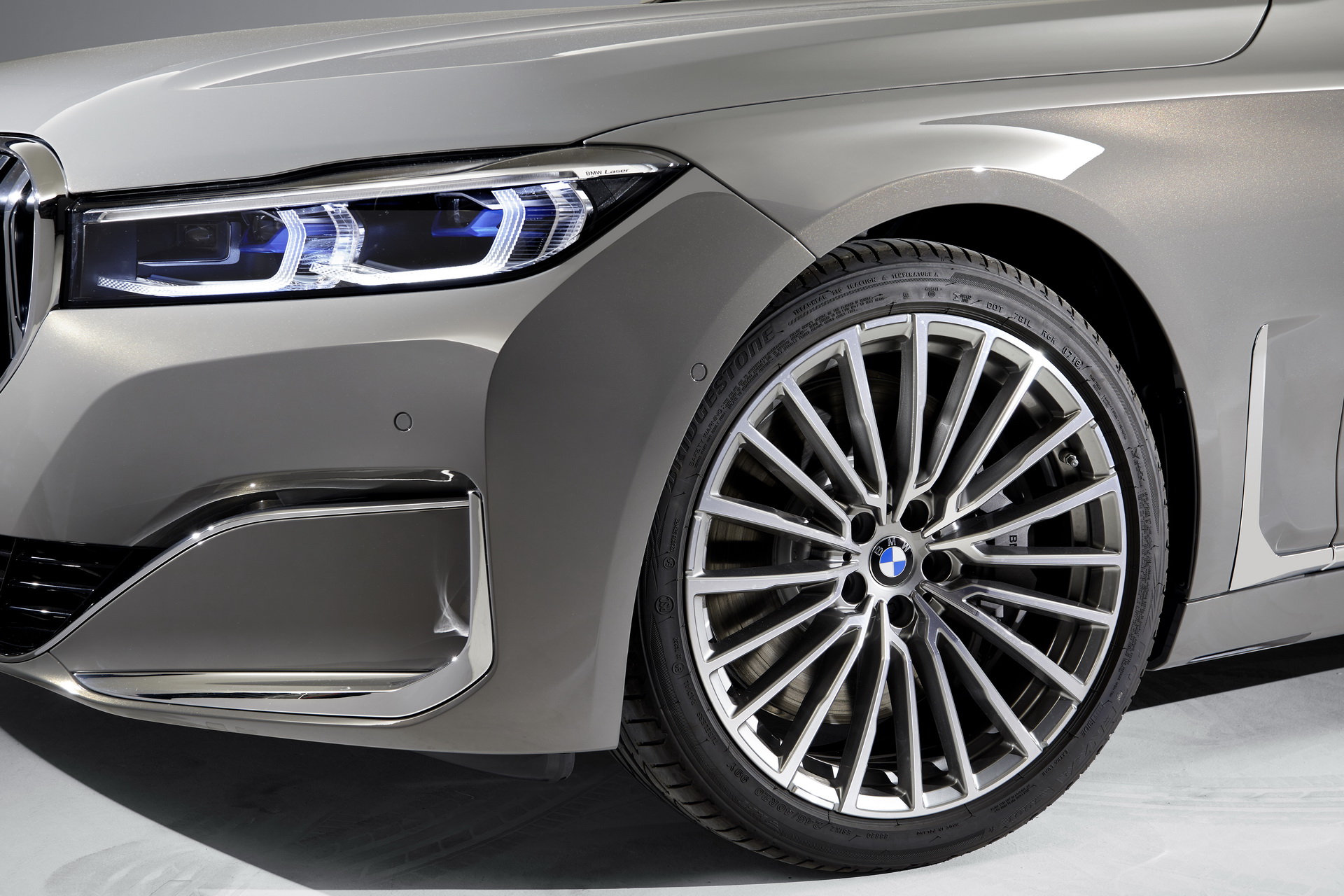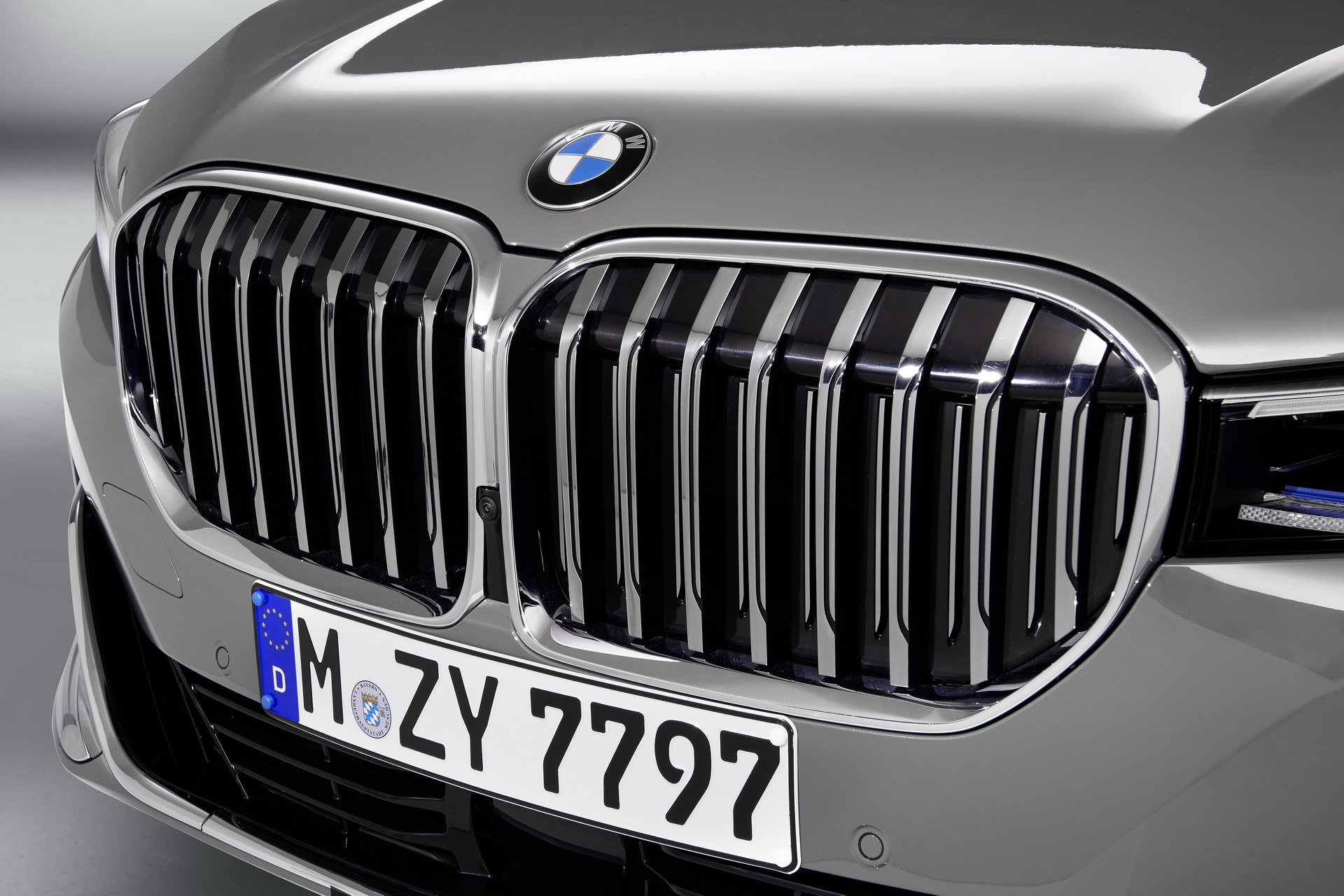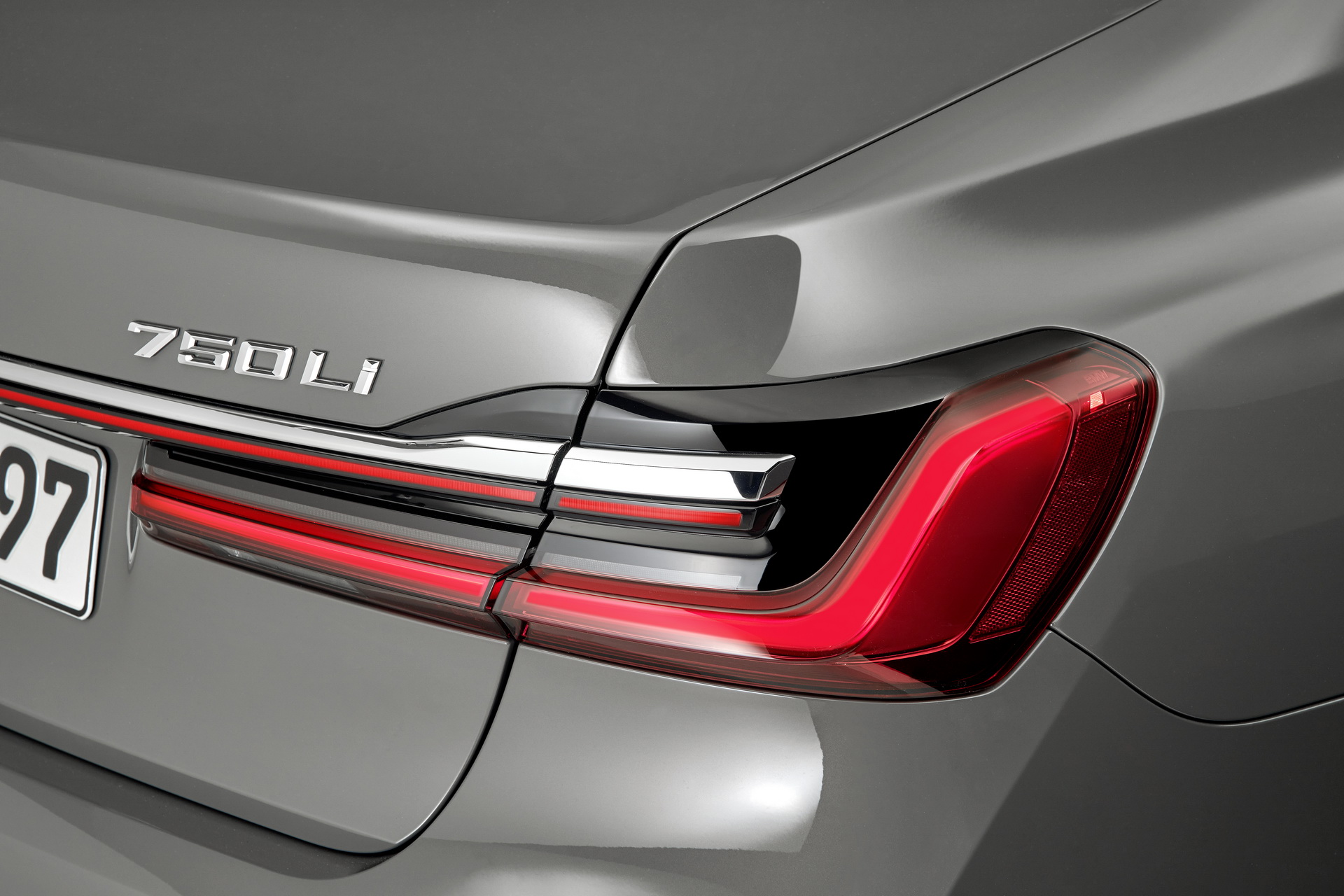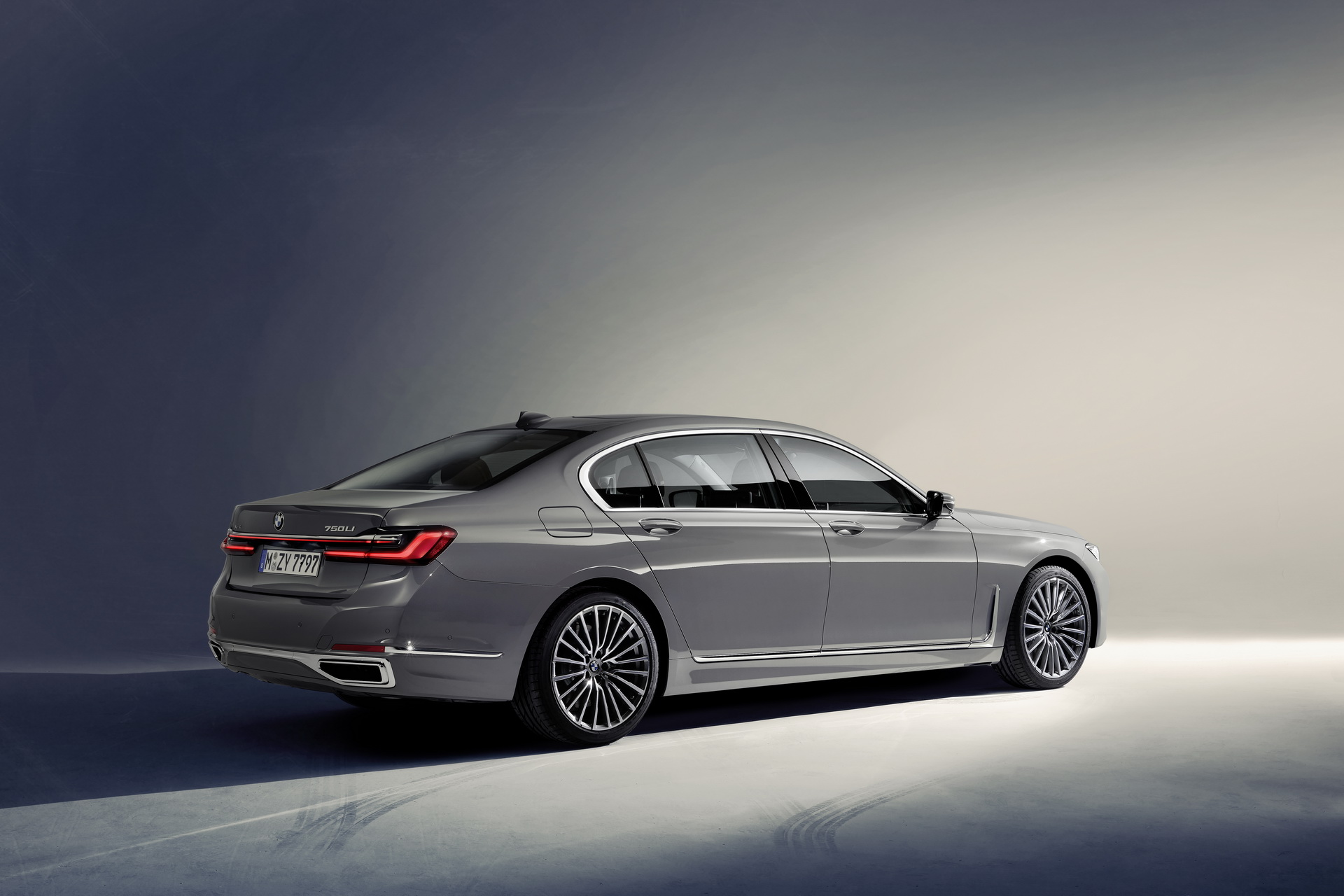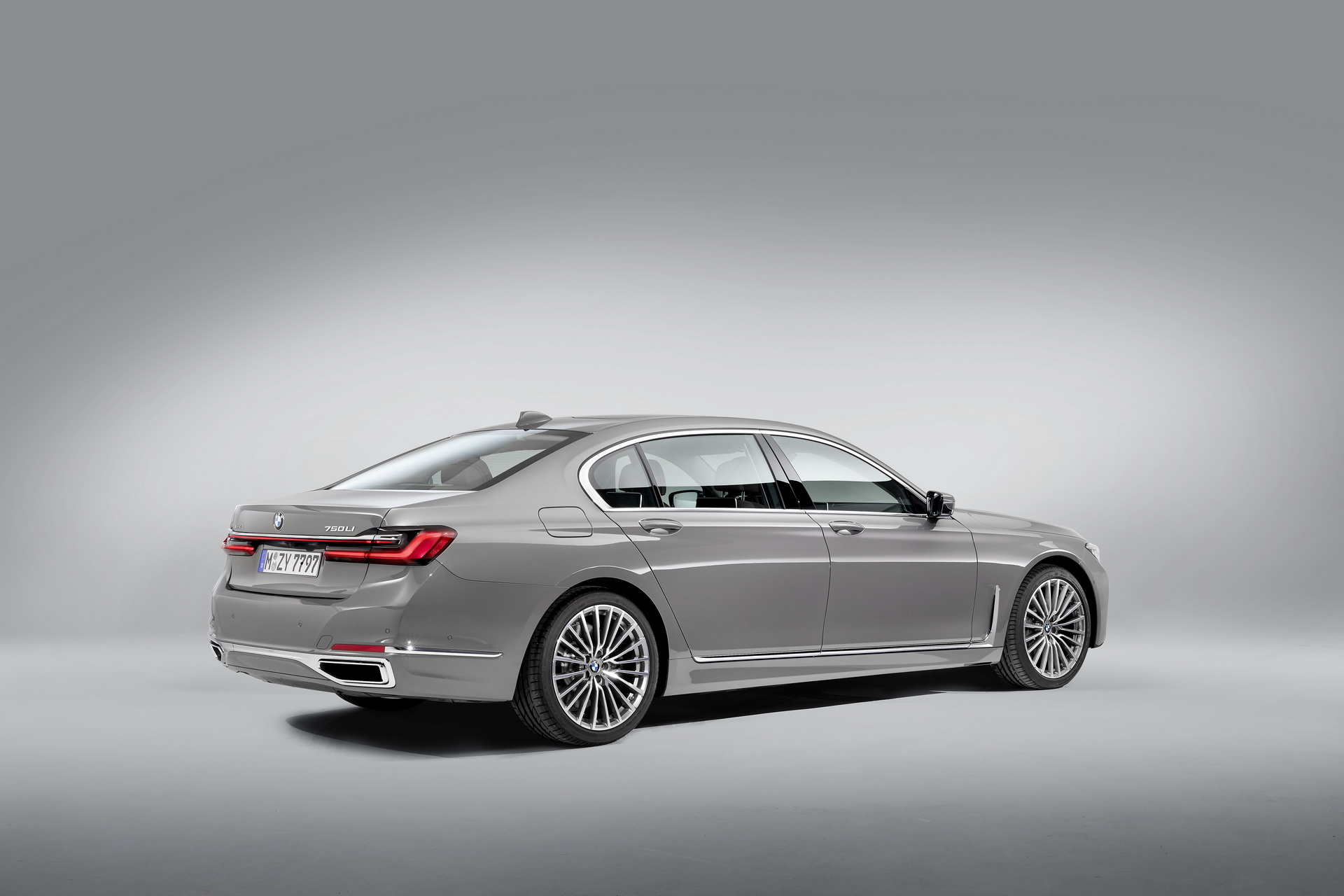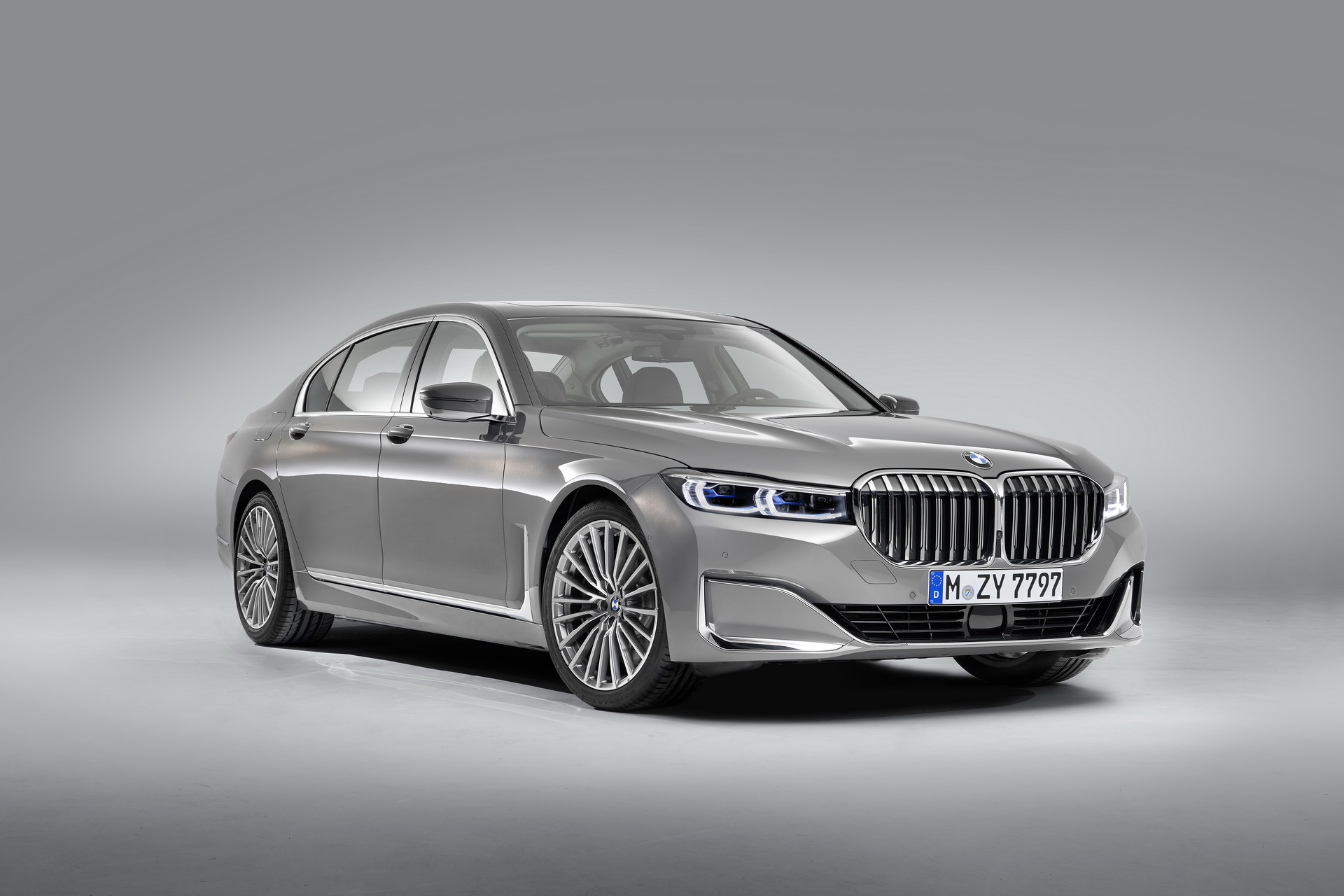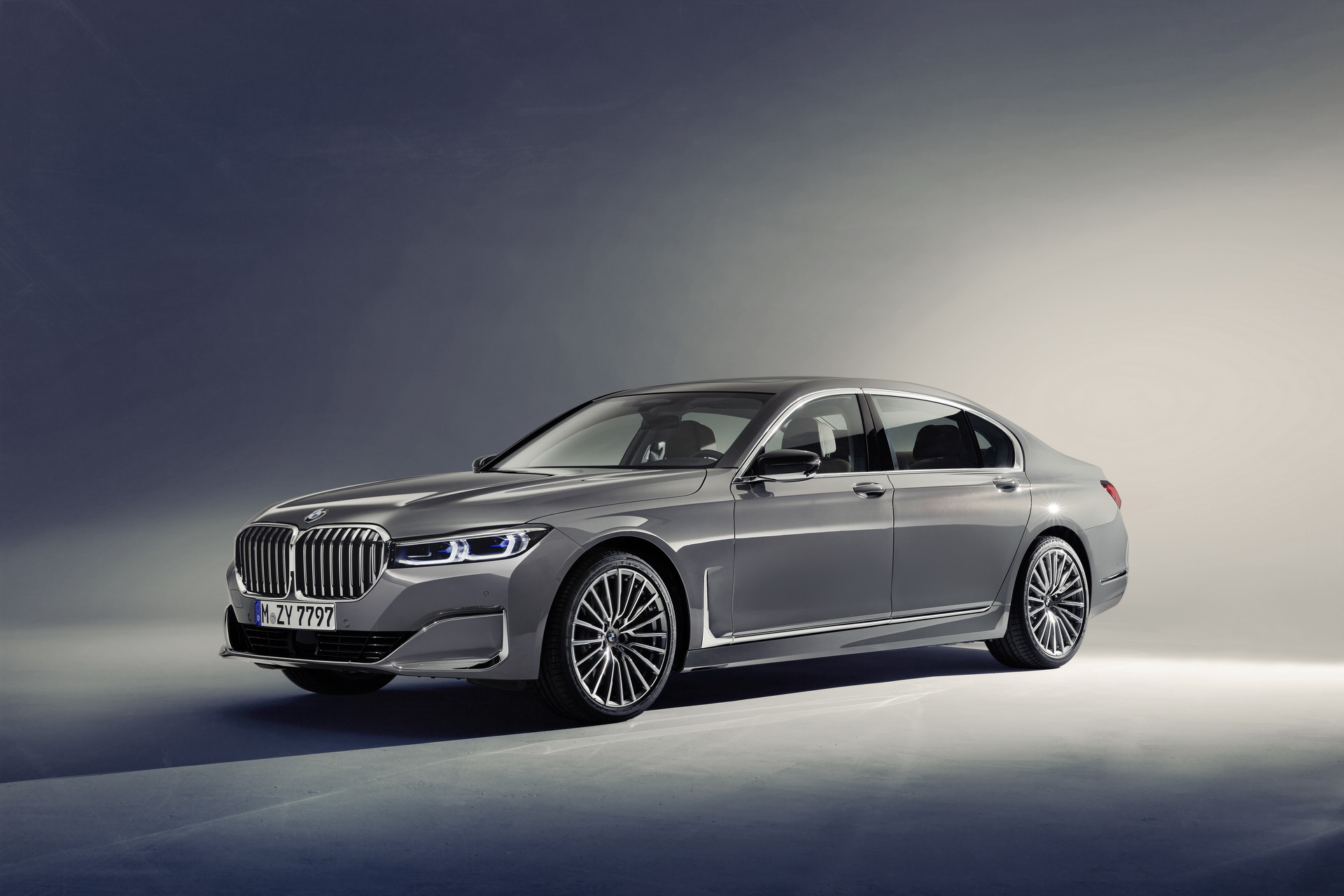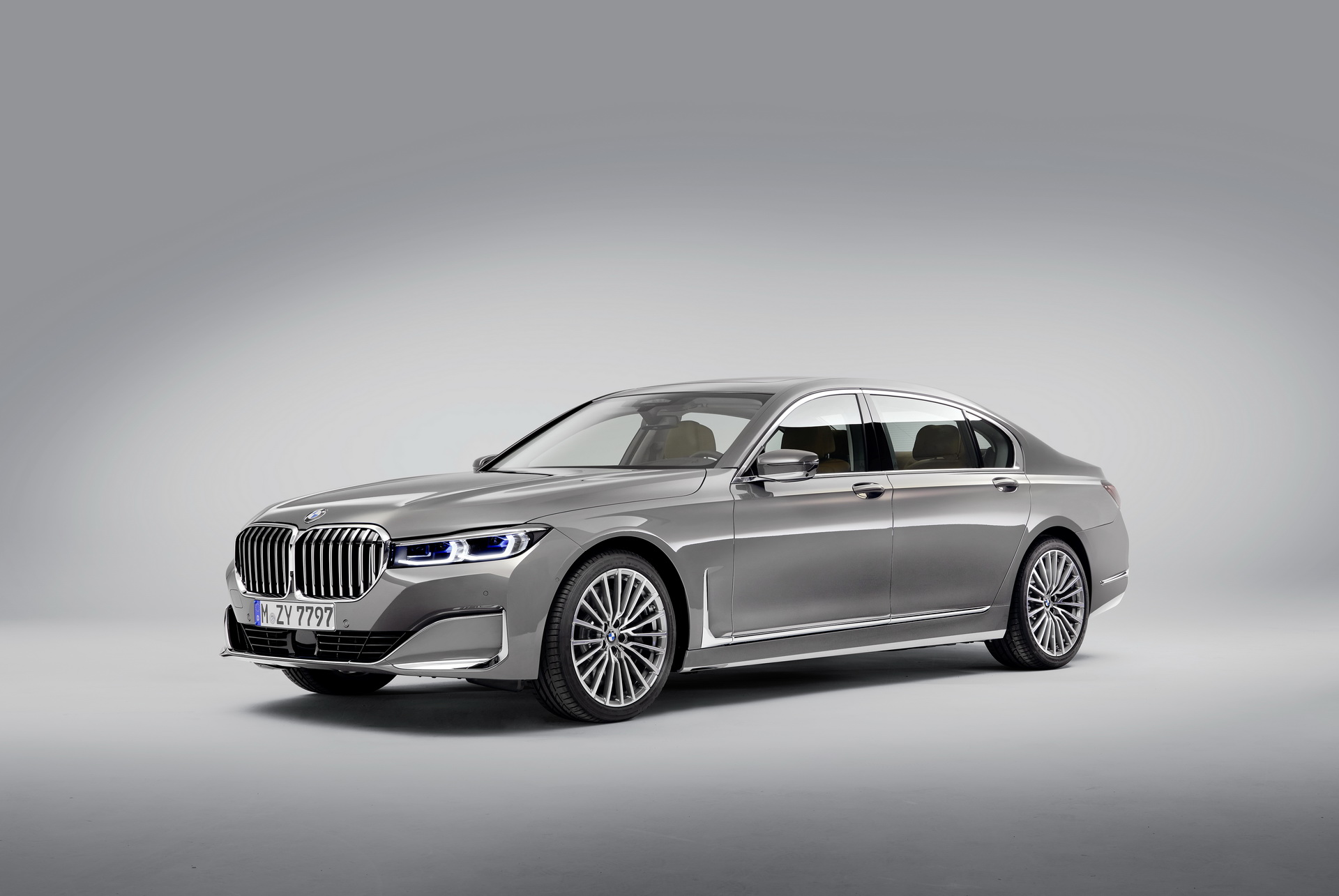Following a number of pretty revealing leaks, BMW has officially unveiled the facelifted 7-Series.
The revamped flagship sedan sports redesigned the front and rear fascias that are supposed to give it a bolder look that’s inspired from the latest Bavarian models.
The elephant in the room
Of course, we can’t talk about the design of the new 7-Series without mentioning that front kidney grille which is the biggest, and most controversial, change.
Compared to the outgoing model, the new 7-Series’ kidney grille is bigger by 40 percent, featuring a single-piece surround trim and accompanying a 50mm taller front end for a more imposing stance.
The new kidney grille is flanked by redesigned headlights which are now slimmer, creating a “stylistically appealing contrast” – according to BMW, that is. The rear end gets thicker chrome surrounds for the tailpipes and 35mm slimmer LED taillights that feature red and black surfaces. The taillights are connected via a very slim LED light strip that runs across the full width of the car.
As before, BMW will offer the 7-Series with two wheelbases, with the LWB adding an extra 14cm between the axles for even more room in the rear. However, both the standard 7-Series and its LWB sibling are now 22mm longer than their predecessors (5,120mm and 5,260mm respectively), while width and height remain unchanged.
The luxurious cabin has become even quieter, thanks to revisions and refinements around the rear wheel arches, B-pillars and seatbelt outlet covers in the rear, while the side and rear windows now feature thicker glass.
What’s changed inside
Also new is the steering wheel that features a modified arrangement of the multifunction controls. The infotainment system is BMW’s latest Operating System 7.0, which combines a 12.3-inch instrument cluster with a 10.25-inch touchscreen control display and the Intelligent Personal Assistant. Rear passengers can get a pair of 10-inch full-HD touchscreen displays with a Blu-ray player.
Updates under the hood
In the engine range, BMW ha, as expected, added the newly developed 4.4-liter V8 that debuted in the 8-Series and puts out 523hp (530PS) and 553lb-ft (750Nm) of torque in the 750i xDrive and 750Li xDrive models. The highlight, however, is the updated plug-in hybrid 745e, which uses a new inline six powertrain with a combined output of 388hp (394PS) and 442lb-ft (600Nm) of torque and an all-electric range between 33 and 36 miles (54 and 58km).
The range-topping M760Li xDrive still uses a 6.6-liter V12, which has been updated with a gasoline particulate filter. Its 577hp (585PS) and 626lb-ft (850Nm) are enough the send the heavyweight 7-Series from 0 to 62mph (100km/h) in 3.8 seconds and to a de-restricted 189mph (305km/h) top speed.
European customers will also get to choose between three versions of a 3.0-liter straight-six diesel. Base 730d models feature a single turbocharger, producing 260hp (265PS) and 457lb-ft (620Nm) of torque. The 740d comes with twin turbos, 316hp (320PS) and 501lb-ft (680Nm) of torque. The most impressive diesel variant remains the 750d, with its four turbochargers, 394hp (400PS) and 560lb-ft (760Nm) of torque.
All variants of the new BMW 7-Series come with adaptive suspension as standard, with customers getting the option of rear-wheel steering for better handling and agility.




